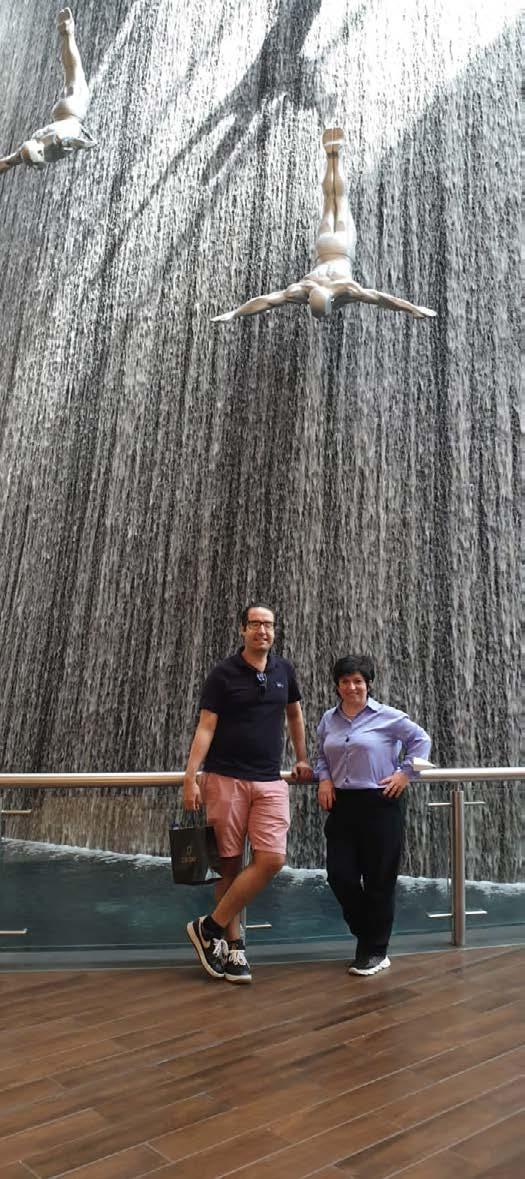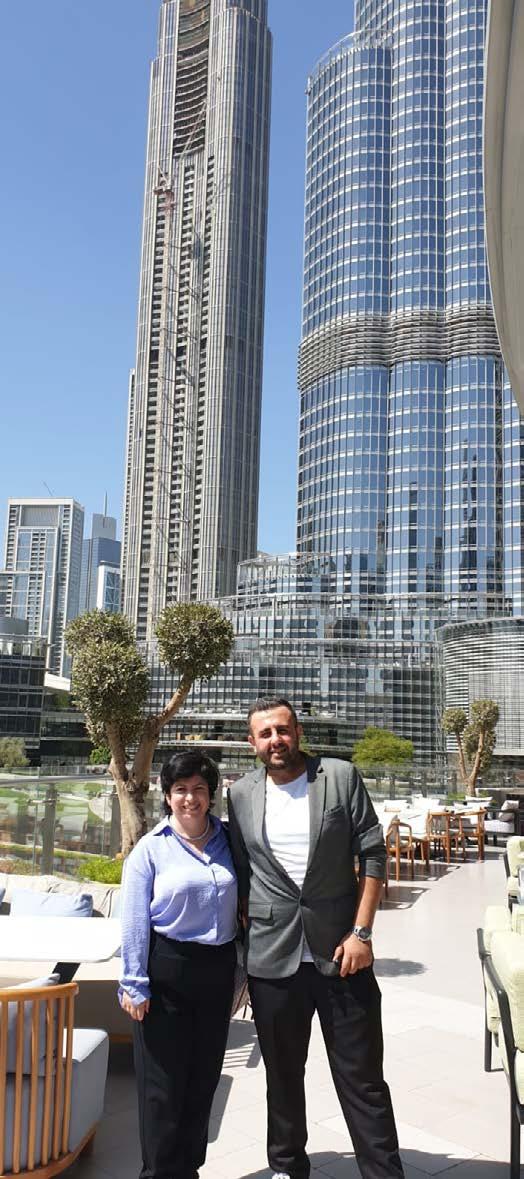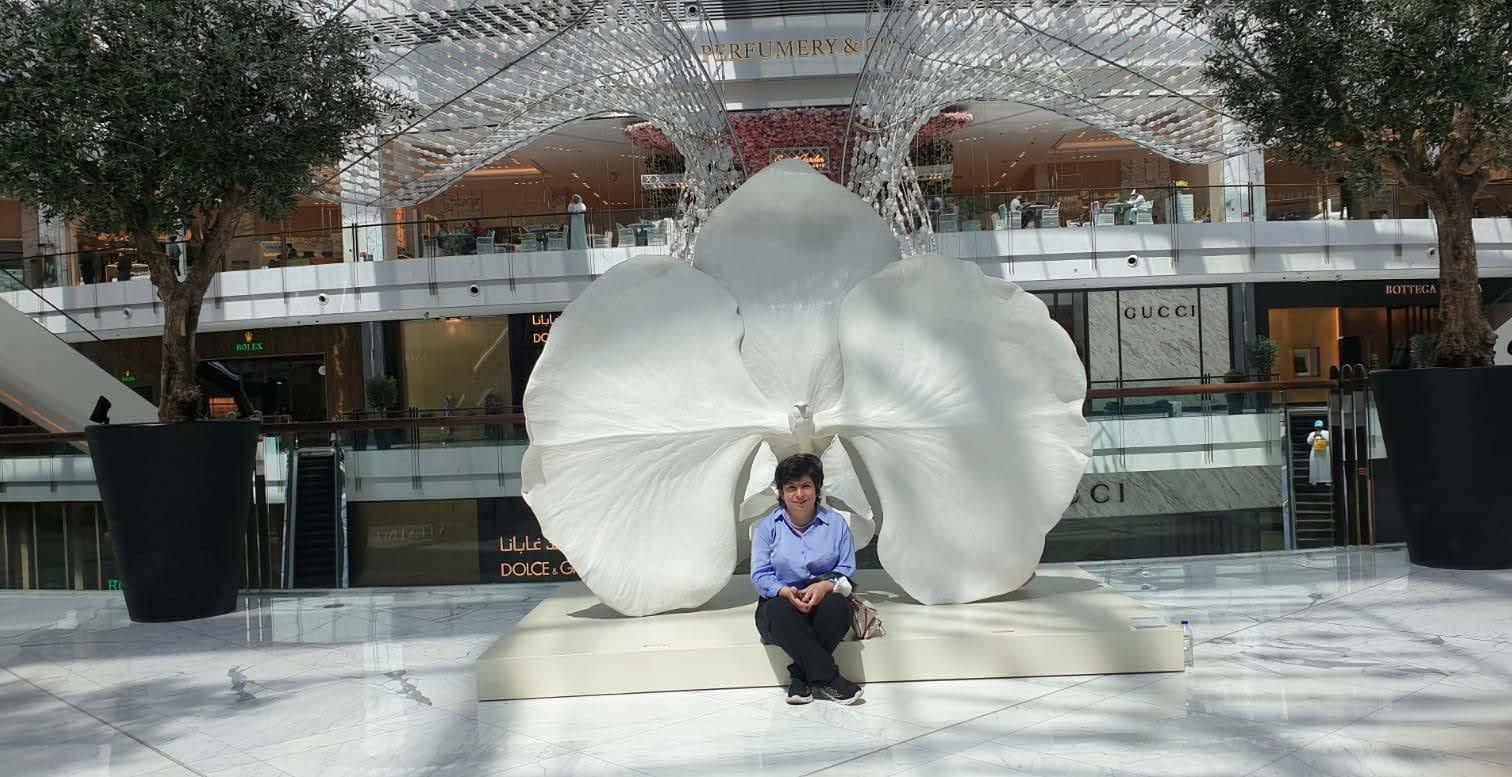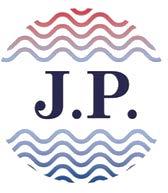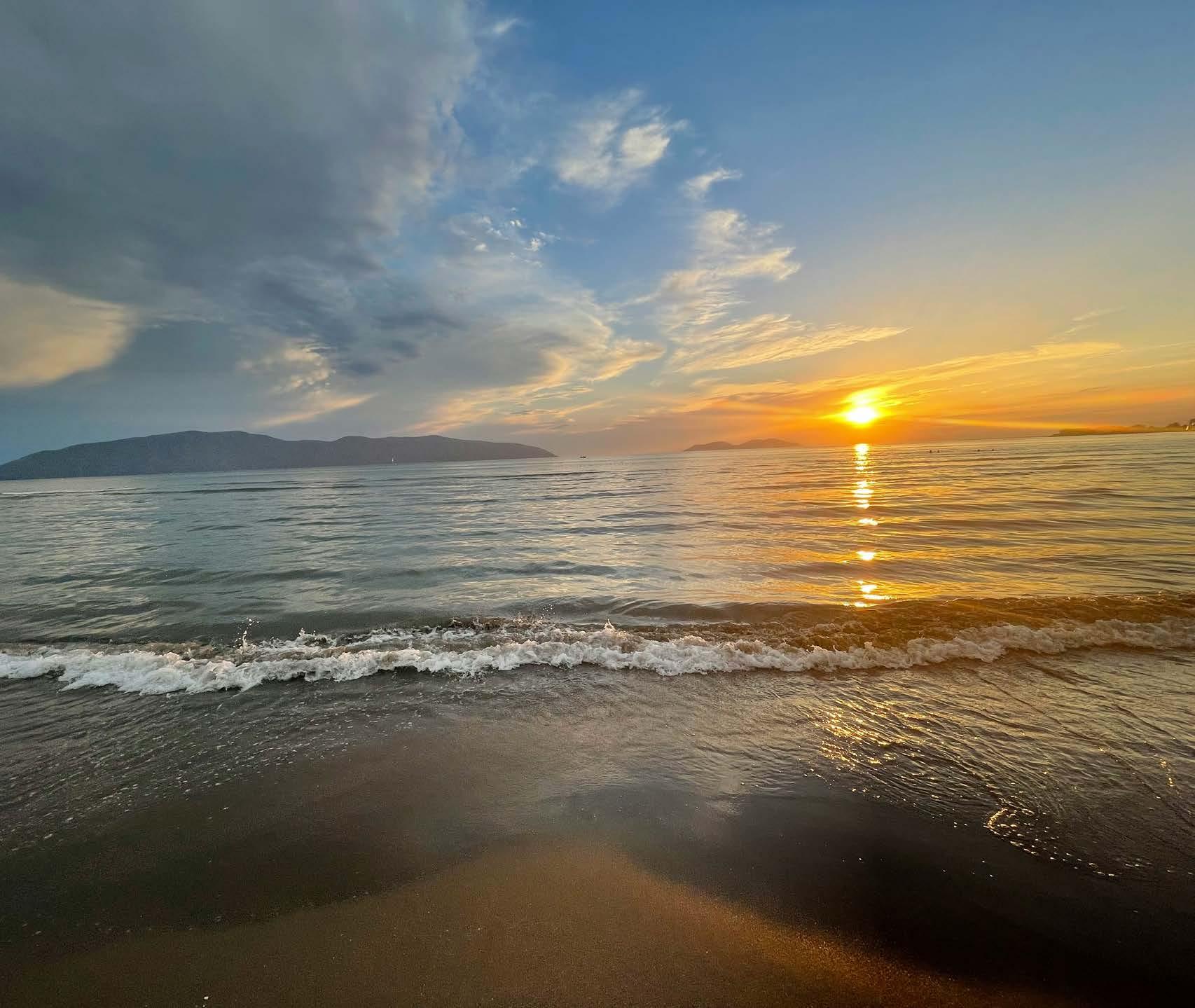
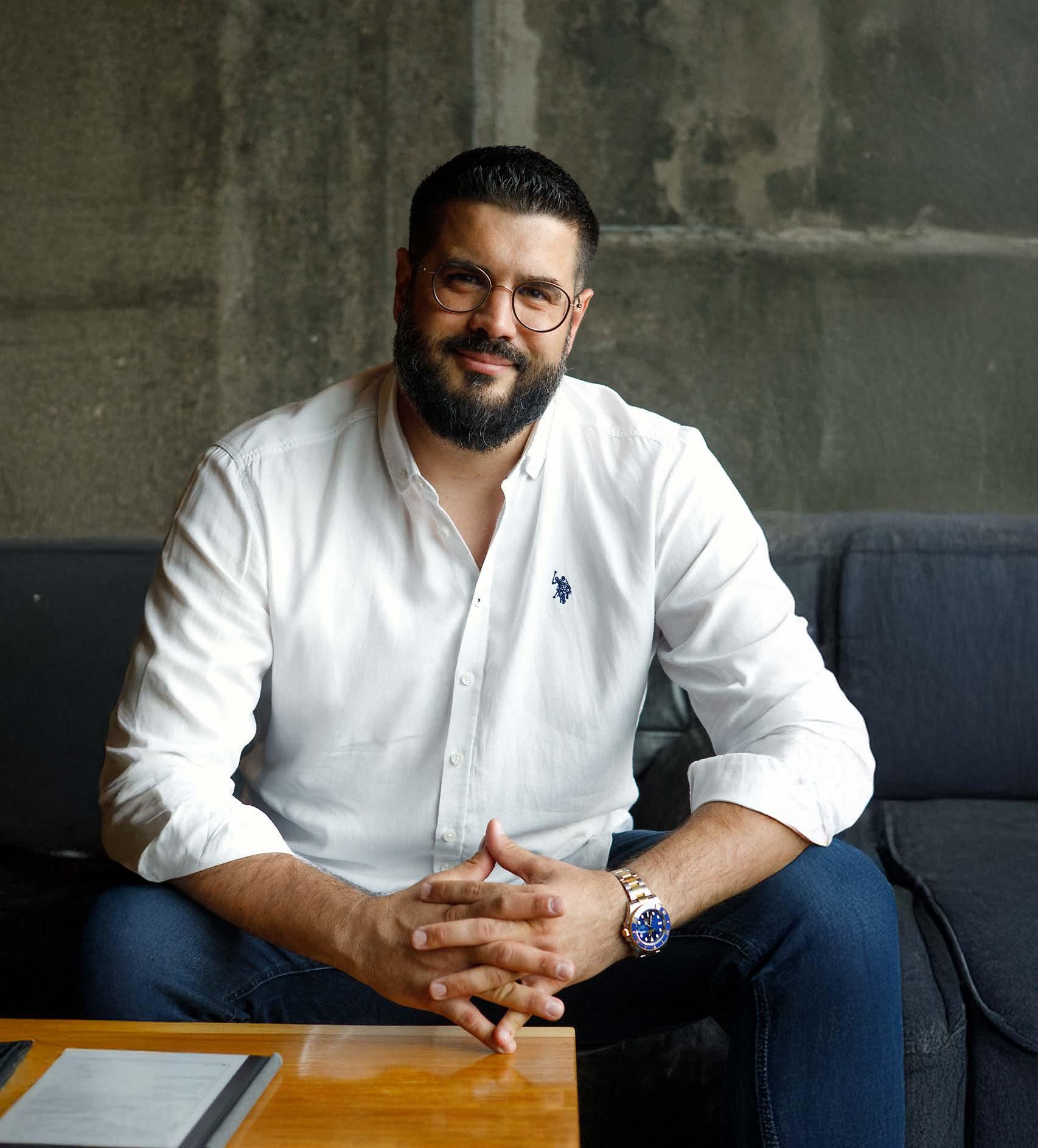

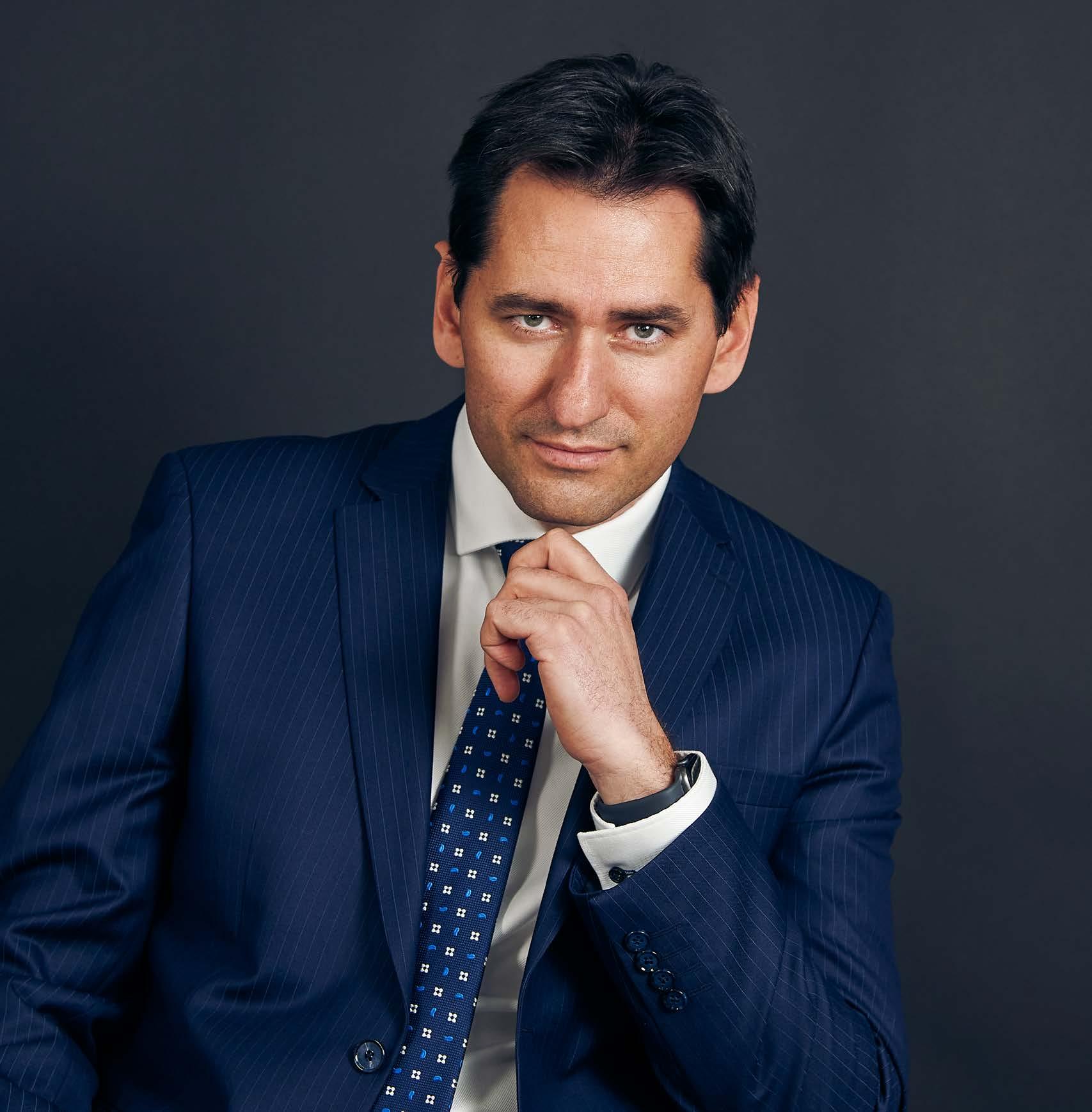

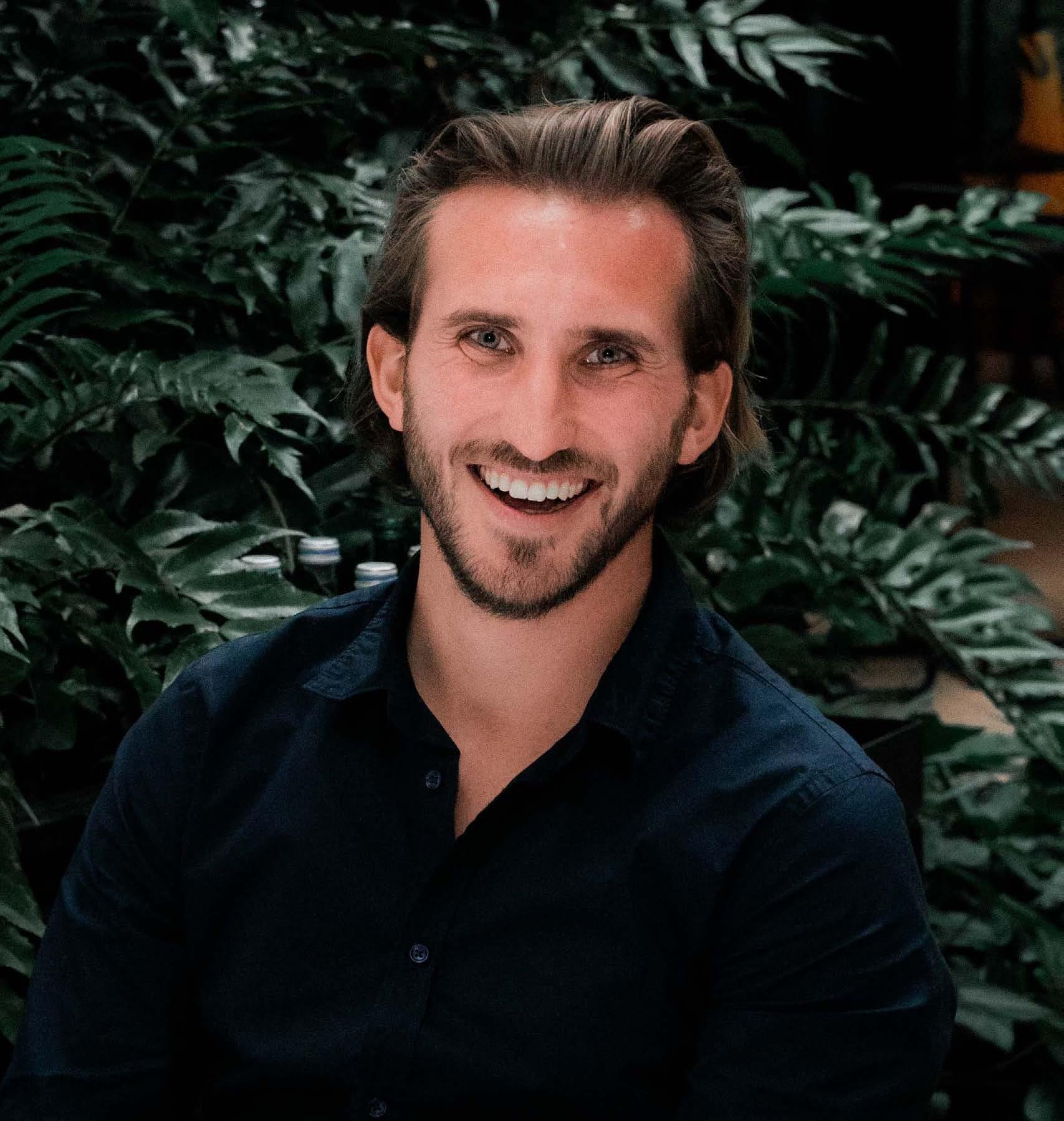
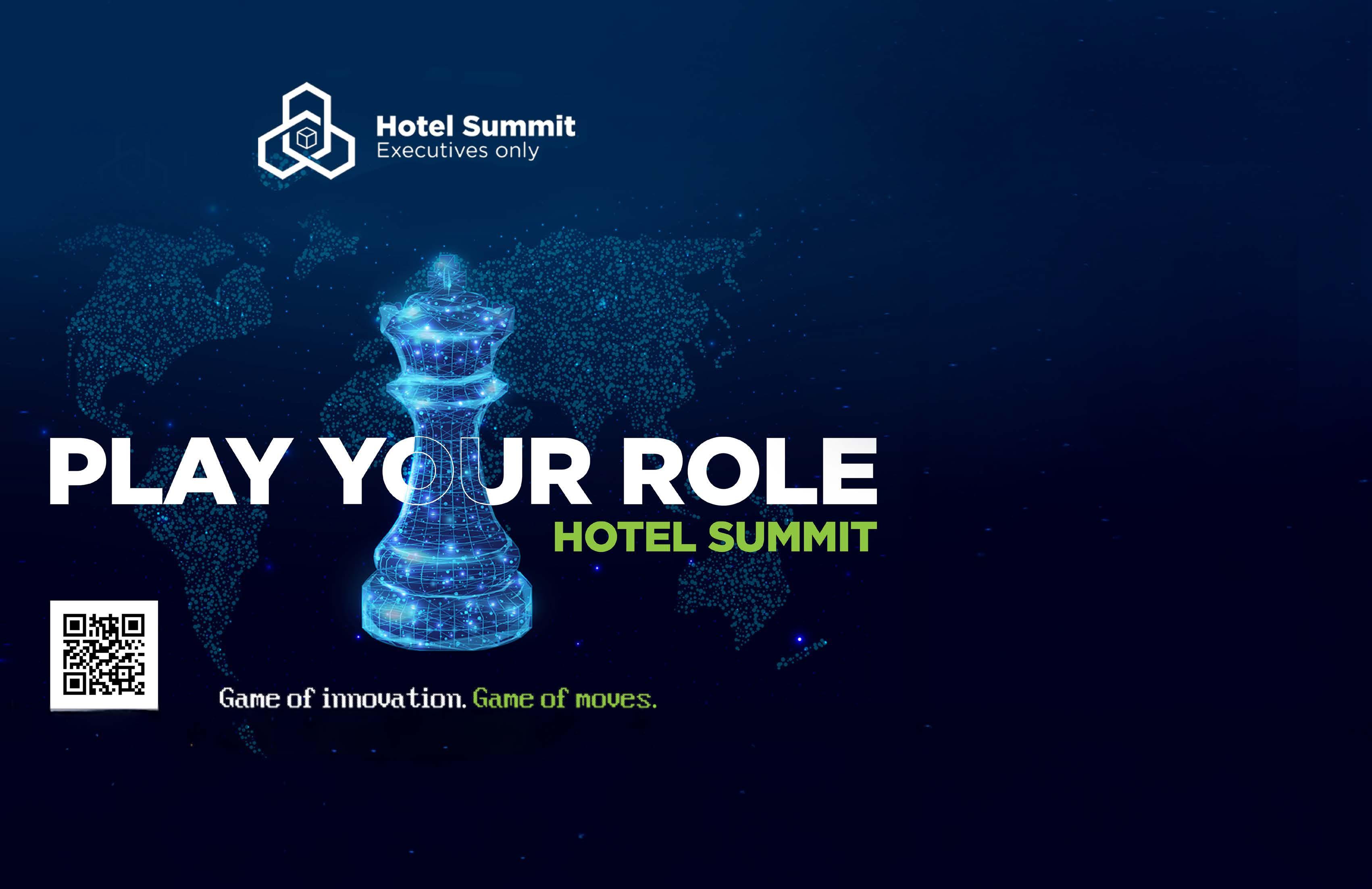








Savudrija, Croatia
October 15–17, 2025
For the second year in a row, Hotel Summit – Executives Only brings together top leaders from the hospitality and technology sectors for an exclusive, invitation-only event. Tailored specifically for C-level executives and senior management, this summit offers an unparalleled opportunity to explore how cutting-edge technology is reshaping the future of high-end hospitality.
Set against the luxurious backdrop of the Kempinski Hotel Adriatic in Savudrija, this three-day event features high-impact panels, one-on-one interviews, and curated networking moments — all designed to spark fresh ideas, foster meaningful connections, and deliver actionable insights.
The stage will welcome prominent regional panelists, visionary moderators, and distinguished international guests — including senior directors from leading global hotel chains.
Whether you’re looking to stay ahead of the curve, form valuable partnerships, or elevate your strategic perspective, this summit is your must-attend event of the year.
Date: October 2025, 15–17
Location: Kempinski Hotel Adriatic | Savudrija, Croatia
Registration: Now open via official channels
Stay connected and informed:
Web: hotelitsummit.com
Email: sales@hotelitexecsummit.com
Instagram: @htlsummit
LinkedIn: Hotel Summit – Executives Only


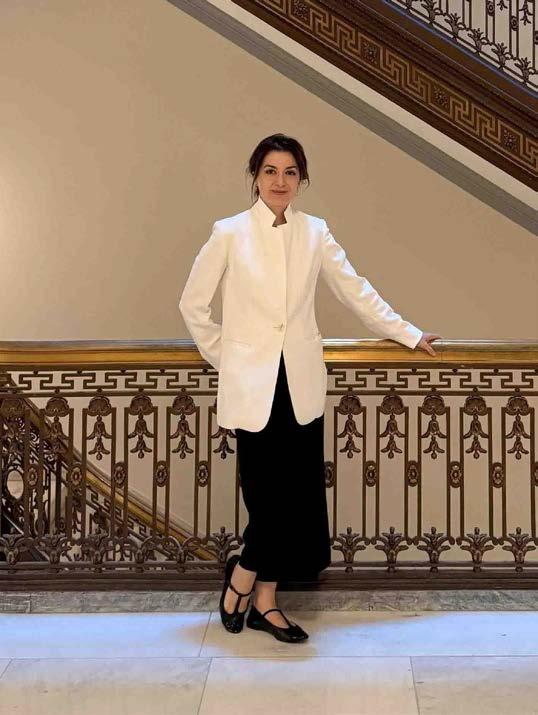
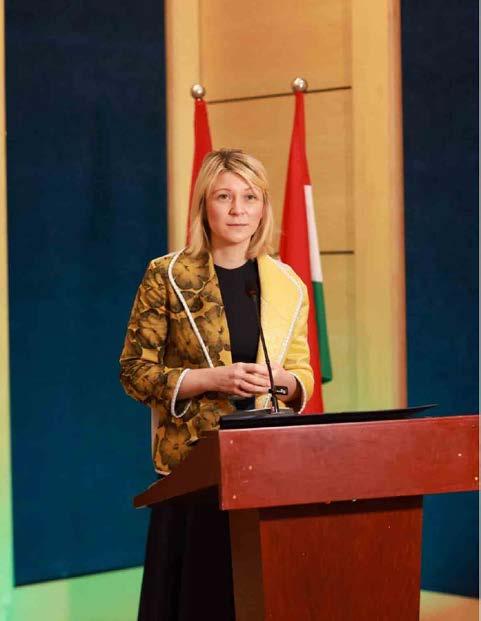

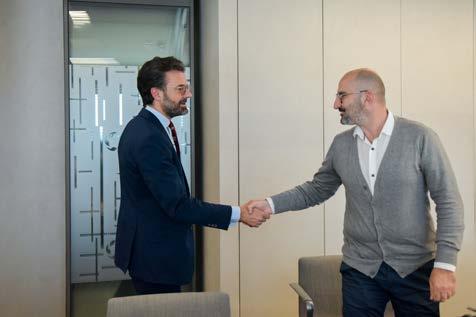

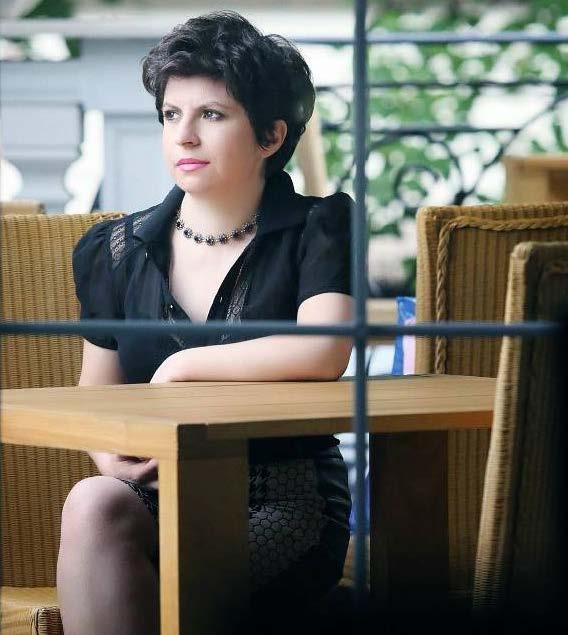
Rudina Hoxha • Founder
By Jose Pinto & Rudina Hoxha
Many hotels and companies traditionally keep bad and mediocre managers because they don’t have the stamina to invite them out or for reasons such as: “they are too old in the company, or because they have, upon on time, sign for the company a good project, or because their relative is a good friend of someone within the company.” Or if you prefer they do not see or close their eyes to the damage caused by the incompetence, or the manager is a good lobbyist to the
boss, among many others.

Whatever can be the justifications, fixing the damage done to talents will not be possible without a direct and decisive action, by the leader who is the only responsible for the overall organization climate as well the employee satisfaction and motivation..
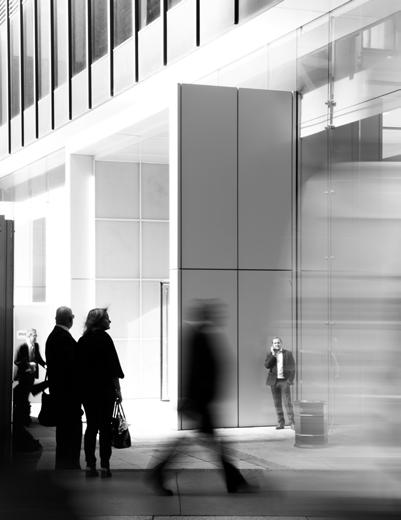
prove to be a good mentor among many others to occupy a leadership position and be responsible to this position.
There are companies, which even believe that they need a tough and stern boss to bring the team into line, as they think they need an authoritarian candidate rather to implement discipline in the area disregarding other values and integrity, ethics, and company values.
A company, which does not have internally clear business codes of conduct, policies, procedures, controls, rules and regulations and clear expectations from each employees, is a strong candidate to have high demotivated poor mental health of employees, high indices of absences, harassment, discrimination and therefore low turnover.
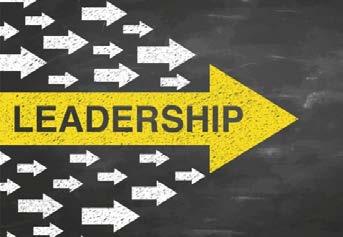
The huge mistake is to promote an employee to a leadership position without letting him or her going through the leadership assessments. In many cases, the promotion comes because they are the best dressed and spoken or a good sale or even a good lobbyist among the top executives of the company and not because of proven track record of achieving and exceeding results, demonstrated initiatives, displayed confidence and resilience and above all an example of great emotional intelligence. Only such a candidate can

By Rudina Hoxha & Jose Pinto
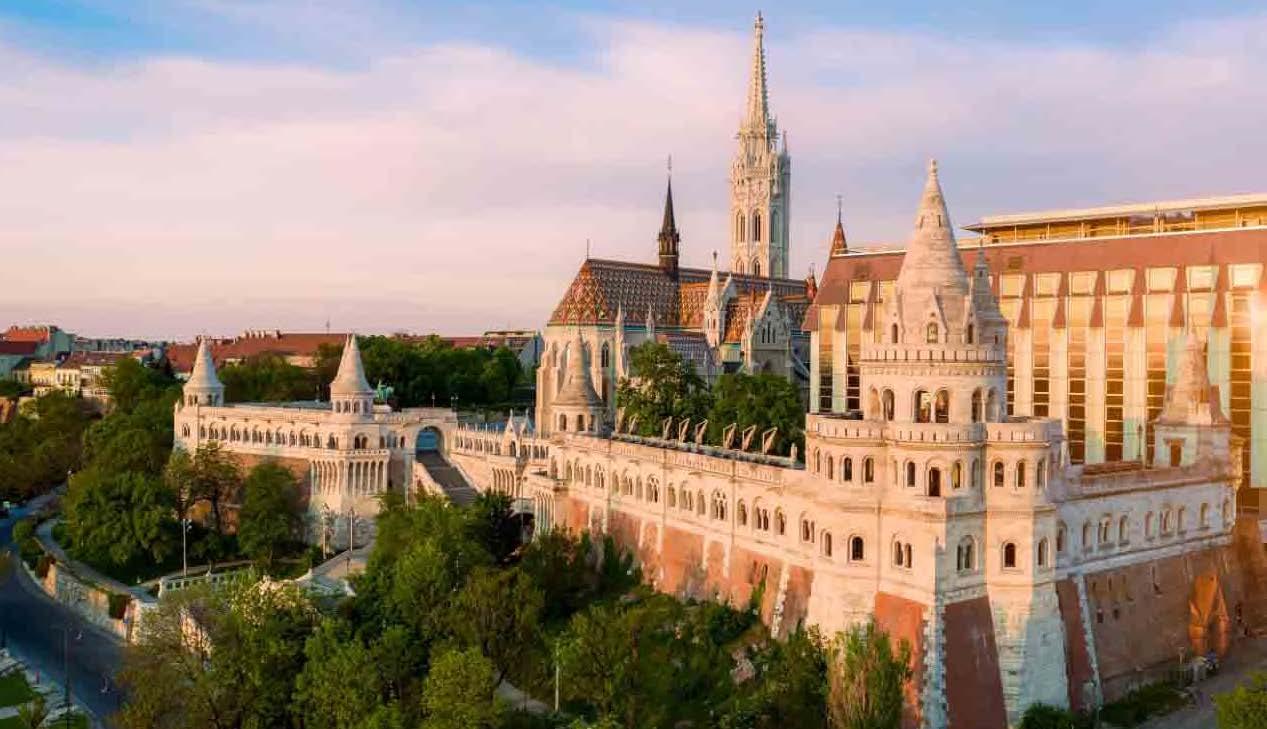
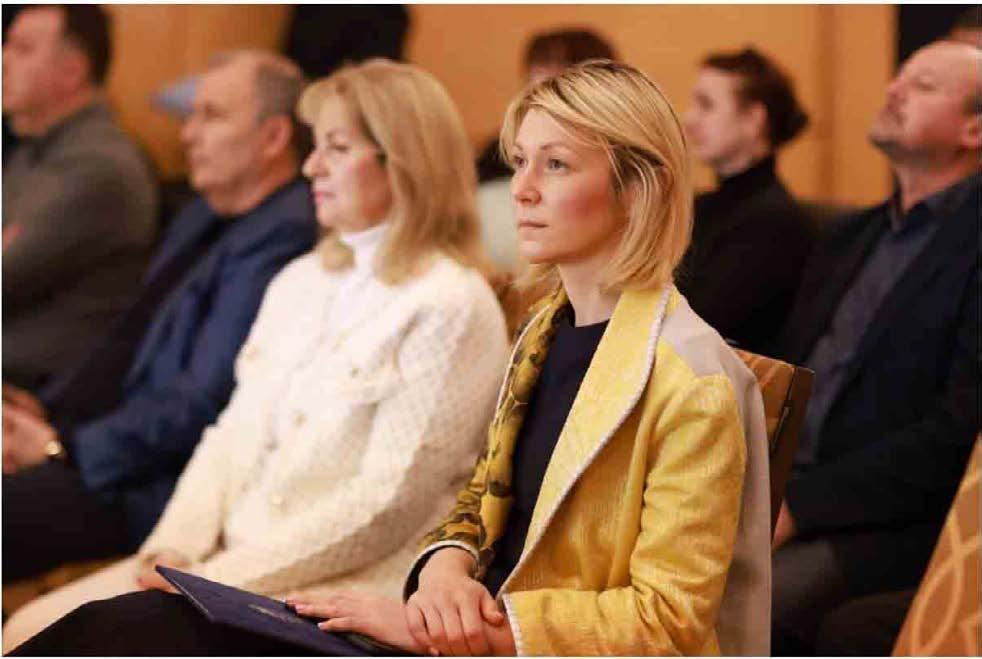
On her second tenure in Albania, the Ambassador of the Republic of Hungary to Albania, H.E. Martina Kasnyik, talked with TRAILBLAZING MAGAZINE about the role and support of her own country to Albania in a key moment, that of the integration to EU.
“In line with our commitment to the EU-accession of the Western Balkans, our integration experts, including two in Tirana, provide support in all countries of the region. Albania and Hungary are reliable NATO allies that contribute significantly to the development of the defense capacities of our alliance,” she said in this exclusive interview.
She also underlined the powerful role of the Hungarian companies in the region in general and in Albania in particular.
“The volume of Hungarian capital in Albania increased gradually between 2018 and 2024, ending the year 2024 with 405 million euros, a 21% increase compared to the previous year (in 2023 we reached 333 million euros). Albania was our 63rd trading partner in 2024. In 2024, it ranked 57th in our exports and 74th in our imports.”
“Hungarian companies have been active in the region for over a decade. We are proud of the investments of 4iG and OTP, as well as the presence of WizzAir in Albania,” Ambassador Kasnyik stated.
“Expanding the sphere of cooperation between the two countries” remain one of the main goals of the Ambassador.
“Albania is a very important partner for us in terms of bilateral economic relations, I believe it is a huge and serious homework to maintain the presence of the Hungarian companies as well as to attract more Hungarian investors,” she said.
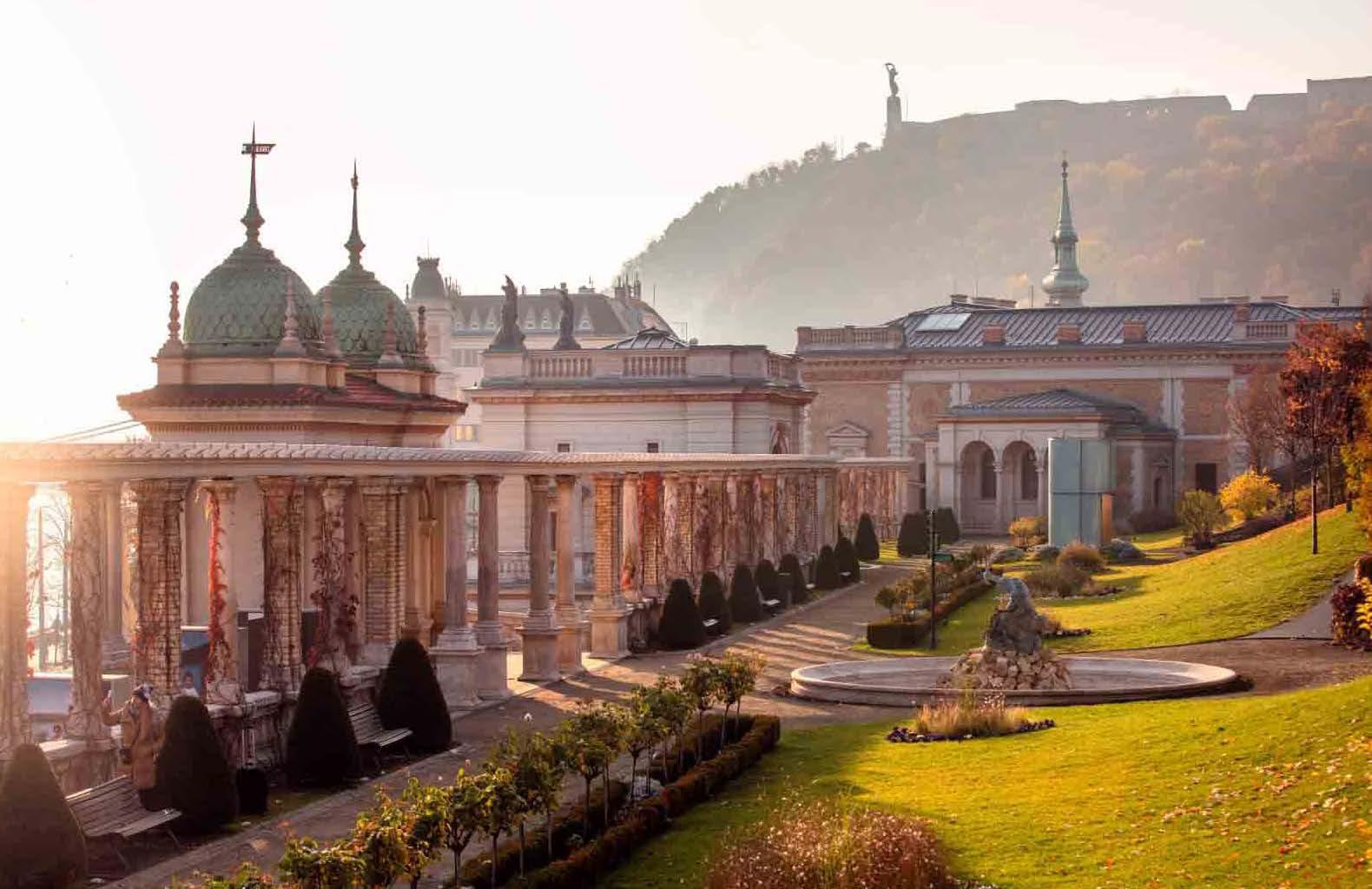
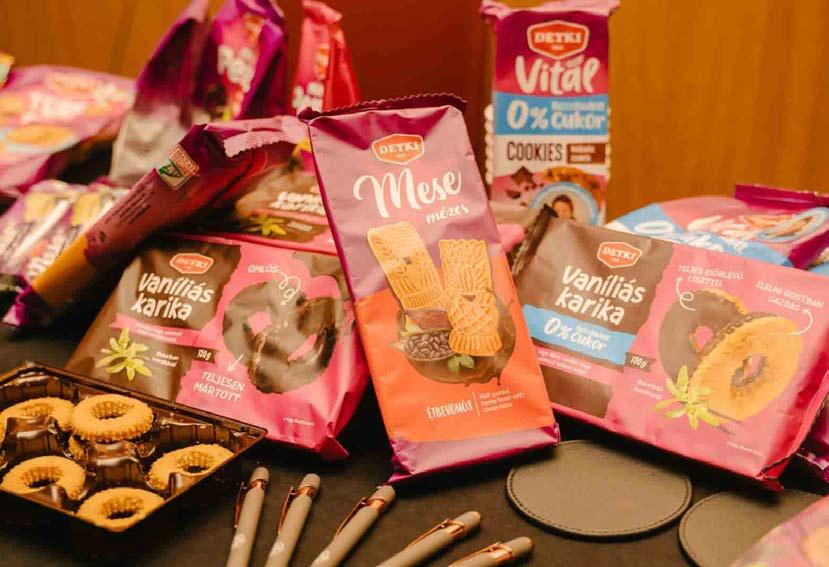
Looks like with your recent appointment as Ambassador of Hungary in Albania, “a quiet revolution” is happening aiming to give a strong boost to the trade relations between the two countries. How are you managing this?
I would better define my comeback as a revitalization than a revolution.
Hungary’s political support to Albania is driven by two main factors: economy and security. The bilateral relations between our countries are constantly developing and that political meetings at the highest level are held regularly. Hungary’s commitment

‘‘Almost 60 000 Hungarian tourists visited Albania in 2024. In order to increase the number of visitors reciprocally in both countries, 24 tour operators visited Albania in February and the Albanian Tourism Agency travelled to Hungary aiming to establish collaboration with the Hungarian Tourism Agency. Investment in the tourism sector is timely, so we need to figure out how to realize it.”
to continuing to deepen the bilateral political, economic, cultural and educational relations with Albania is uncompromising.
While Albania’s EU integration continues to play a dominant part in the political agenda of all major Albanian parties, Hungary has repeatedly supported Albania’s integration into the European Union. Hungary was one of the first to ratify the Stabilization
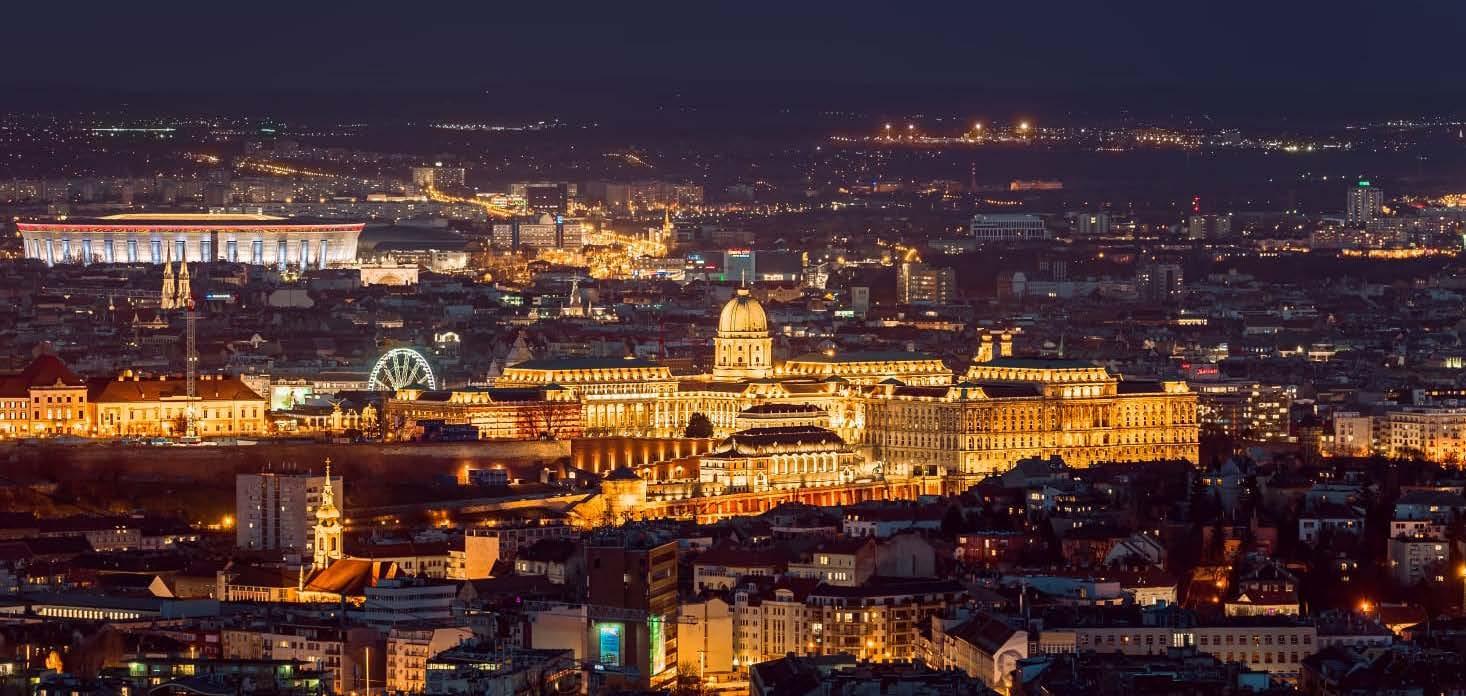
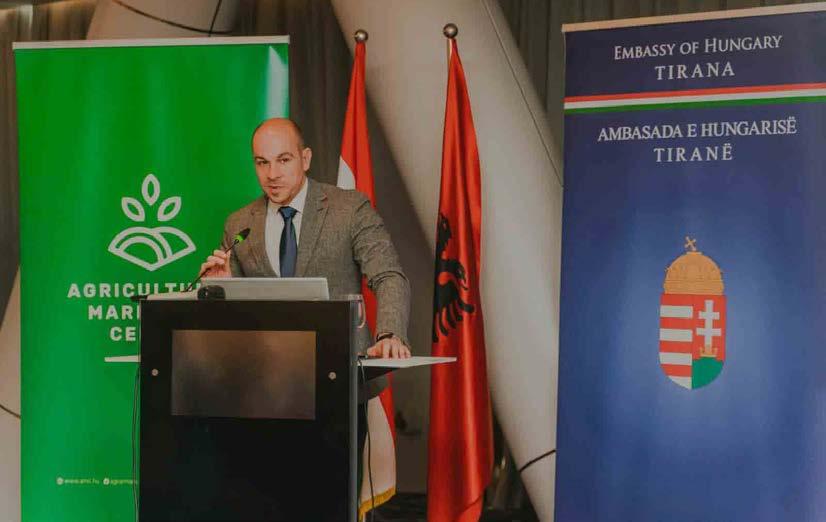
Association Agreement between Albania and the EU in 2007 unanimously. In 2008 the Hungarian parliament also voted unanimously in favor of the ratification of the NATO accession protocols of Albania.
One of the main goals of the Hungarian EU-Presidency in second half of 2024 was to use the geopolitical momentum and give a real boost to the accession process of the countries of the Western Balkans. I am proud to say we succeeded and we remain committed to continue on this path. The two Intergovernmental Conferences held between the EU and Albania in October and December 2024 were concrete results of our efforts, through which the accession negotiations could proceed to a more substantive phase. We welcome that the pre-financing under the Growth Facility for the Western Balkans has become available for supporting the development and reforms in Albania. We initiated the first EU and Western Balkans Customs Director meeting during the Hungarian EU Presidency in order to bring the economies of the region closer to the EU single market and we are happy to see that Albania is organizing in June the second similar highlevel discussion.
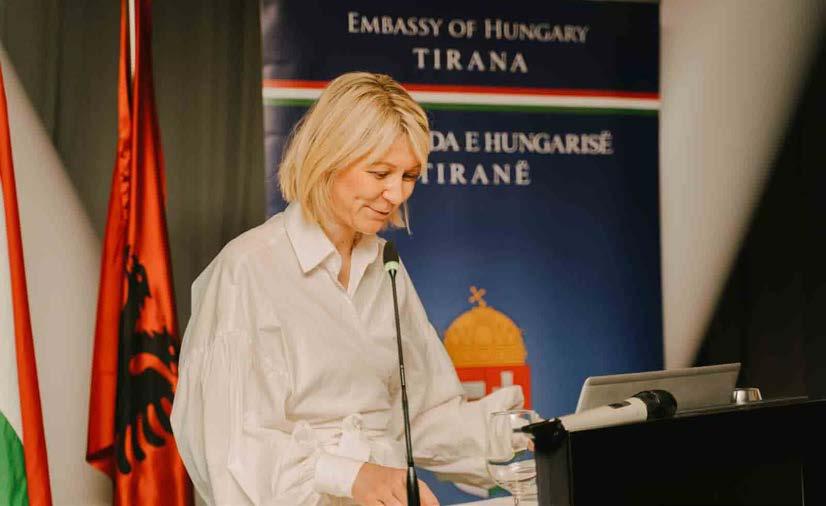
Hungary hosted the 5th Summit of the European Political Community. Our experts worked closely with Albanian partners to transfer their knowledge and expertise concerning the organization of the 6th EPC Summit held on 16 May 2025 in Tirana.
In line with our commitment to the EUaccession of the Western Balkans, our integration experts, including two in Tirana, provide support in all countries of the region. Albania and Hungary are reliable NATO allies that contribute significantly to the development of the defense capacities of our alliance.

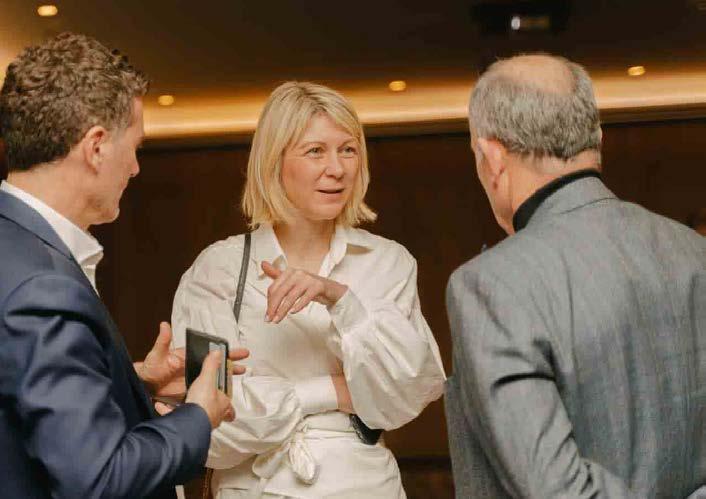

Hungarian companies have been active in the region for over a decade. We are proud of the investments of 4iG and OTP, as well as the presence of WizzAir in Albania.
The volume of Hungarian capital in Albania increased gradually between 2018 and 2024, ending the year 2024 with 405 million euros, a 21% increase compared to the previous year (in 2023 we reached 333 million euros). Albania was our 63rd trading partner in 2024. In 2024, it ranked 57th in our exports and 74th in our imports. For the full year 2024, our exports increased by 13.5% to 125.3 million euros. The total trade turnover increased by 5.8% to 138 million euros. Our surplus was 112.6 million euros. Although bilateral trade is gradually increasing, there are still potential fields that I intend to exploit during my stay in Albania. I see great opportunities in the tourism sector and the emergence of our fintech companies in the Albanian market.
We are delighted to host Albanian students under the Stipendium Hungaricum scholarship program. Albania is one of our important partner countries in the region. We cooperate under an agreement signed in 2024, which provides for 20 scholarships for Albanian applicants annually.
Why is the entry of Hungarian companies into the Albanian market important for both countries? Are there already use of best practices?
First of all, the presence of WizzAir has opened the door to Albanians to Europe and for tourists to come and boost the Albanian economy. The entry of Hungarian companies into the Albanian market is of great importance, as it increases economic cooperation, creates jobs, and encourages knowledge and technology transfer. Of course, best practices are already being applied, especially in sectors like renewable energy, infrastructure/construction industry, and banking, enhancing efficiency in Albania.
What does Albania mean for Hungary and how can the two countries profit more from their mutual early connection and collaboration?
The European Union needs a new dynamism, and this new strength and freshness could come from the ambitious countries of the Western Balkans that want to join. In this respect, Albania is one of the frontrunners, having made remarkable progress towards accession in recent years. Hungary has been able to contribute to this process, building on the very good bilateral relations between the two countries. This good relationship also contributes to our growing trade relations and to the increasing number of investments, which still holds many opportunities.
What are your main goals as Ambassador?
Expand the sphere of our cooperation.
Albania is a very important partner for us in terms of bilateral economic relations, I believe it is a huge and serious homework
to maintain the presence of the Hungarian companies as well as to attract more Hungarian investors.
Almost 60 000 Hungarian tourists visited Albania in 2024. In order to increase the number of visitors reciprocally in both countries, 24 tour operators visited Albania in February and the Albanian Tourism Agency travelled to Hungary aiming to establish collaboration with the Hungarian Tourism Agency. Investment in tourism sector has a moment, we need to work out how to realize.

I would also highlight two severely important fields: agriculture and public administration. In the process of joining the EU, we faced similar challenges, in order to share best practices, we are open to sharing knowledge and experience with our Albanian friends. In the enlargement process, the agriculture and food sector merits particular attention because trade and policy issues between the candidate countries and the EU are more important in this sector than in any other. We have signed a memorandum of understanding in the field of agriculture and an action plan in providing training for public servants under the umbrella of the Hungarian Diplomatic Academy in 2024, now it is time for implementation.
What is the focus of the Hungarian government regarding sustainability and energy policy and how can the two countries cooperate more effectively in these aspects in the future?
For Hungary, energy security is a matter of sovereignty, a physical and not an ideological issue. It is important to attract new resources and create new transport routes in order to encourage adequate energy supply. Demand for electricity will grow very rapidly in the coming period and we need to serve it in an efficient, predictable, environmentally friendly and cheap way. According to Hungary, nuclear energy remains central to Hungary’s longterm energy security strategy. Future opportunities for our counties in this matter, include the development of natural gas and LNG infrastructure in the region and electricity interconnections between the countries of the region, which would contribute to the energy security of Albania and Hungary.
How important is in your job the fact that you know Albania very well as this is your second time you work here as a diplomat?
Knowing Albania well is very important in my job—it allows me to navigate the local context more effectively, build stronger relationships, and support cooperation between our countries with deeper cultural and political understanding. My previous experience here as trade and economic attaché gives me valuable insight and continuity in my diplomatic work. I feel privileged to serve in this country again.

We didn’t want to bring just another “simply good” gin to the market. We were looking for something truly special – a spirit that tells the story of who we are as Hungarians. Opera Gin exceeds the expectations of a London Dry: eleven botanicals, a unique distillation process, and a distinctive flavor. The distillery is located in the heart of Budapest, in a beautifully restored industrial building, where tens of thousands of bottles are handcrafted each year – unfiltered and full of soul. At Frank Panama, we knew from the very first moment that this gin was exactly what we had been looking for. Opera Gin is the creation of an exceptional independent Hungarian distillery. Its story, quality, and character reflect the values we stand for. As the brand’s official distributor in the Balkans, our mission is to introduce this spirit to as many people as possible. Because we believe this is what premium truly means. After our first visit, we also fell in love with Albania – and its people. The culture, hospitality, and openness inspired us deeply and confirmed our belief that premium products can build real bridges between people and nations. A good gin brings people together –friends, ideas, stories. And in Albania, this gin brought us new friendships that go beyond business and turn this journey into something genuinely human.




In 2020, Opera Gin received the kind of recognition every creator hopes for: a gold medal at the prestigious International Wine and Spirit Competition – awarded for both flavor and design. Sophistication, character, and harmony – all in one sip.
Riding the wave of this success, the distillery introduced Opera Vodka –crafted from the finest Hungarian corn and crystal-clear water. A clean, smooth spirit where every drop speaks of quality and attention to detail.
Opera represents everything we believe in: bold flavors, elegant design, and authentic heritage. We are proud to bring this award-winning selection to a new audience as the exclusive distributor.
We’re committed to making these exceptional products available throughout Albania. We are now actively seeking distribution partners who share our passion and want to grow with us in this exciting, fastdeveloping market.


This spring, we presented our spirits – gin, vodka, and cocktail specialties – at the 24th B2B event of the Hungarian Food Business Program in Tirana. We are grateful to the Hungarian Embassy in Tirana and the Agricultural Marketing Centre for their support. We believe in the potential of high-quality Hungarian products across the entire Balkans. We are currently looking for distribution partners throughout Albania who share our commitment and would join us in building a premium brand in this vibrant region. Let’s write the next chapter together.
www.frankpanama.com

“Glion Similar to the UN, Students from 100 nationalities learn under the same roof.”
By Rudina Hoxha & Livia Hoxha Live from Montreux, Switzerland

From the magic terrace of The Glion Institute of Higher Education (GIHE) campus, located in the village of Montreux, Switzerland, we had the absolute opportunity to interview Mr. Goran Yordanov, GIHE’s Global Director for Postgraduate Programs.
In a truly insightful conversation with TRAILBLAZING MAGAZINE, we discussed hospitality and luxury as DNAs of the GIHE, the importance of the human values as foundations of this School, ranked among the top 5 universities in the world and how GIHE is helping the students to find the path of their lives.
It’s a must-read for all in the hospitality industry…
What is the story behind your close connection with The Glion Institute of Higher Education (GIHE)?
The journey starts from what many young people have to experience today: which is to find what you want to do in life. So, I remember finishing high school back home and of course, wondering what to do next. And I did back then what I advise young people to do today, which is look deep into themselves but also rely on their families. Because let’s face it: the people who want the best for you are your closed ones, friends, families and others. So, at that time, I sat with my family and we talked about my strengths: I was a very social person; I wanted to travel a lot; I was good at learning and speaking foreign languages, so I decided to leave Bulgaria and study hospitality management. That was my first big decision that put me on the path to where I am today. I studied hospitality, I worked in this industry with some great companies and brands. I had the pleasure to live in 6 different countries along this exciting journey starting from Switzerland to Atlanta (US), Paris (France), Dubai and Troyan (Bulgaria), my home country. I was able to fulfill my early dream: travel the world and work with people.
Here we are today following the students’ dreams and making other people passionate about the same thing.
In all these years of work, what have you understood about the foundations of The Glion Institute of the Higher Education and how are you transmitting them to the students?
When we look at the GIHE but even Les Roches today, one thing that is very foundational is the desire of everyone that is working and contributing here to transform the lives of the students which is the purpose of education.
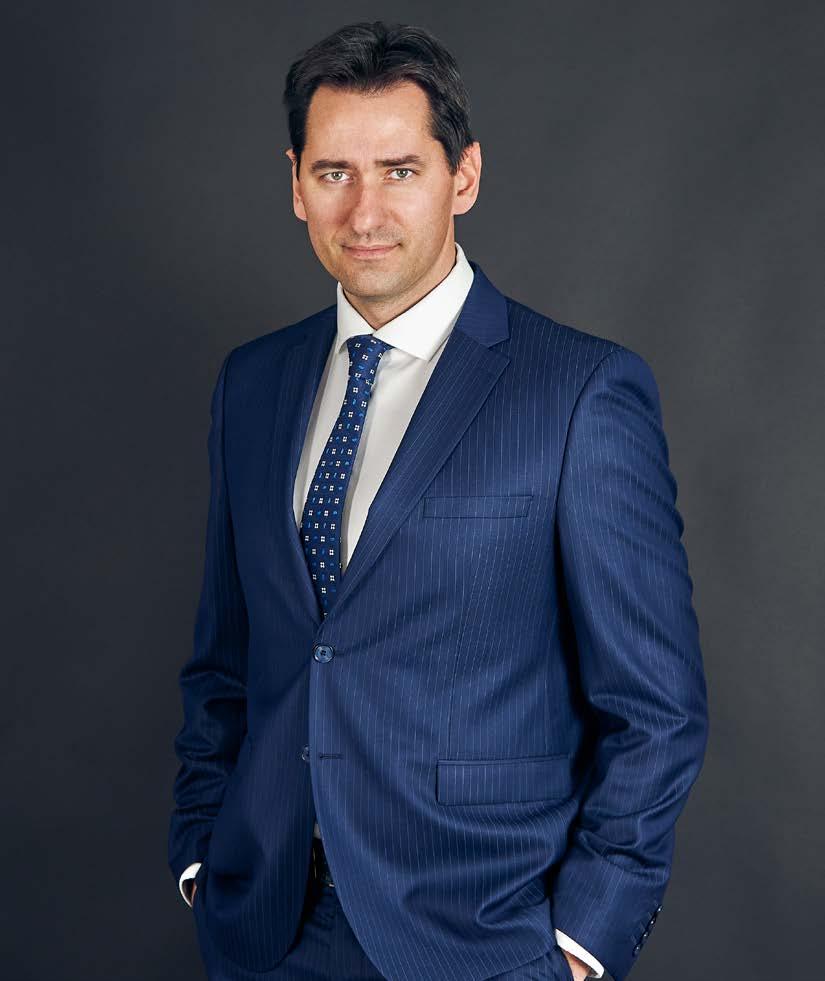
What I have understood over the years is that education helps you to learn new things but most importantly, shape your character. What I have noticed from counseling many students over the last 15 years is that studying at GIHE or Les Roches changes you positively and prepares you for life in general. What we see later is that the students might take the path of hospitality or the path of many other disciplines, however, no matter where they work, in luxury sphere, sports, events, even in finance or manufacturing, what is important for them is the foundations, that personality that strikes. Recently I joked with a colleague of mine, who studied hospitality and took a similar path like me (he studied in US and I was in Europe most of the time.) We met after 12 years and said to each other that we have not met for a long time, but it seems we have known each other forever because when you have the same foundations, values, work ethics, beliefs, this is very transitional between the industries. I think this is what makes GIHE and Les Roches so special - our students
who later become part of a large global community, more than 14.000 people for each of the universities. They make that community count, wherever you are in the world with their professionalism and care.
Please can you share with us in a nutshell, the Glion Institute of Higher Education?
Glion celebrated 60th anniversary recently. It was founded 60 years ago as a place to learn about hospitality. Its founding principle is to learn by practice, to learn by doing. This has kept Glion going for many years. So, we keep this DNA today.
So, everything you learn at Glion, you learn it by doing. We take students out in the industry, we introduce them to business leaders, we make sure that they also have practical classes in the school. So, this is one of our founding principles.
Does Glion connect the students with the jobs?
Yes, this is the end of the journey where we connect them with the industry. About 98 percent of our students will have a job after graduation. Another interesting statistic is that the Glion students have an average of 6 internships offers when seeking placement, during their education journey and this brings me to another point: at Glion, the students have to do internships in all our programs. This means they have to apply or they learn in the real life.
This internship is a work experience in the company for 6 months. Unlike many universities in the world which apply twoweek internships, in Glion, the students stop studying and they go somewhere in the world to make internship for 6 months. So, they bring a lot of value back in the class and for you as a person.
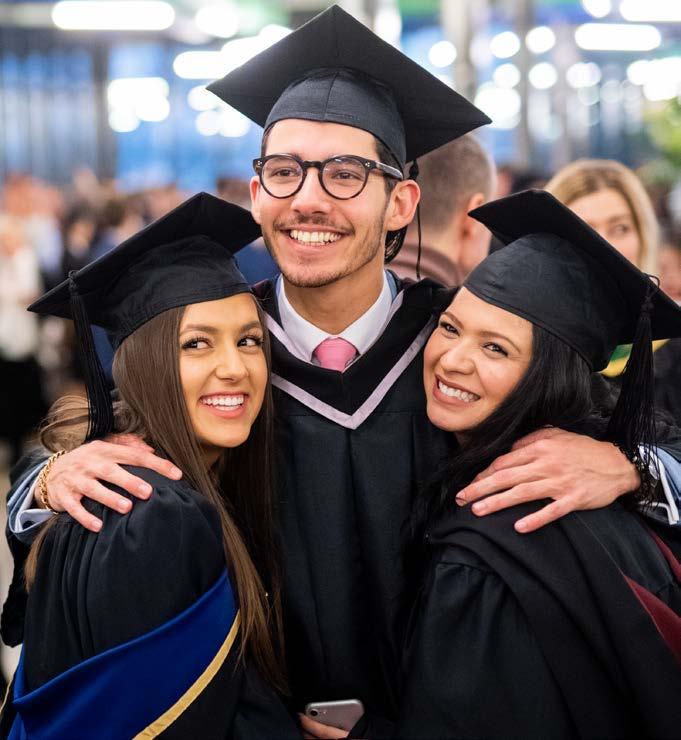
As far as the nationalities of the students is concerned, I am happy to highlight that we have every year Albanian students who apply to study at Glion. This year, 3 new students, great ones, very hospitable by nature, will be enrolled.
What we have noticed is that the students, who come to study at Glion, are very passionate to learn about the other cultures. This is very powerful at Glion. We have more than 100 nationalities on campus. It is just like the UN, students from all over the world, come to learn under the same roof. This also teaches you humility and how to understand different people.
If you look at the way the world is today, at the end of the day, the future is people uniting together, working and respecting each other, this is what we do in the school, we teach those principles.
For example, when you take a class in services, you are taught how to collaborate with people from different cultures and nationalities. And this is a learning experience involving the soft skills, managing the relationships and understanding other cultures.
What is Glion is today; we expanded beyond to what we started 60 years ago. So, if 60 years ago, we were a hospitalityfocused university, today we know that we prepare students for a wide array of jobs with the Hospitality DNA.
Being at Glion makes sense. We had a lot of companies coming to us, representing big brands, like Rolex, Gucci and others coming to recruit our students. We said that makes sense, let’s start in that direction. This bachelor has been very popular which allows you to enter into a big industry. Very often, when people think luxury, they think this is very niche. And this is what the luxury industry wants you to think of course. They want to be exclusive, very high end limited to the customers because that’s how you build a luxury brand. But as an industry that generates more than $1.5 trillion in revenues in the world. It is still a big business. At Glion, we talk about luxury retail and luxury experiences which can include everything from private yachting to private planes to an exclusive excursion and so on. The Bachelor’s in Luxury Management program is very similar to the bachelor in hospitality, internship included, great mix of nationalities and of course an entry to the luxury brands.
On Masters level, we follow the same path. We have the masters in hospitality, in luxury, but we have also a Master in Real Estate because real estate and hospitality goes hand in hand. We know that some of our students want to go in this direction. We learn this subject to our students in our campus in London.
Glion has two campuses in Switzerland (one where we are today – Montreux and another one in Bulle, a very nice town in Switzerland very close to Lausanne) and
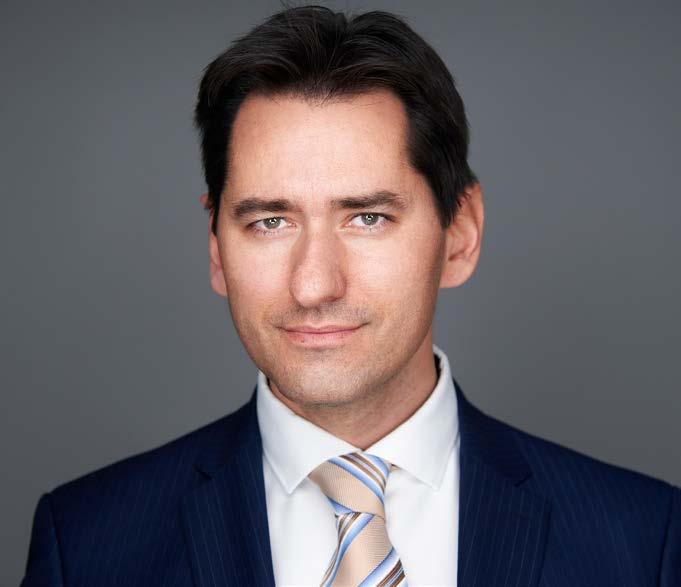
the third one is in London, in Downshire House, in the grounds of the University of Roehampton, west of London.
This is Glion in a snap shot: a unique place where we have what we call “Glion spirit living” which is that home concept of the attitude, the skills set and personality that we want our students to have.
How does Glion beat competition?
The reason why GIHE has consistently been ranked among the top five universities in the world, is because of innovation, quality of professors, who are people who can inspire the young generation. How do we do that? You have to have a mix of people who come from different industries, so they can bring their stories, their excitement, the knowledge through their practical experiences. But also people who are at the


top of their academic game who are up to date with everything that is happening in their industry so they can share with their students. So, we have a very good mix of faculty, very motivational ones. In addition, we have the environment that is very unique and we try hard to maintain it consistent. So, if you think why, you go back to a luxury hotel, it is the people, it is the experience, it is the touch. It is the same thing that we try to do here at GIHE.
How do you see the future in your work and the future of Glion?
The world is becoming a confusing place for the young people. Many of them don’t know what they want to do or they have an idea but they are not brave enough to follow it. Because of many reasons. They are always at a crossroad. The reason is that today the students are in front of many possibilities but it can be daunting to choose because there are many choices. When you have many options, you always doubt whether I could have chosen better. So, I think that a big portion of what I need to make even more is counselling; help the people discover their strengths; gain the confidence and take the plunge. There are many great business universities out there but they are too generalist and you end up being graduated as a generalist. Therefore, you need to still find your path and you are again at a crossroad. So, keep learning business but through the lenses of an industry. Learn business through the eyes of
a hospitality industry or luxury. Graduate with some kind of industry focus, or some specific knowledge. That’s what we will keep doing at Glion; keep that DNA of hospitality or luxury. Give students a profession in their hands but still graduate them to be great business leaders in any function or industry. So, that’s this heritage that we will carry with us.
is coming for Glion?
As the summer is here, the students go in internships and we open the doors to the youngsters. We have programs for this category, starting from 15 years old and we welcome them for a week or two at Glion and Les Roches. We show to them what does it mean to be a hospitality professional or a luxury industry professional. So, during this time, they attend workshops, meet our students, visit hotels, meet their managers. Whereas for the luxury students, we organize tours at luxury spas, at Hublot’s factory and other luxury brands.
If these students decide to study at Glion, we show to them what their life is gone look like. That what is coming this summer at Glion.
We also are open to consider new candidates as we apply a rolling admission platform. We have late applicants because of that confusion we talked above, so we give possibilities to the students to apply even in June or July.
Do you have a final message to share with our readers?
I like to stay positive. I believe that in spite of all the challenges in the world today, we need to have some hospitality in our lives as well as a bit of urge to welcoming others, to be more tolerant and more gracious. I think educating people with those values could be a life mission.

“A Summit born out of need, passion, and the belief that our region can and should lead.”
By Rudina HOXHA & Jose PINTO
“This Summit is the General Managers’chance to pause, recharge, and focus on next year’s plans — surrounded by peers who understand the same pressures and opportunities. It’s about exchanging knowledge in a relaxed but strategic setting.”
This is what Petar Aračić, one of the organizers and the Sales Director of the Hotel Summit, Executives Only, declared in exclusive interview with TRAILBLAZING MAGAZINE.
His interview is a “temptation” invitation in the world of hospitality. “I’ve visited nearly every major hospitality conference across Europe and the US, and I knew I didn’t want to simply copy-paste another event format. I wanted to do something different — and I believe we succeeded from the very first year,” Aračić said.

The upcoming edition of the Summit in October will turn even more heads. “The upcoming edition will raise the bar even higher. We’re bringing together top executives from international hotel brands, regional leaders, and forward-thinking innovators to tackle the most relevant topics shaping our industry. From AIdriven transformation and automation in hotel operations, to the evolving role of management companies, to new F&B concepts and resort development strategies in the Adriatic — the agenda is packed with real substance,” he says.
He also evaluates the tourism development in the region.
“I believe we’re entering a transformative phase for hospitality in our region. Albania is a great example — it’s no longer just a hidden gem, but a destination on the rise, attracting real investor interest and now being recognized by major global hotel brands.”
Petar Aračić a highly accomplished General Manager and F&B expert with 15 years of experience in hospitality industry, is also the Founder and CEO of FastReview which provides complete solution for personal/ business reviews across multiple social media platforms in quick, reliable, authentic and organic way.

Full interview follows:
The second edition of Hotel SummitExecutives Only will be held on October 15–17, 2025 at Kempinski Hotel Adriatic, Istria, Croatia. Please can you share with us what experiences and insights inspired you to establish this Summit?
The idea for the Hotel Summit – Executives Only came from countless conversations I had with general managers, regional directors, owners, and partners in the industry over the years. I kept hearing a recurring theme: that while there are many events for hoteliers, very few are truly tailored to toplevel decision-makers. I wanted to create a space where hospitality leaders could step away from daily operations, exchange insights, and build meaningful relationships — without being overwhelmed by sales pitches or general content. The aim was clear: quality over quantity, both in the programming and in the guest list.
I also wanted to bring together all the key regional decision-makers in one place — and connect them directly with the world’s leading hospitality tech and solution providers. Our region deserves more. We need to keep pace with global hospitality trends and extract more value from technology, but that can only happen if the right people are in the right room.
General Managers are often too caught up in the operational whirlwind to step back and look at the bigger picture. This Summit is their chance to pause, recharge, and focus on next year’s plans — surrounded by peers who understand the same pressures and opportunities. It’s about exchanging knowledge in a relaxed but strategic setting.
I’ve visited nearly every major hospitality conference across Europe and the US,
View from the first edition of the Hotel Summit last year
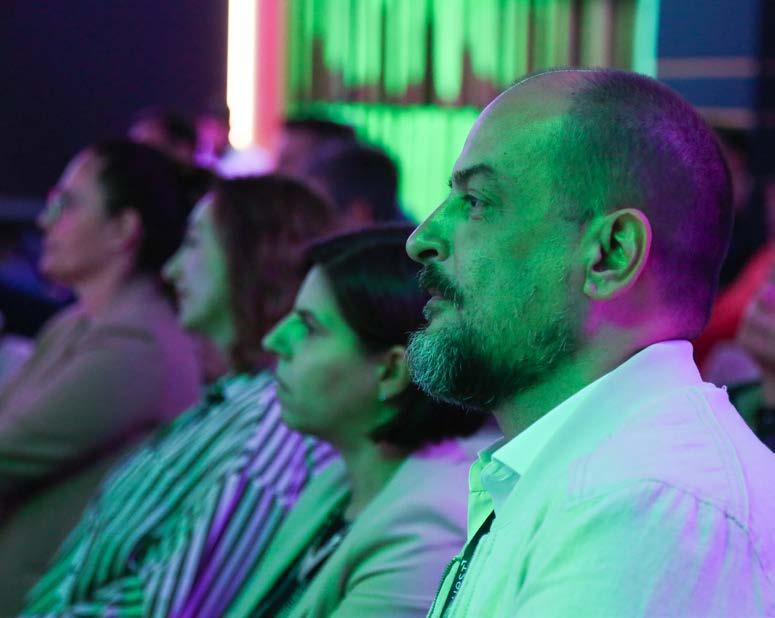
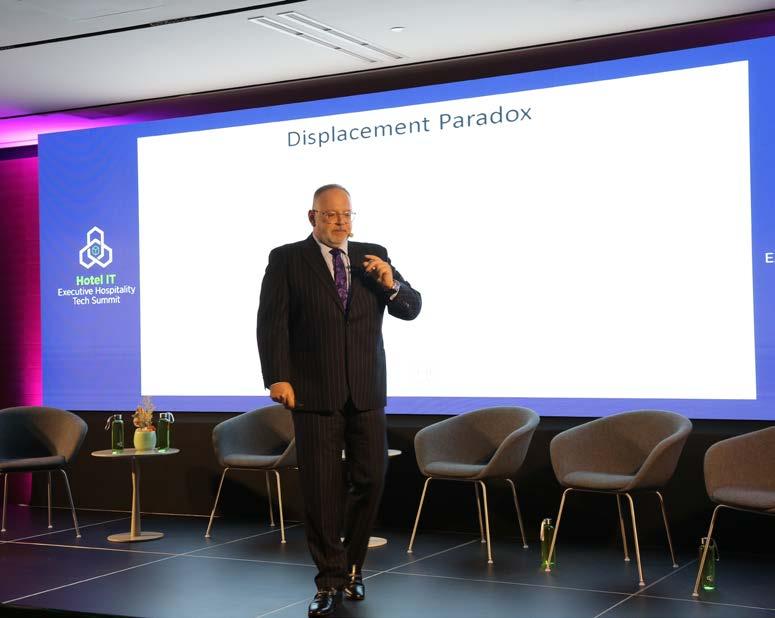


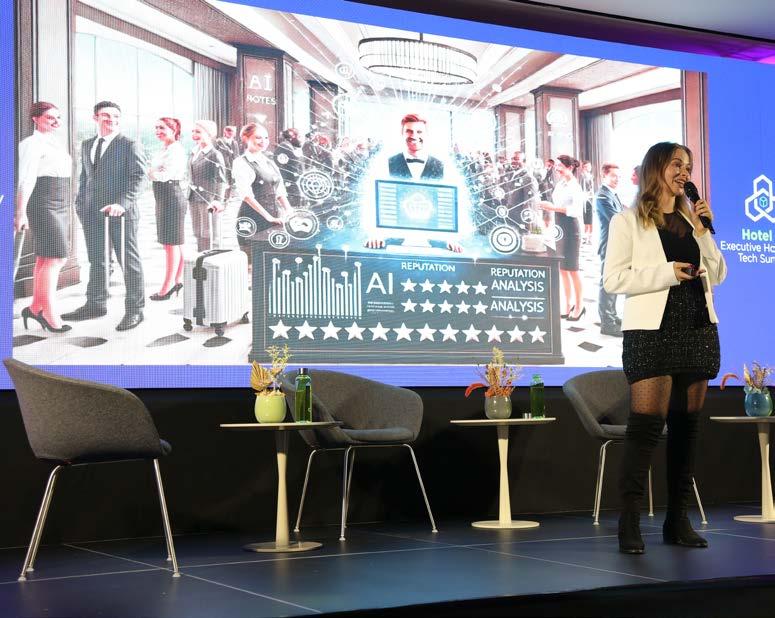
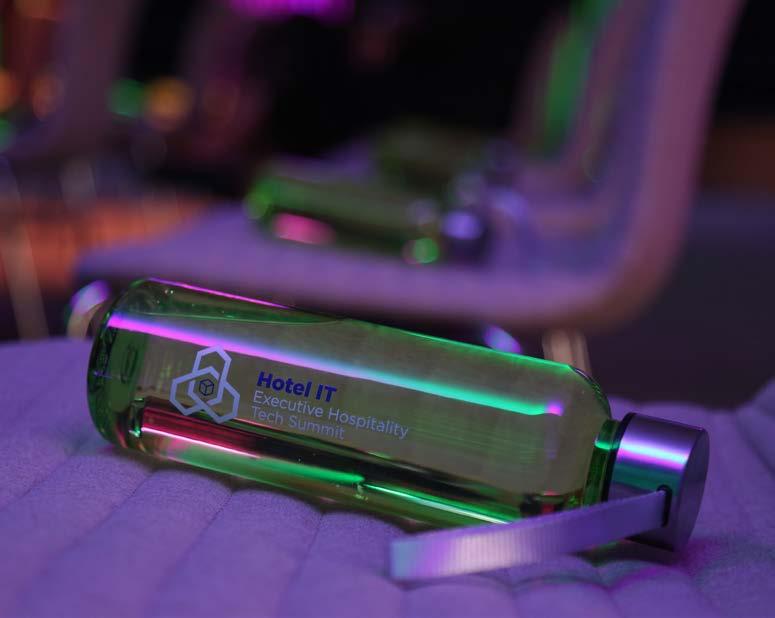
and I knew I didn’t want to simply copypaste another event format. I wanted to do something different — and I believe we succeeded from the very first year. I gathered a small but dedicated team, built the right concept, and the energy just clicked. That’s how the Summit was born — through a mix of need, passion, and the belief that our region can and should lead.
How does your work intertwine with this extraordinary Summit? Is there a backstory on how the Hotel Summit came into existence?
My work has always revolved around connecting people in the hospitality ecosystem – whether through consulting, networking, or organizing other industry events. The Hotel Summit was a natural extension of that mission. It actually started with a smaller, more informal gathering, which turned out to be more impactful than we imagined. That response confirmed that there was a real need for something curated, focused, and executive-level. So, I poured my energy into building it properly – from identifying the right speakers to designing a format that encourages honest, strategic conversations.
What can we expect to see from the next edition of this Summit? Can you tell us about the key topics? What about the hospitality leaders? Why should the most influential hospitality leaders attend it?
The upcoming edition of the Summit in October will raise the bar even higher. We’re bringing together top executives from international hotel brands, regional leaders, and forward-thinking innovators to tackle the most relevant topics shaping our industry. From AI-driven transformation and automation in hotel operations,
to the evolving role of management companies, to new F&B concepts and resort development strategies in the Adriatic — the agenda is packed with real substance.
But what truly sets this event apart is the people in the room. The leaders who attend are not just passive listeners — they actively shape the dialogue. It’s an invitation-only event to ensure that every session, every panel, and every coffee break is meaningful. You’re surrounded by people who face the same challenges and see the same opportunities — and that creates a unique energy you won’t find elsewhere.
This is more than just a conference. It’s a retreat for decision-makers. A moment to step away from daily operations and focus on strategy, innovation, and growth — all in a relaxed and inspiring setting.
If you’re a hospitality executive who wants to stay ahead, be challenged by new perspectives, and connect with the people who are moving this industry forward — this is where you need to be. Join us in Istria, and you’ll leave not only with new ideas, but with the right people to help you turn them into action.
The long-term vision is to make the Hotel Summit a cornerstone for executive dialogue in hospitality – not just in this region, but across Europe and Middle East. I want it to become the go-to annual retreat where leaders step out of the operational whirlwind and into strategic reflection. Ultimately, I hope it contributes to better decisions, stronger industry relationships, and smarter hospitality growth in our part of the world.
How did you get into the travel and hospitality industry?
My journey into hospitality started when I enrolled at RIT Croatia in Dubrovnik. During my studies, I had the chance to do my co-op training at the Hilton Imperial in Dubrovnik, and later at The Ritz-Carlton Club in Aspen. That’s where it all really began. From those early days, I knew this industry had something special — the energy, the pace, and the people.
Over the years, I worked in different positions across several hotels, learning the business from the ground up. I became a General Manager when I was just 28, and by the time I stepped away from hotel operations, I had run five properties. It was an intense but incredibly rewarding chapter of my life.
To succeed in hospitality, you really have to love it. Some of that love is shaped early on — through your upbringing, your family values, and your first travel experiences. Then comes the academic foundation, and finally, the real learning happens on the job. This industry is anything but static — every day brings new guests, new challenges, and new lessons.
When I launched Fast Review, I thought I was stepping out of hospitality for good. But as it turned out, around 60% of our
clients ended up being from the hotel world. Today, we’re proud to be working with almost every major hotel brand globally. In a way, I never really left the industry — and honestly, I don’t think I ever will. It still feels like home.
What is your outlook for the hospitality industry in Albania, the Balkans, and beyond?
I believe we’re entering a transformative phase for hospitality in our region. Albania is a great example — it’s no longer just a hidden gem, but a destination on the rise, attracting real investor interest and now being recognized by major global hotel brands. And they’re not coming by accident. They clearly see the potential — in our natural assets, in the evolving market, and in the future of tourism here.
Across the wider Balkans, we’re seeing the hospitality landscape become more sophisticated. There’s more diversity in offerings, better operational standards, and a generation of leaders bringing in international perspectives. The region is growing stronger — and fast.
Of course, there are still challenges. The shortage of skilled employees is very real, and it goes beyond just frontline staff. Even management and executive roles are often under-supported and underpaid. If we want to build a sustainable and competitive industry, we need to start investing more seriously in people.
Big hotel groups — especially those expanding into this region — should be thinking long-term. That means identifying young talent early, supporting them during their studies, and providing real career
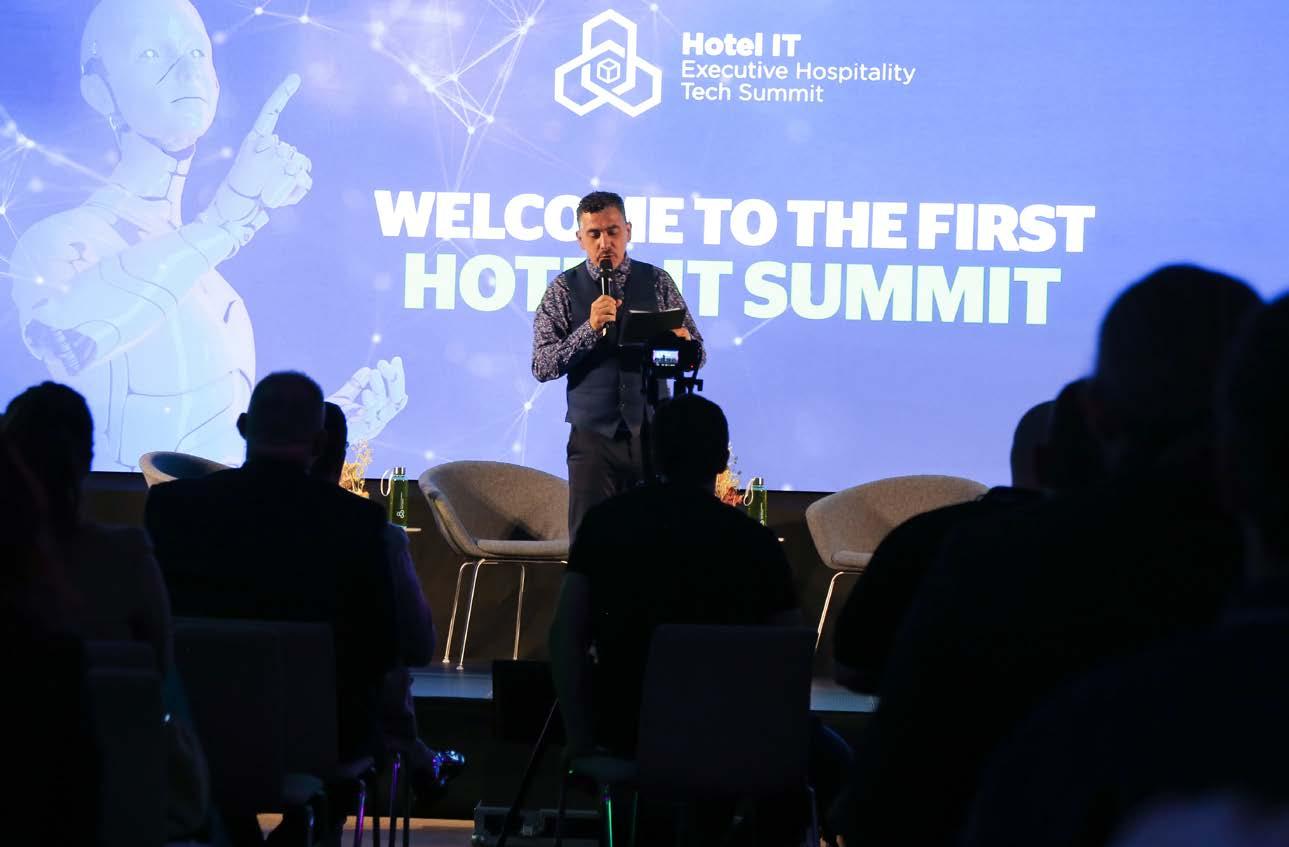
pathways. Hotels should also invest in sending staff abroad — not just for training, but to travel, absorb ideas, and experience how things are done elsewhere. Sometimes the biggest shift comes just from seeing what’s possible.
Conferences and professional events play an important role here too. They’re not just about networking — they’re about learning, exchanging knowledge, and getting inspired. That’s part of the reason why we created the Hotel Summit in the first place — to help our region grow in the right direction, together.
See you at the Hotel Summit!

“Our
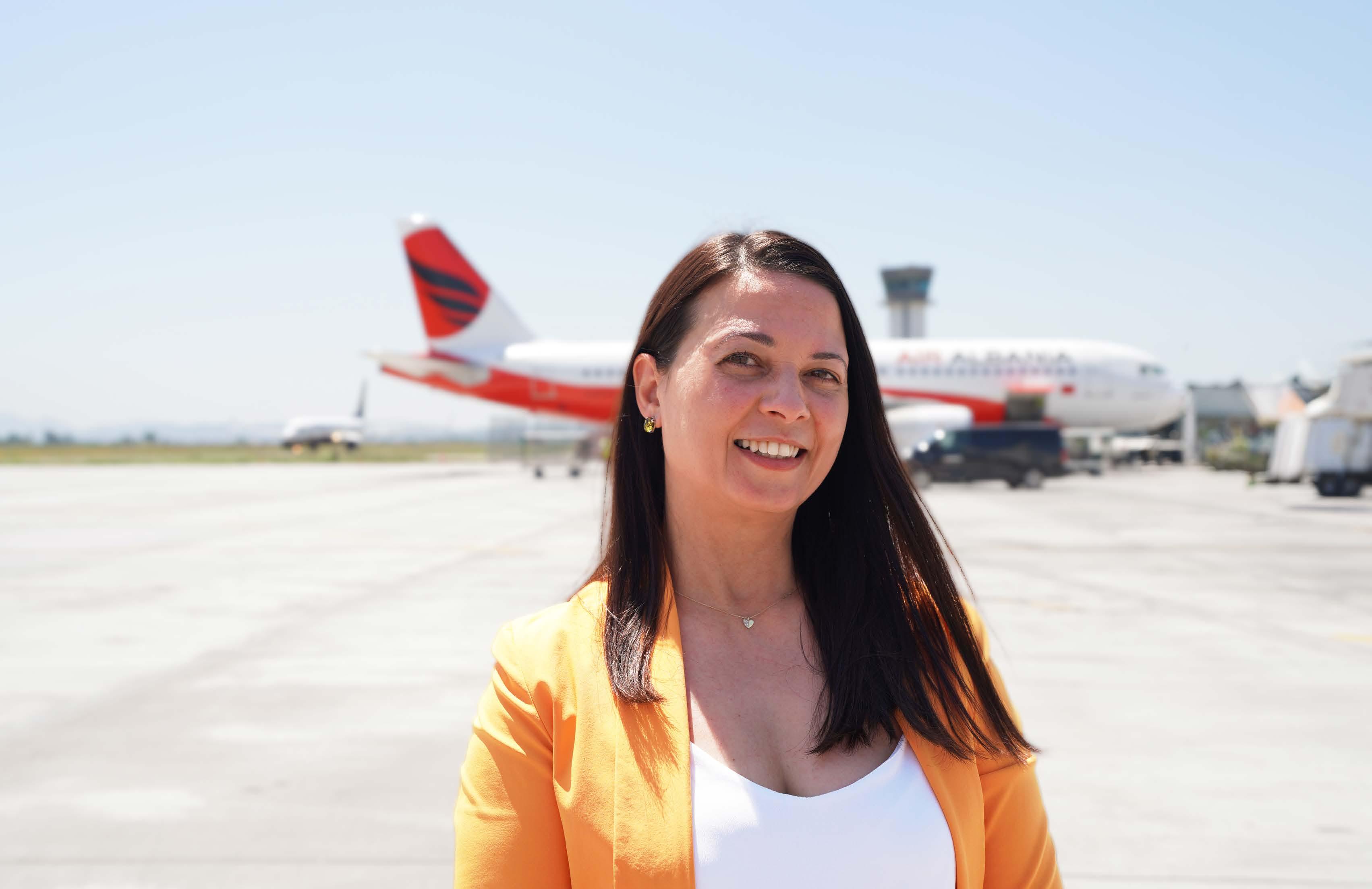
With her cute smile, which is always on her face, she demonstrates unique approaches to customer loyalty and partnerships. She has helped keep Tirana International Airport (TIA) moving ahead perpetually. Manjola Kaso, TIA’s Aviation Business Development & Marketing Director tells us what TIA is doing to continually reinvent itself while maintaining its constant popularity, interest and charm.
Full interview below:

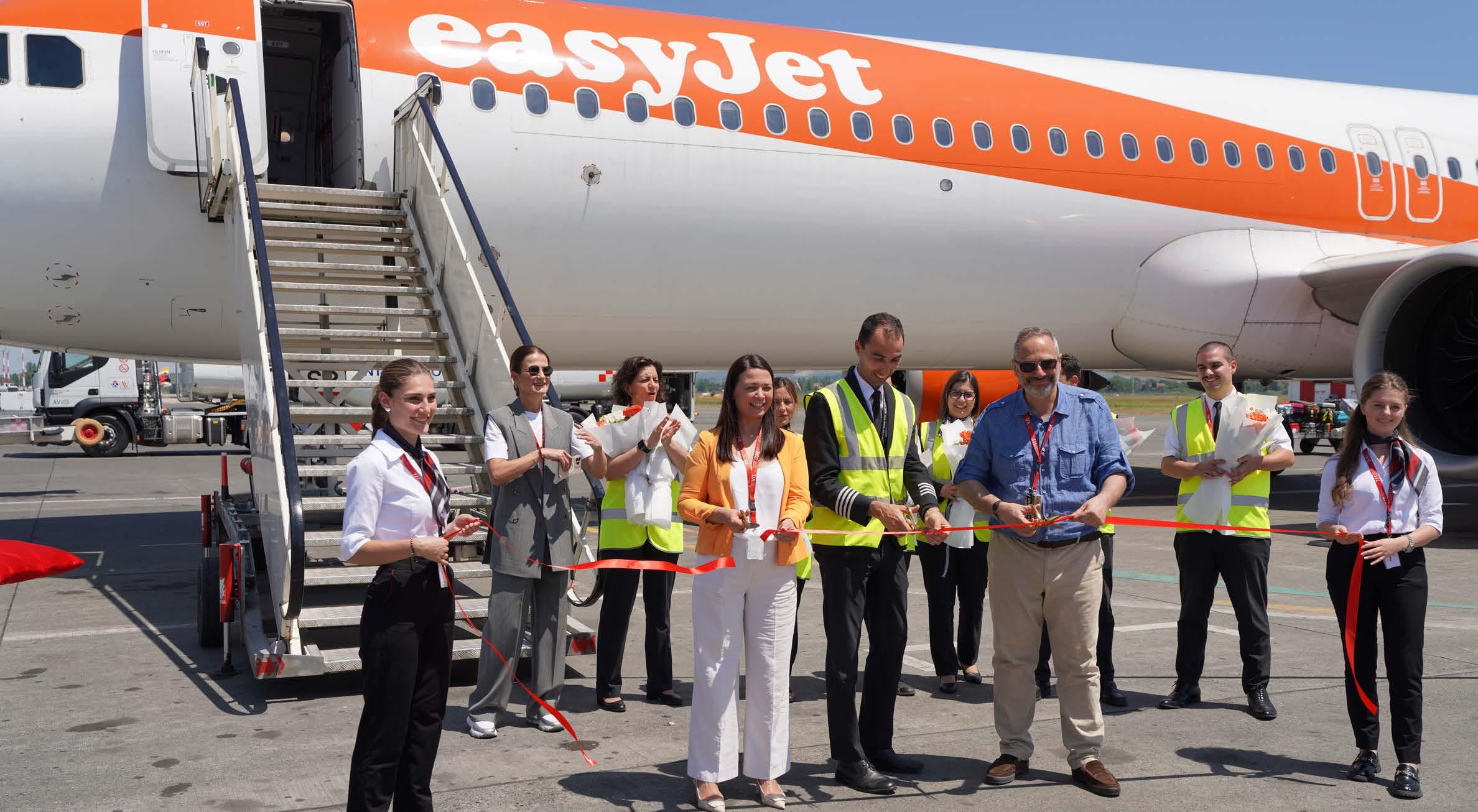
country. In the last 3 years, with the support of our sole shareholder Kastrati Group, we have completed projects in all sides of the airport for more than 100 million Euro.
The investments were in airside capacity (additional stands, improved taxiway system, extended runway), in terminal capacity (bigger departing and arriving areas, commercial offers, parking spaces), digitalization and automation (new passport control eGates, next generation C3 scanners, etc.); all aimed to allow our team to process more passengers efficiently and effectively, but also to allow for more airline partners to fly in Tirana and offer their services with the best quality possible. Recently the new façade came to life, which is a blend of modern architecture and traditional motifs.
Albania has become a magnet when it comes to tourism. Could you enlighten us on the airport’s distinctive attributes, to such achievement?
Dear Manjola, thank you for taking the time to join us. Tirana International Airport (TIA) was built between 1955-1957. What is your opinion on this journey, initiated so many years ago, and on the journey that led to your current standing?
An ambitious state of the art project
The airport was constructed on 1957. At the time it was a just a strip of land with only
a few flights monthly, showcasing also the philosophy and the openness level of the country. Then there have been several key moments like the Hochtief presence and then the China Everbright LTD until 2020, when it was taken over by Kastrati Group.
I think the development of every project is highly related with the vision that the leading team has set upon. Our key mission at Tirana Airport is worldwide connectivity
and contribution to the economic growth of the country; all by showcasing our traditional values such as hospitality.
The airport today is certainly an example of how investment combined with expertise can bring enormous contribution to the economy. We have an infrastructure that fully matches modern traveling requirements and not only, but it is transformed into a landmark for the
The role of the airport in tourism is undisputable. And the core of this it’s enriched air connectivity. In a recent report of ACI (Airport Council International), Albania ranks on top of the list for increased air connectivity with +56% vs 2019, the pre pandemic year. The average of Europe in this indicator is -9%. Studies show that a 10% increase in connectivity automatically translates in 0.5% growth in GDP. This reflects the efforts that TIA has done to make Albania reachable from every point in the world. Currently we are connected to more than 117 direct destinations via 50 Partner Airlines. Also, the frequency of flights is strongly increased, providing visitors with many opportunities. For example, we have more than 8 daily flights to London, 6 daily
flights to Rome, 2 daily to Frankfurt, etc. Along with direct connections, our partner airlines offer indirect connections to another 940 destinations all over the world. This is done via major hubs, like Vienna, Istanbul, Rome, Warsaw, Frankfurt, London
Another aspect upon reachability is affordability; flying from and to Albania can be done via Low-Cost Airlines or legacy ones with full service. This means more affordable prices for every class of passengers. Both above elements have diversified the market share of foreign visitors to Albania; few years ago, those were mainly from Kosovo driving, but today we see tripled number of visitors from the Middle East and doubled from Europe and Northern America.
Remarkably, the actual passenger numbers at TIA are growing persistently. Could you share insights into the volume of flights during the summer season in particular? Is this demand subject to
seasonal fluctuations, or does it remain consistent throughout the summer and winter months?
Tirana International Airport has undergone a remarkable transformation between 2019 and 2025, both in terms of passenger volume and air connectivity. In 2019, TIA served 3.34 million passengers, offered access to 58 destinations, and was served by 18 scheduled and 19 charter airlines. By 2025, the number of destinations more than doubled to 117 expanding not only in major cities in Europe, but also in Middle East. Passenger traffic surged to over 10.7 million in 2024, reflecting a 221% increase within just few years. We were referred to as the fasted growing Airport in Europe. This scale of growth places TIA among the few airports in Europe to not only fully recover from the pandemic, but to significantly outperform its pre-2019 benchmarks-solidifying Albania’s position as a rising force in regional aviation

industry. Like in every industry, there is some seasonality, especially in the winter season, but Albania has a lot to offer also in the cold weather. The trends are always in growth; even in Q1 2025 we saw a 7% increase in passenger numbers vs the year before. We make sure that our portfolio of destinations stays relevant year around, so that travelers can always have an affordable escape for winter holiday, an attractive city break or options for visiting friends and family.
Could you provide us with an overview of the factors contributing to the higher number of passengers and what kind of services do you extend to your passengers that sets you apart?
First of all, Albania is definitely in the spotlight. During the last ITB in Berlin, Albania was the Host Country and we must say that after the opening ceremony, everybody expressed their interest in visiting Albania. On the other side there is a huge focus in the country toward tourism development, and not only by in promoting Albania as a hidden gem. There are currently plans to invest up to 5 billion Euro in infrastructure for tourism development; this includes not only accommodation and leisure capacities, but also road infrastructure and other enablers to enhance connectivity.
From our side, TIA has implemented an ambitious strategy as a guiding framework for transformation. Built on three core pillars-expansion of the destinations portfolio, digital and operational excellence, and infrastructure modernization with sustainability at its core-the strategy has led directly to unprecedented growth. In close partnership with key aviation stakeholders, TIA amplified Albania’s visibility on the global stage, unlocking significant new demand from underpenetrated source markets.
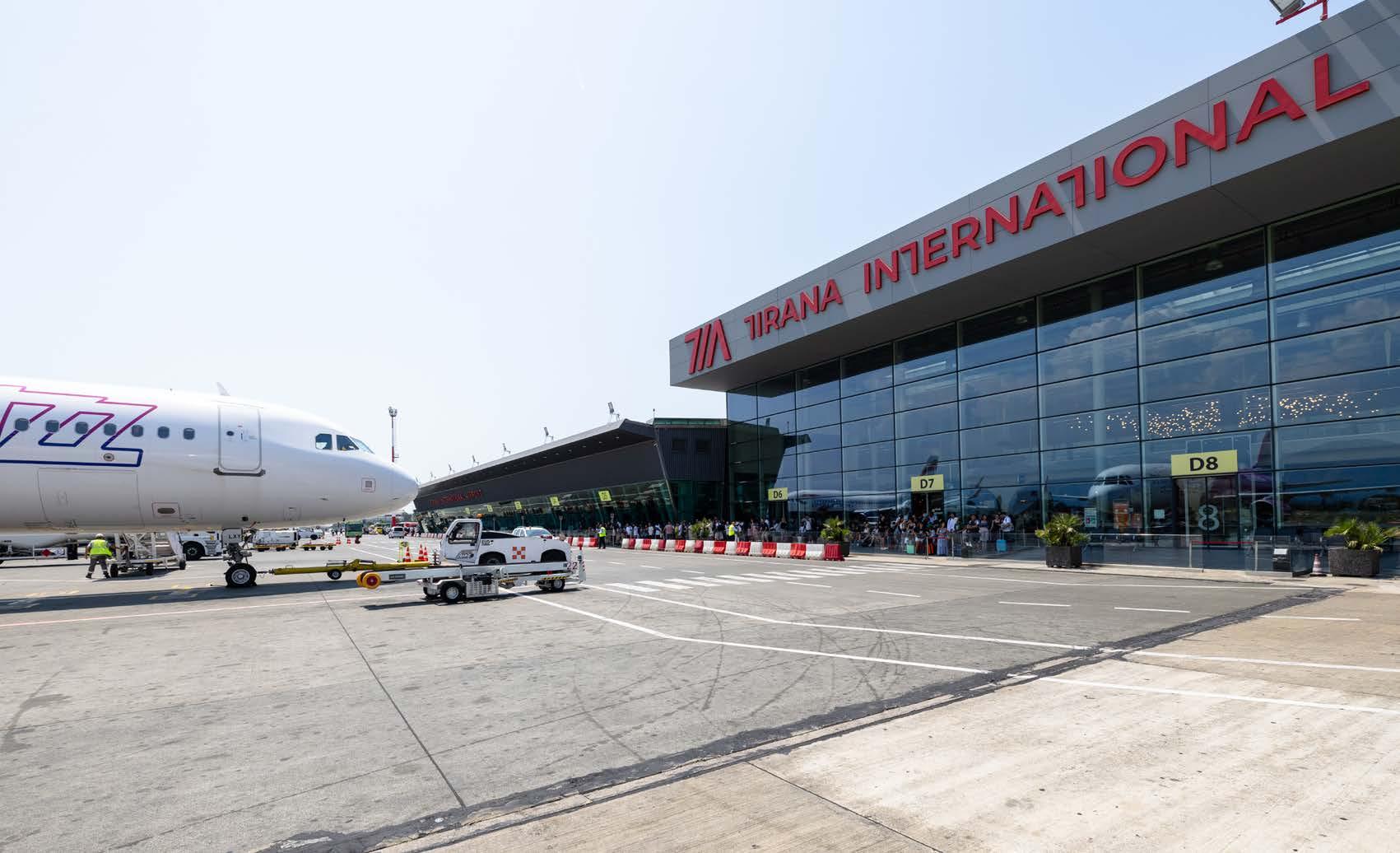
Can you elaborate on the new airline partnerships and new destinations?
This year, we are very happy to have enriched our portfolio with new partner Airlines and new destinations. Air Baltic after a very successful season in 2024 with Riga, this year added Tallinn and Vilnius, ensuring access to the whole Baltic Region, an untapped market before. Easy Jet will fly Lisbon logging our first ever direct connection to Portugal. Vueling, the Spanish giant starts flights to Barcelona early July. Then we have Nantes and Bordeaux, new French destinations operated by Transavia France. We have had some expansion in the Middle East with ElAl that started flights from and to Tel Aviv, 5 times per week and very soon we expect direct flight from Jordan. All these new destinations and partners reflect Tirana International Airport ambition to expand connectivity and expose Albania to the World.
What are the measures the TIA has taken to mitigate the carbon footprint? What about the measures to facilitate sustainable aviation fuel for partner airlines?
Sustainability is at the core of TIA development. We are fully committed to the challenges that the aviation industry meets toward the environment. Just early this year, TIA stepped up to the third level of Carbon Accreditation, namely Optimization which is the only institutionally-endorsed, global carbon management certification program for airports. Level 3 means that Tirana International Airport does not limit its efforts for carbon reduction only to its operations, but engages also third parties and stakeholders in doing so. Our environmental management team has mapped a list of
58 stakeholders that directly or indirectly affect the carbon footprint and is actively engaging with them to further reduction. Our main initiatives relate to transition to 100% LED lighting, transition to eGSE (electric Ground Service Equipment), and the launch of a 49MW solar farm project that elevates our environmental leadership.
Getting into the strategic roadmap of TIA, how do you position TIA in the aviation scene for the next 5-10 years?
Tirana International Airport has become a regional hub. In the Western Balkan, TIA is now the airport with the biggest number of destinations and larger traffic volumes and all this has been achieved in the last 4 years since Kastrati Group took over the airport concession. Our vision is to grow even further. Since we position ourselves as focal point for the whole region, we also have a plan to back this vision up. It is an ambitious plan that will enable us to reach 15 million passengers and rank Tirana international Airport among top 50 airports in Europe. Infrastructure wide, there is a large capital investment ongoing, which will transform the terminal in a state-ofthe-art facility and, most importantly, will generate enough green and sustainable energy to cover all current and future needs towards our NetZero goals. In terms of connectivity expansion, beside North America, we see a great potential in the Middle East and the Central Asia regions. Eastern Europe is also very interesting and, apart from partnership with airlines, we are building bridges among tour operators and tourism boards to connect our respective countries. Today, TIA stands as a trusted anchor for regional connectivity, a model of sustainable infrastructure development, and a customer-centric leader. By delivering beyond expectations across infrastructure, operations, human capital, and environmental stewardship, Tirana
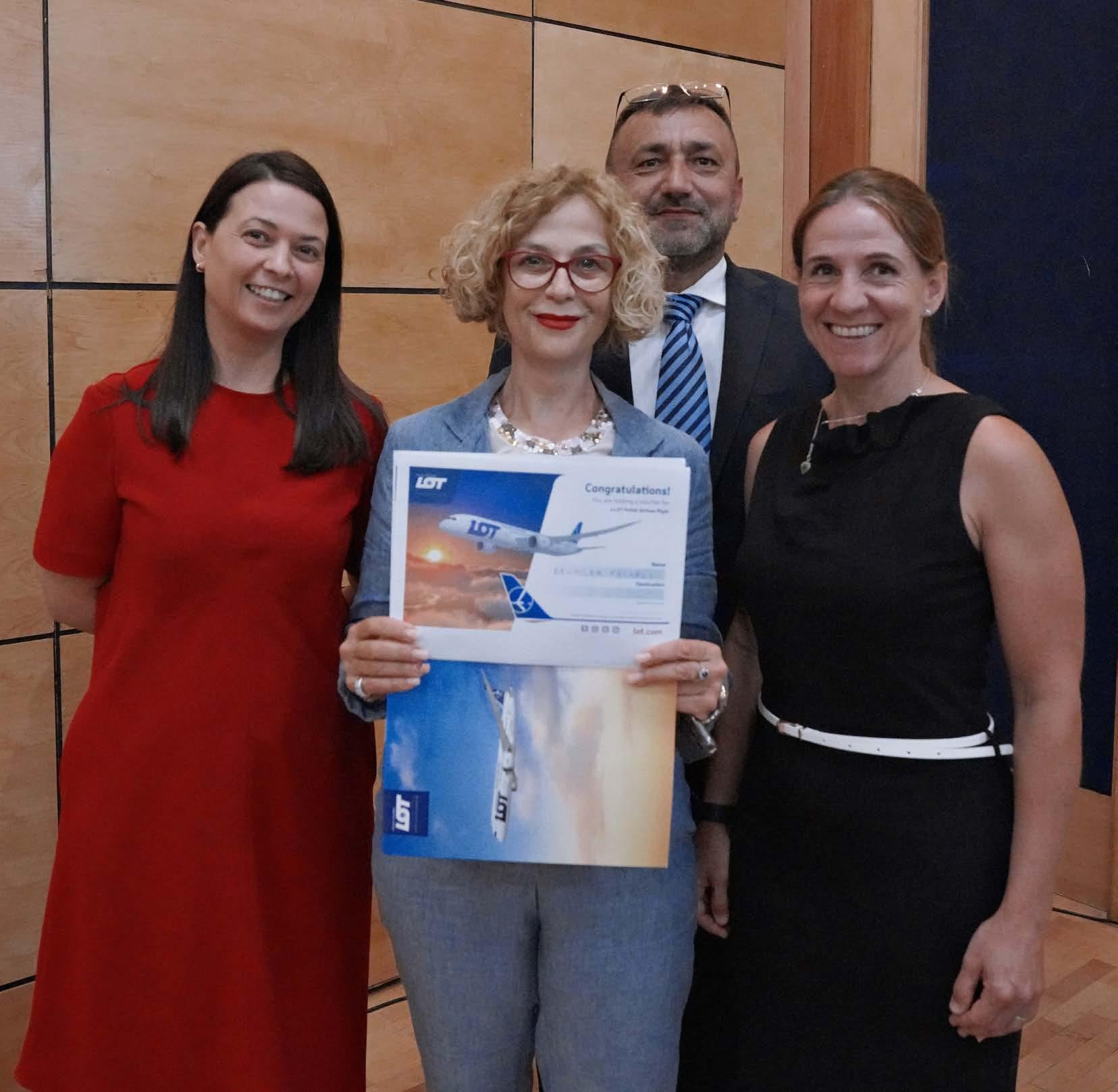
International Airport has firmly positioned itself as a benchmark of excellence in the global airport community.
R.Hoxha:
Today, we are joined by Mrs. Krenare Muja Sheqeraku, the managing partner of Muja Law Firm and an expert in mediation and conflict resolution in Albania. We will discuss how mediation is transforming the business and professional landscape, its benefits and how companies can leverage it for better dispute resolution. Thank you for being here.
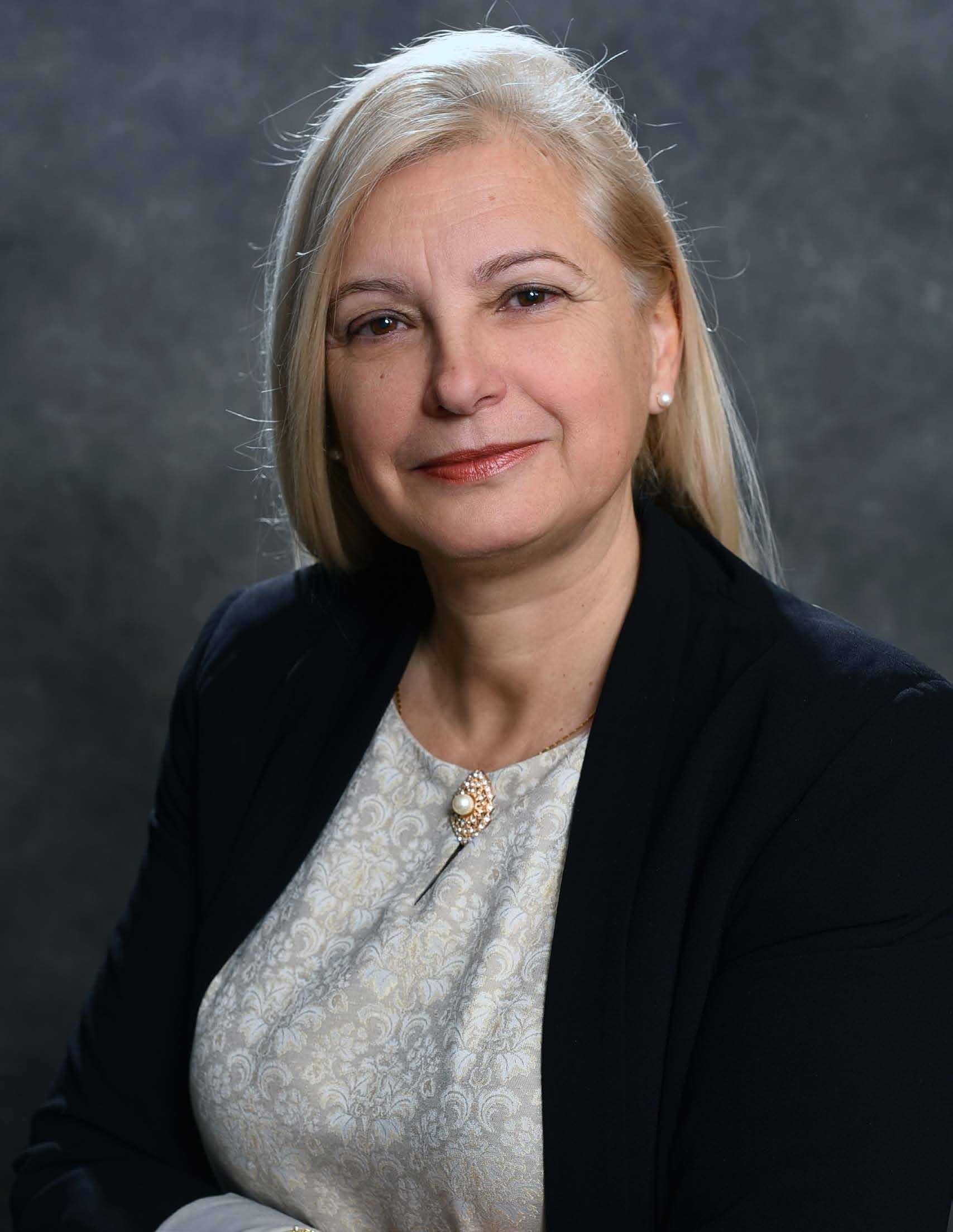
Krenare Muja Sheqeraku: Thank you for the opportunity. Indeed, mediation is an important tool, especially for businesses looking to resolve disputes efficiently.
R.Hoxha: Let’s start with the basics. How does mediation differ from traditional court litigation, especially for businesses?
Krenare Muja Sheqeraku: Well, mediation is a structured negotiation process led by a neutral mediator who helps disputing parties reach a voluntary agreement. Unlike court litigation, which is often lengthy, costly and adversarial, mediation allows businesses to settle disputes privately, quickly and in a way that preserves professional relationships. We have experienced such results first-hand in our practice and we can surely say that it’s a win-win approach rather than a zero-sum game.
R.Hoxha: What specific types of business disputes are best suited for mediation?
Krenare Muja Sheqeraku: Mediation is particularly effective for commercial disputes, including contract disagreements,
partnership conflicts, intellectual property issues, real estate matters and disputes with suppliers or clients. We have come to the understanding that it is also very useful for workplace conflicts, helping resolve employee disputes without damaging company culture.
R.Hoxha: From a legal perspective, what are the key advantages of mediation for businesses?
Krenare Muja Sheqeraku: Legally, mediation offers flexibility. Parties can craft solutions tailored to their needs rather than being bound by rigid legal precedents. It also keeps disputes confidential, protecting a company’s reputation. Additionally, mediation agreements are legally binding in Albania.
R.Hoxha: What about the financial impact? How does mediation help companies save money?
Krenare Muja Sheqeraku: Specially lately in Albania, we have seen that court cases can drag on for years, even decades,
“A typical mediation session may take days or weeks rather than years, or decades, allowing businesses to focus on growth rather than prolonged legal battles,” Mrs. Krenare Muja Sheqeraku says.


“Meditation is a win-win approach rather than a zero-sum game,” Mrs. Krenare Muja Sheqeraku states in this interview.
accumulating high legal fees and operational disruptions. On the other hand, mediation significantly reduces these costs. A typical mediation session may take days or weeks rather than years, or decades, allowing businesses to focus on growth rather than prolonged legal battles. Also, the cost of hiring a mediator is usually much lower than prolonged attorney fees.
R.Hoxha: But, how can businesses integrate mediation into their corporate dispute resolution strategies?
Krenare Muja Sheqeraku: One way is that companies can include mediation clauses in their contracts, making it the first step in dispute resolution before litigation. Businesses can also train HR and legal teams in mediation principles to handle internal disputes proactively. Some companies even hire in-house mediators or work with professional mediation services to resolve conflicts efficiently.
R.Hoxha: Interesting. How does mediation affect business relationships in the long term?
Krenare Muja Sheqeraku: Unlike litigation, which often damages professional relationships, mediation fosters collaboration. Businesses that use mediation can maintain strong partnerships with suppliers, customers and employees, ensuring long-term stability and trust.
R.Hoxha: Very insightful. However, what role do lawyers play in promoting mediation within the business community?
Krenare Muja Sheqeraku: Lawyers are essential in advising clients about mediation’s benefits and incorporating it into legal strategies. Forward-thinking lawyers now position themselves as problem solvers rather than just litigators, encouraging mediation as a faster and more beneficial alternative. We at Muja Law always like to think outside of the box and usually doing so

in Albania means exploring alternative dispute resolution methods like mediation.
R.Hoxha: What about business leaders? How can executives and managers use mediation effectively?
Krenare Muja Sheqeraku: Business leaders should view mediation as a strategic tool. By fostering a culture of negotiation and open communication, they can prevent conflicts from escalating. CEOs and managers should also be aware that unresolved disputes affect productivity, morale and company performance. Mediation provides a structured way to address these issues constructively.
R.Hoxha: What about Albania? How do you see mediation evolving in Albania’s business environment?
Krenare Muja Sheqeraku: Mediation is gaining traction in Albania, but more awareness and institutional support are needed. As Albania continues its economic development and integrates further with the EU, mediation will likely become a standard practice, especially for cross-border disputes. International companies already rely on
“Business leaders should view mediation as a strategic tool. By fostering a culture of negotiation and open communication, they can prevent conflicts from escalating. CEOs and managers should also be aware that unresolved disputes affect productivity, morale and company performance.“
mediation and Albanian businesses will benefit from adopting similar practices.
R.Hoxha: In this regard, what steps do you think should be taken to make mediation more widely used in business settings in Albania?
Krenare Muja Sheqeraku: Well, for starters businesses and legal professionals should receive more training on mediation. The government should continue improving the legal framework to strengthen mediation enforcement. Additionally, industry associations and chambers of commerce can play a key role in promoting mediation as a business-friendly dispute resolution tool.
R.Hoxha: Finally, what advice would you give to business professionals who have never considered mediation before?
Krenare Muja Sheqeraku: I would encourage them to explore mediation as a practical, cost-effective solution. Instead of seeing conflict as a threat, businesses should view it as an opportunity to negotiate better outcomes. Engaging in mediation early can prevent costly legal battles and preserve valuable business relationships. As mentioned earlier, we at Muja Law provide mediation services in our day-to-day work. Therefore, for anyone interested, please feel free to contact us at the following email address: contact@mujalaw.com or leave an appointment at the following www.mujalaw.com We will make sure to provide tailor made support for your needs.
R.Hoxha: Thank you for sharing your insights. This has been a very enlightening discussion.
Krenare Muja Sheqeraku: My pleasure. I appreciate the opportunity to highlight how mediation can benefit businesses in Albania.

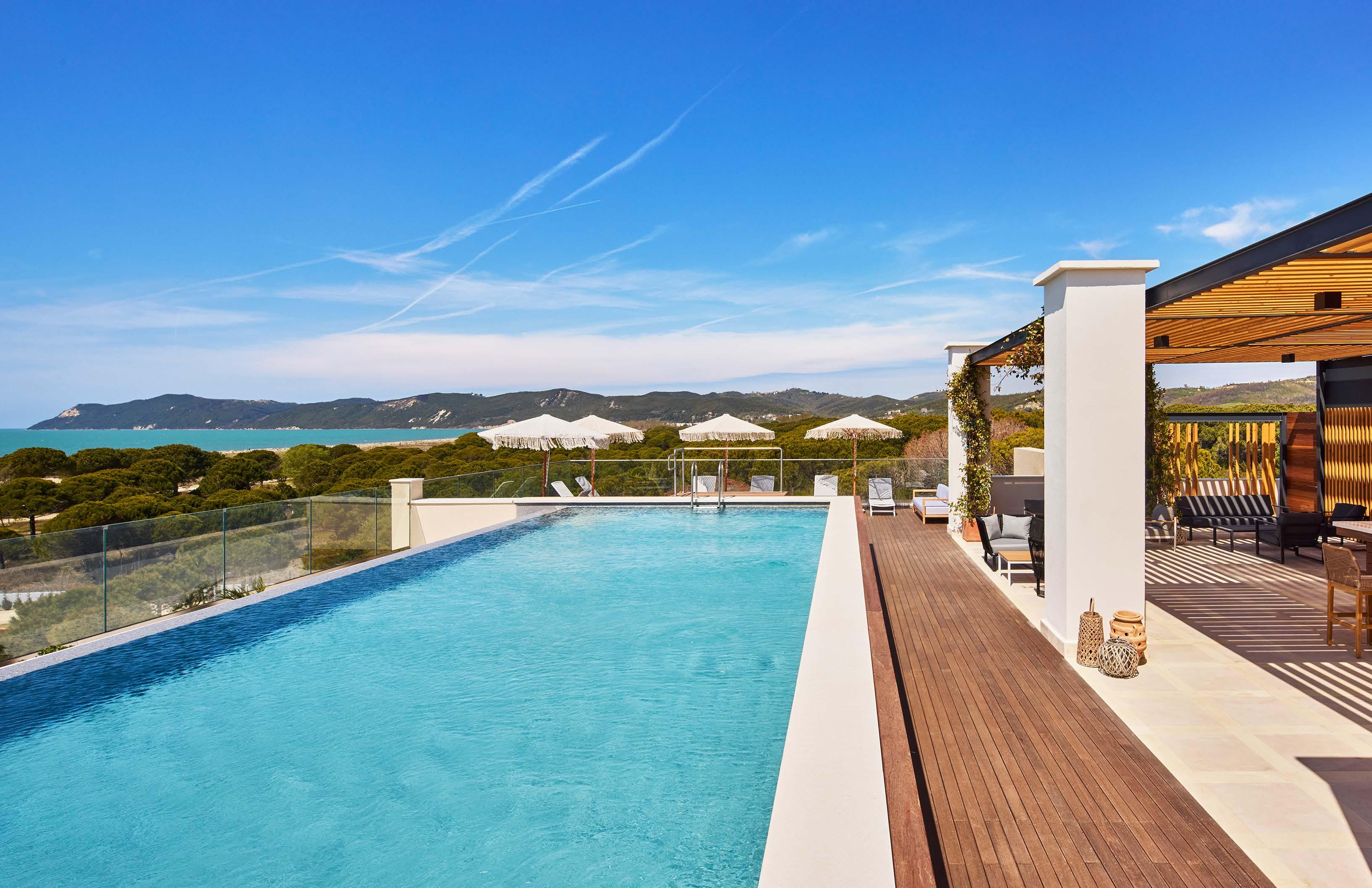
Meliá currently operates 7 hotels in Albania, offering over 1,000 rooms across the northern, central, and southern coastal regions.
By 2028, we plan to open several more properties under different brands, including a Gran Meliá and a ME by Meliá in the capital, Tirana; a Gran Meliá in Pogradec; The Meliá Collection in Palasa; and a ZEL hotel in Vlora, a brand cofounded with the iconic Rafael Nadal.
Meliá Hotels International was born in the 1950s in the cradle of Mediterranean tourism—Mallorca. After establishing a strong presence in the Balearic and Canary Islands, the company expanded to mainland Spain, and opened its first hotel in Bali (Indonesia) in the 1980’s. Meliá also became one of the pioneers in developing key Caribbean destinations such as Mexico, the Dominican Republic, and Cuba.
In the 1990s, our expansion continued into major European and American capitals, while we also strengthened our presence in Asia. Today, we operate hotels in China and across Southeast Asia—particularly in Vietnam, where with 26 properties, we are among the leading international hotel groups—alongside Thailand, Malaysia, and continued growth in Indonesia. Meliá is ranked among the “Top 25” largest international hotel companies and is the only one in the group that originated in the resort segment, where we continue to lead.
This deep expertise in leisure hospitality has also positioned us at the forefront of the fast-growing “bleisure” segment—urban hotels that blend business and leisure, offering experiences inspired by travel and enjoyment. In this expansion, our flagship brand, Meliá Hotels & Resorts has played a key role. With it, we entered the emerging and high-potential market of Albania, launching the iconic and spectacular Meliá Durres, a five-star hotel that has significantly boosted the destination and laid the foundation for an ambitious expansion. We now have 24 hotels in Albania, including those already operating and those in development.
By 2028, we plan to open several more

Meliá’s expertise in both leisure and urban tourism, combined with strong collaboration with local authorities and Albanian talent, has made Meliá Durres (the largest hotel in the country by room count) a true success story. In just two years, it has become the toprated resort in Albania and a benchmark for the national and international MICE segment, operating year-round.
In terms of quality, Meliá Durres ranks among the top 30 Meliá hotels worldwide in NPS (Net Promoter Score), and it continues to gain popularity across multiple source markets. The hotel has already welcomed guests from 33 nationalities, with Germany, Albania, and Spain leading the way.
Meliá’s outlook in Albania remains highly positive, with growth across all segments and significant development potential in areas such as the southern “Albanian Riviera.”
properties under different brands, including a Gran Meliá and a ME by Meliá in the capital, Tirana; a Gran Meliá in Pogradec; The Meliá Collection in Palasa; and a ZEL hotel in Vlora, a brand cofounded with the iconic Rafael Nadal.
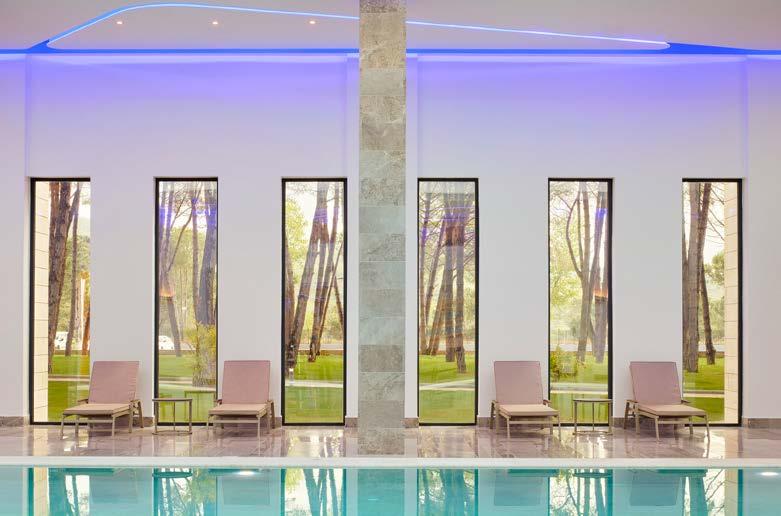

MELIÁ�
Meliá currently operates 7 hotels in Albania, offering over 1,000 rooms across the northern, central, and southern coastal regions. This expansion not only showcases Albania’s tourism potential on the global stage but also acts as a powerful driver for tourism investment. Seeing our hotels in operation has been the best “magnet” for attracting new investors, especially with several luxury brand hotels in our pipeline.



However, at Meliá, we don’t grow for growth’s sake—we grow in quality aiming to deliver not only economic returns but also social value through job creation, local economic stimulation, and enhanced destination reputation. We also strive to grow in sustainability ensuring our hotels have a positive social and environmental impact.
Fortunately, Albania has had the opportunity to learn from the experiences of other destinations, and we are confident in the country’s commitment to responsible and sustainable tourism development. As our corporate purpose states, “Enjoying travel, doing good,” Meliá Hotels International aspires to be a preferred partner in fostering sustainable tourism wherever we operate.
Aligned with global tourism trends, Meliá Hotels International’s outlook for 2025 is optimistic. In the first quarter, we recorded a 7.2% increase in RevPAR (Revenue per Available Room) across our Europe, Middle East & Africa region, with no signs of slowdown. Projections for the second and third quarters are also positive, supported by strong early commercial campaigns like Wonder Week and robust bookings. Notably, this summer we are seeing interest from new tour operators who are including Albania in their offerings for the first time.
Meliá’s commitment to Albania is unwavering. We are proud to be part of the country’s promising tourism future, supporting its sustainable and balanced development, and facing the challenges ahead together. Congratulations to Meliá Durres and its entire team!
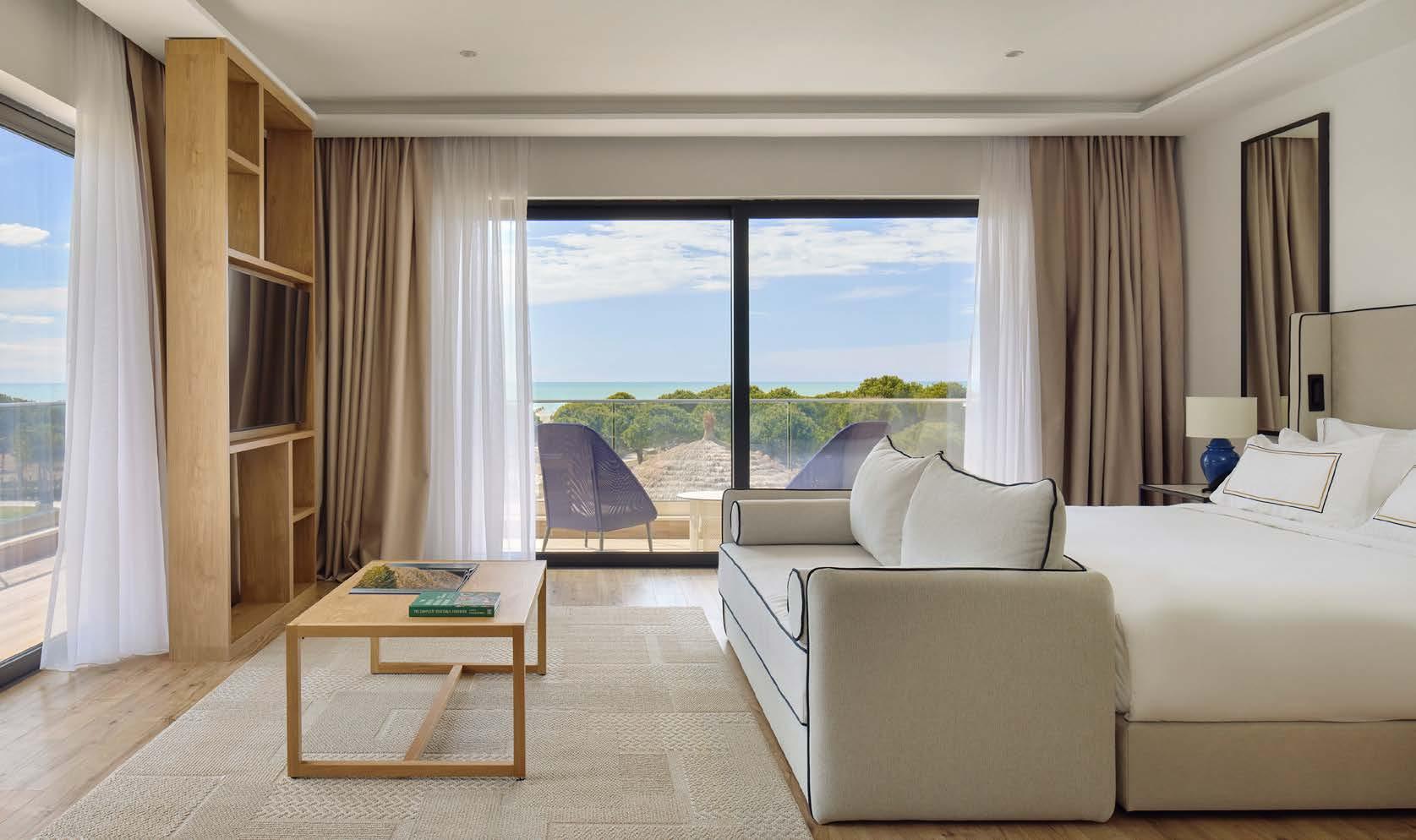

6 operating hotels and 14 hotels coming soon
In celebration of the second anniversary of our Meliá Dürres hotel, we are bringing our prestigious portfolio of hotel brands to Albania’s most promising destinations. Most Sustainable Hotel Group in Europe, according to the Standard & Poors Sustainability Year Book

Join me in this exciting journey! Love, Rudina Hoxha, Founder, Editor-in chief, Trailblazing Magazine

By Rudina Hoxha
In a conversation with TRAILBLAZING MAGAZINE the Founder and CEO of Azqira, Tom Teichmann explains what Azqira is and what solutions it offers. According to him, Azqira is “a kind of a brokerage platform that has hotel deals on one side and the retail investors on the other side.”
Azqira is a fintech platform that opens up access to global hospitality financing by connecting hotel owners with smart capital and offering individuals the opportunity to participate in curated hotel projects, starting from €500.
With a core focus on real estate in the hospitality industry, Azqira is changing the face of two industries at once and opening them up to a much wider community.
“So far, we have focused on tourism destinations with low seasonality: mainly Portugal, Italy, and Spain in Southern Europe, and Mexico, Costa Rica, and the Caribbean in North and Central America, as well as Thailand and Indonesia in Southeast Asia,” Teichmann stated.
He explains that they are focusing on existing, up-and-running hotels that are looking to join Azqira as a growth partner, “either because they want to refinance existing debt, expand their portfolio, or renovate to increase the ADR.”
Read the full interview below:
Can you explain what Azqira is and what solutions it offers, and who are they intended for?
Azqira is bridging two worlds: retail investors or retail communities and hotels. Hotel financing hasn’t been innovated ever. The only innovation that happens in hospitality is AI software to improve the booking process and robots doing room service, but nobody’s touching the financing side in hospitality.
There’s strong demand from hotel owners, while the general public still sees real estate in a very traditional way. There are other options, like REITs and crowdfunding platforms, which are doing a fantastic job, but there simply is no option for retail investors to get involved on the hospitality level.
So, at the core, we are kind of like a brokerage platform that has hotel deals on one side and the retail investors on the other side.
Essentially, the starting point is to provide hotels with an alternative financing solution. Giving hotels access to a community around the world and assisting them with marketing and branding solutions while providing retail investors access to global hotel opportunities.
But the opportunity is really to build this out, including a loyalty program, our own booking platform, going into full acquisitions of hotels, building our own operator hotel brand.

How did Azqira come into being? How did you come up with this smart idea?
Nawid Habib, my co-founder, and myself, we go way back. We’ve known each other for over 10 years now and we’ve been in multiple tech businesses and platforms together.
When COVID hit, we sat down and analyzed different markets, ranging from solar to precious metals to shipping, and eventually came back to hospitality. Crisis always creates windows of opportunity and opens options for change in industries.
After analyzing the market, we found out that, as I said before, hospitality financing has never been innovated. So, we started with a big market research focus on that topic, and then one thing led to another.
Ideas evolve over time. Businesses evolve over time. It started more as a test, and it just got a lot of traction. From senior people in the hospitality industry, and the feedback on the retail side was very positive. So, we pursued that, and one thing led to another, and now the vision is growing.

How do you feel as CEO of Azqira and how can you describe this experience?
I would say building a company is always a lot of stress and facing a lot of challenges, especially if you’re tapping into new markets where there’s no previous path or footprints to follow. Therefore, there’s a lot of trial and error.
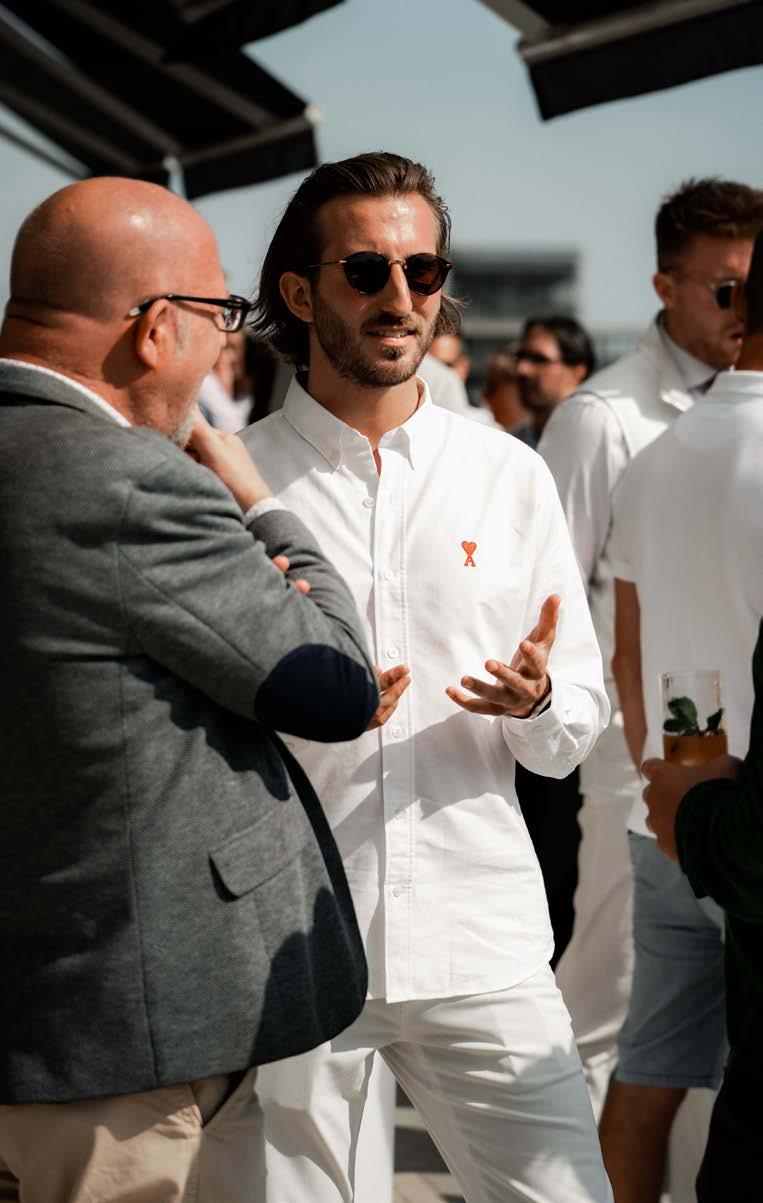
I feel blessed because I’m working with a fantastic team of very senior people. I feel great working on a big vision and on a company that can have a very positive impact on a lot of people’s lives.
Obviously, it’s great to work on something you believe in, where you’re passionate, and where the feedback from the people you’re building it for is very positive. It really inspires me to work with great professional people in their field.
“Azqira is bridging two worlds: retail investors and hotels. Hotel financing hasn’t been innovated ever.”

What has been the so far impact of Azqira in the tourism and hospitality sector and in what ways has Azqira helped the retail investors to access the real hospitality assets?
Not at all so far. I think we are still at an early — very advanced — idea stage, with serious traction from hotel partners and on the retail public side. But I would say in terms of impact, it’s zero to none at this stage.
We’re not an operational company yet. We’re preparing for the launch this year, and it’s a lot of work. I’d love to revisit that conversation in a year from now and answer the same question again.
What are some of the basic steps to follow for being part of Azqira?
We’re pretty public on the socials, mainly Instagram and LinkedIn. We also have a weekly newsletter where we inform our people, and a Telegram group where people follow the latest updates.
It really depends on what you’re looking for. We have a blog where we share monthly information. Some are market updates, some are Azqira-related updates.
So, some basic steps: check out Instagram, follow our newsletter, and you’ll be updated once the app goes live and when you can download it.
Can you elaborate one of Azqira’s mottos: Less pain, more gain/ Less general, more personal?
“Less pain, more gain” means we are simplifying the process by providing a tech platform that takes away a lot of the traditional financing barriers. “Less general, more personal” means that the people inside the app can create their own personalized and preferred portfolio. In comparison to, for example, REITs or when you buy shares from a company, where you’re not specifically part of a singular project but more of the whole company.
Albania is the new tourism destination of 2025. To what extent is Albania and the Balkans in the focus of Azqira?
Albania is not on top of our priority list at this stage, but we see a lot of potential and also money and interest moving into these markets. That’s also the reason why we are doing this interview, because we see future upside in the presence and connection to those markets.
What can you say about the demographics or hotel brands that have embraced Azqira?
So far, we have focused on tourism destinations with low seasonality: mainly Portugal, Italy, and Spain in Southern Europe, and Mexico, Costa Rica, and the Caribbean in North and Central America, as well as Thailand and Indonesia in Southeast Asia.
We are solely focusing on existing, up-and-running hotels that are looking to join Azqira as a growth partner, either because they want to refinance existing debt, expand their portfolio, or renovate to increase the ADR.
We are not bearing the development risk in the beginning, though we might consider that as a product expansion in the future.
What are the future projects of Azqira?
We will be starting with hotels in the countries I mentioned before. The expansion plans are rather opportunistic. We will give our members the choice to adjust to their personal preference, whether they want to stay within Europe or explore destinations with potentially higher returns, like Zanzibar, the Maldives, or Jamaica.
Initially, we want to focus on security and stability, including government, tax, and legal frameworks.
“LEAD taught me that effective leaders in the cultural sector must be both visionary artists and pragmatic institution builders.”
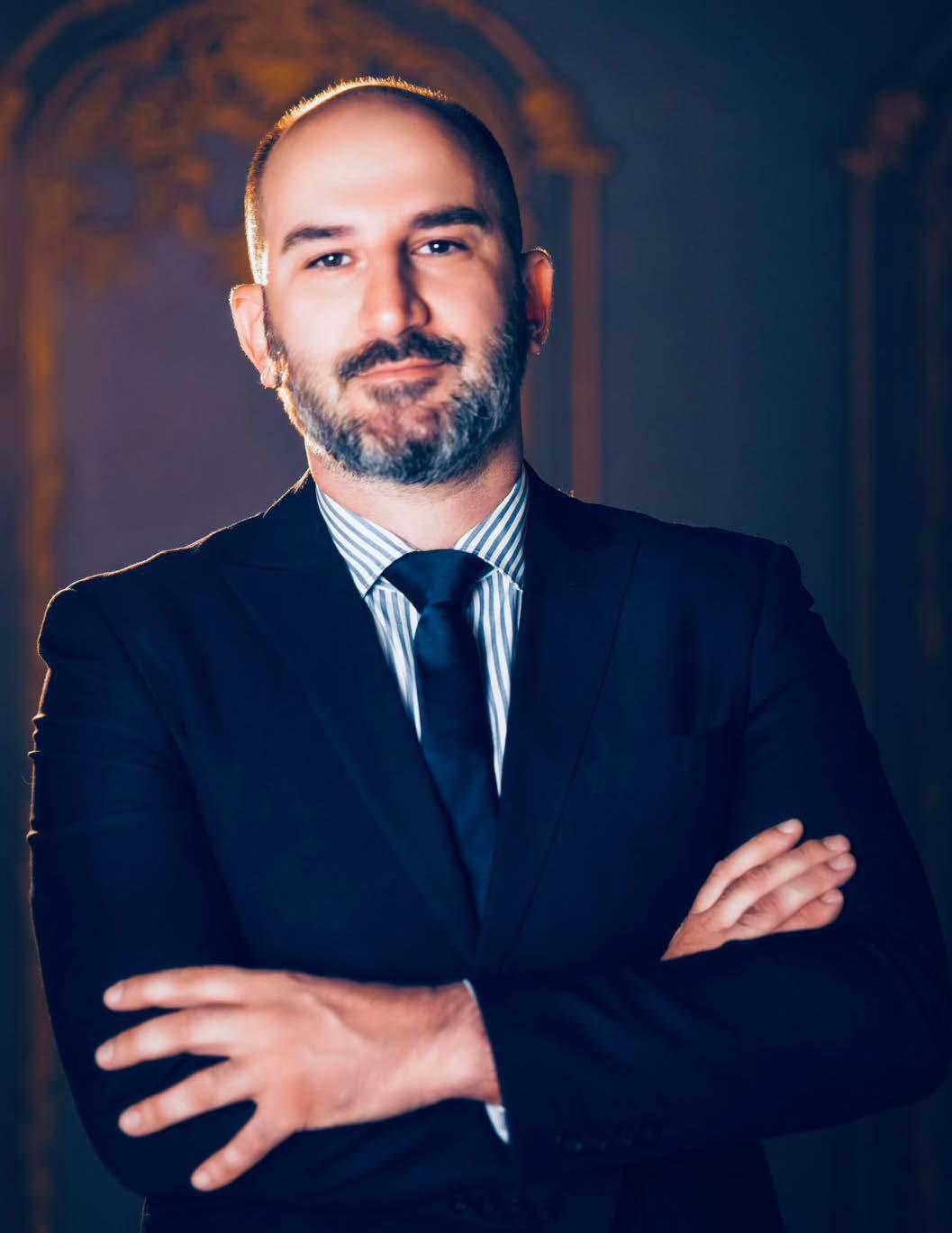
LEAD Albania ProgramStrengthened my Leadership Toolkit
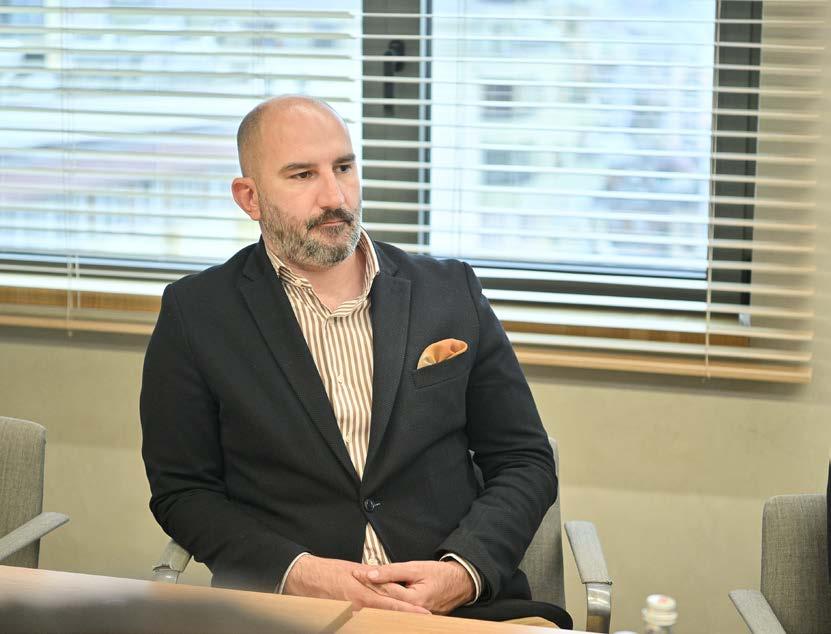
Aulon Naçi, a composer, pianist, and lecturer at the University of Arts in Tirana, embraced LEAD Albania Program after his studies in Italy and Belgium. He heard about the program from the LEAD alumni.
“What drew me most was LEAD’s unique approach to building not just leadership skills, but creating pathways for meaningful contribution to high-level policy and cultural development in Albania,” Aulon told TRAILBLAZING MAGAZINE.
This program also paved the ground for his career. Actually, he is the new director of the National Theatre of Opera, Ballet and Folk Ensemble.
“LEAD paved the path to my current position. More importantly, LEAD taught me how to influence systems from within - I now approach the Opera and Ballet directorship not just as an artistic leader, but as someone who can drive institutional change and elevate Albania’s cultural profile on the international stage,” Aulon states.
Full interview follows:
Your LEAD Albania Story
My journey with LEAD Albania began when I returned from my studies and teaching experiences in Udine and Brussels. As a composer, pianist, and lecturer at the University of Arts, I had heard about the program and its transformative impact on leadership development from previous LEAD cohorts. What drew me most was LEAD’s unique approach to building not just leadership skills, but creating pathways for meaningful contribution to high-level policy and cultural development in Albania. I saw it as an opportunity to bridge my artistic expertise with leadership capabilities that could drive real change in our cultural landscape.
The program’s multi-faceted approach significantly strengthened my leadership toolkit. The Harvard University component provided me with strategic thinking frameworks that I now apply to institutional management. The Brussels training with

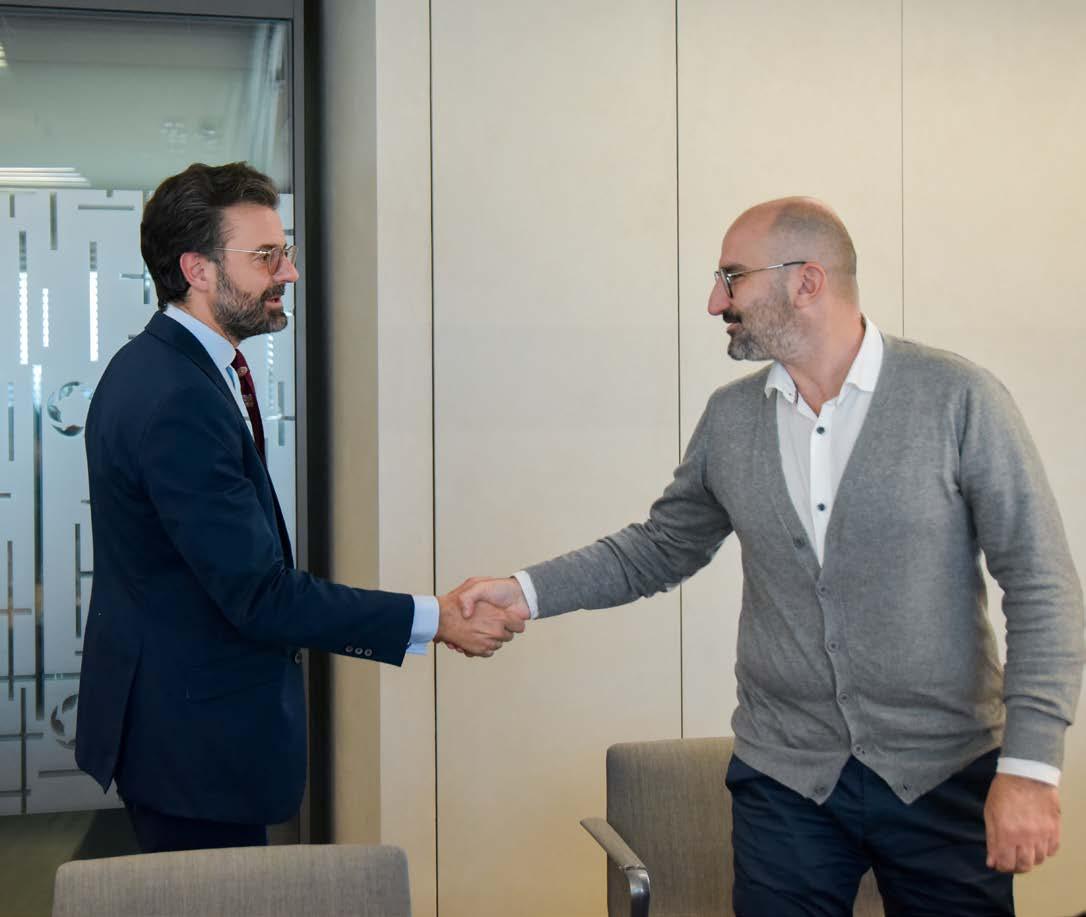


the Center for Creating Leadership was particularly valuable in developing collaborative leadership stylesessential when working with diverse artistic teams. The direct interactions with Albanian leaders gave me insights into navigating complex political and cultural dynamics. These experiences taught me to think beyond artistic vision to include stakeholder management, strategic communication, and systemic change-making.
My most profound takeaway was understanding that authentic leadership requires unwavering integrity combined with adaptive skill sets. LEAD taught me that effective leaders in the cultural sector must be both visionary artists and pragmatic institution builders. The program showed me how to maintain artistic integrity while developing the political acumen necessary to advocate for the arts at the highest levels. This balance between creative authenticity and strategic leadership has become the cornerstone of my approach.
LEAD paved the path to my current position. The program’s network connected me with high-level representatives who recognized my potential, while the leadership training strengthened my skills to demonstrate my capabilities effectively. More importantly, LEAD taught me how to influence systems from within - I now approach the Opera and Ballet directorship not just as an artistic leader, but as someone who can drive institutional change and elevate Albania’s cultural profile on the international stage.
As Director of the Theatre of Opera and Ballet and Folk Ensemble, I’m essentially orchestrating a cultural ecosystem. What I love most is the opportunity to blend artistic excellence with institutional innovation. Currently, I’m working on several exciting projects: developing
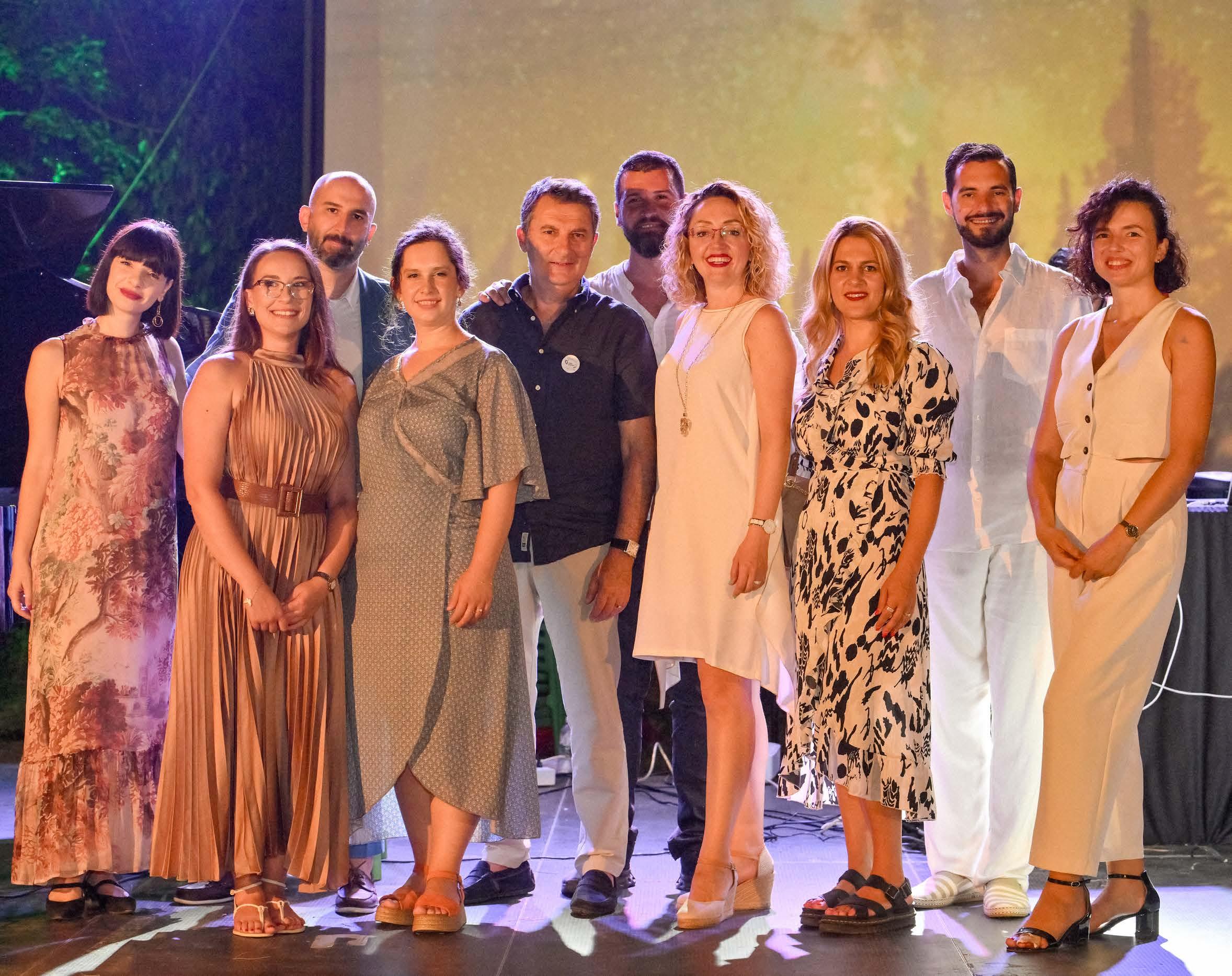
international co-productions that showcase Albanian talent globally, implementing educational programs that make opera accessible to younger audiences, and modernizing our repertoire while respecting classical traditions. Each day brings the challenge of balancing creative vision with operational excellence - it’s like conducting a complex symphony where every note matters.
My advice would be to approach LEAD with intellectual humility and genuine commitment to service. Don’t apply just for the prestige or networking opportunities - apply because you have a vision for positive change and you’re willing to do the hard work of personal travnsformation. Be prepared to challenge your assumptions about leadership and be open to feedback. Most importantly, remember that LEAD isn’t just about building your career - it’s about building your capacity to serve Albania’s future. Come with specific ideas about how you want to contribute, but remain flexible about how those contributions might evolve.
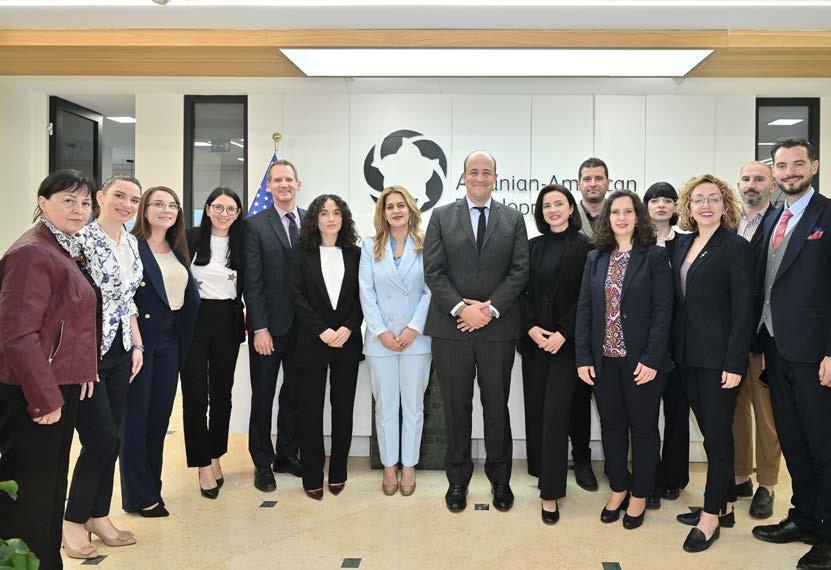
By Rudina Hoxha
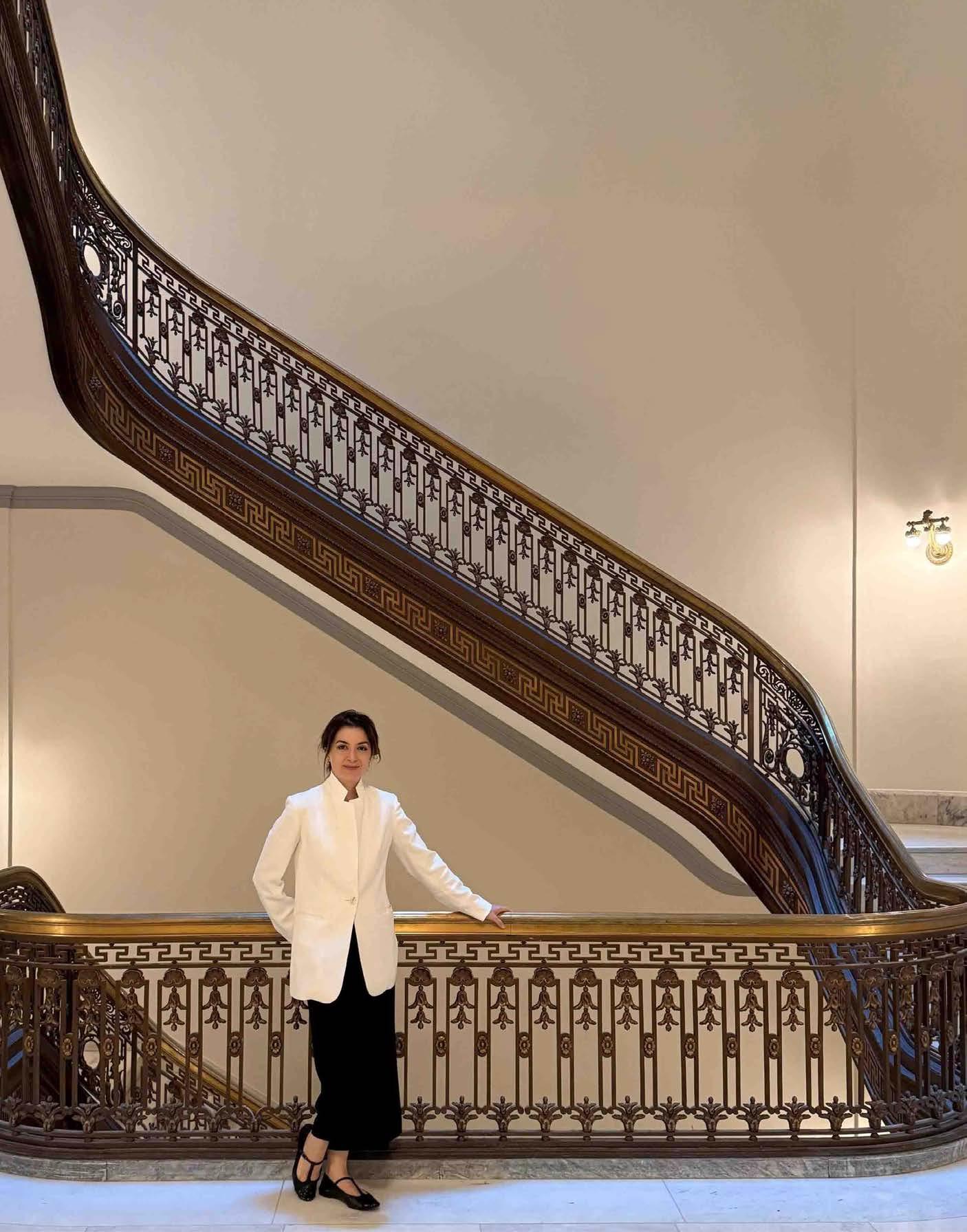

Dr.Arch. Anisa Fagu Qorri, Adviser to the Minister of State for Local Government, is a current LEAD Fellow. The lady, inspired by the very historical part of her birthplace- Elbasan city, graduated with the highest distinction in Architecture from the Polytechnic University of Tirana in 2008. Fond of urban planning since early in her life, Anisa started to work actively at the National Territorial Planning Agency as well as teaching Urban and
Architectural Legislation as a part-time lecturer at the Faculty of Architecture and Urban Planning. Her career climaxed with her involvement in the drafting of Shqipëria 2030, the first National Territorial Plan of the country and The Metabolism of Albania, a groundbreaking study led by the National Territorial Planning Agency, the Ministry of Urban Development, and the International Architecture Biennale of Rotterdam. To top it all, with her enrollment
at LEAD Albania Program (2024-2025).
“LEAD is one of the most prestigious and high-level professional programs in the country, offering midcareer and early-career professionals the chance to serve the public with their expertise in key areas of national development,” she told TRAILBLAZING MAGAZINE.
Furthermore, in this interview, she shares her thoughts and takeaways from this program which gave to her “the opportunity to be part of strategic discussions and contribute to initiatives that reflect the values of integrated planning, inclusive governance, and knowledge-based development.”

Full interview follows:
Thank you for being with us. Please tell us about your career path, and how you reached where you are today. Thank you for the invitation—it’s a pleasure to share my journey, which has been shaped by both professional dedication and personal passion.
I graduated with the highest distinction in Architecture from the Polytechnic University of Tirana in 2008, ranking at the top of my academic year. Although I didn’t specialize in urban planning, I was always deeply fascinated by it. For me, urbanism is not only about transforming physical space—it’s about shaping society, creating a sense of belonging, and imagining the invisible structure of urban life.
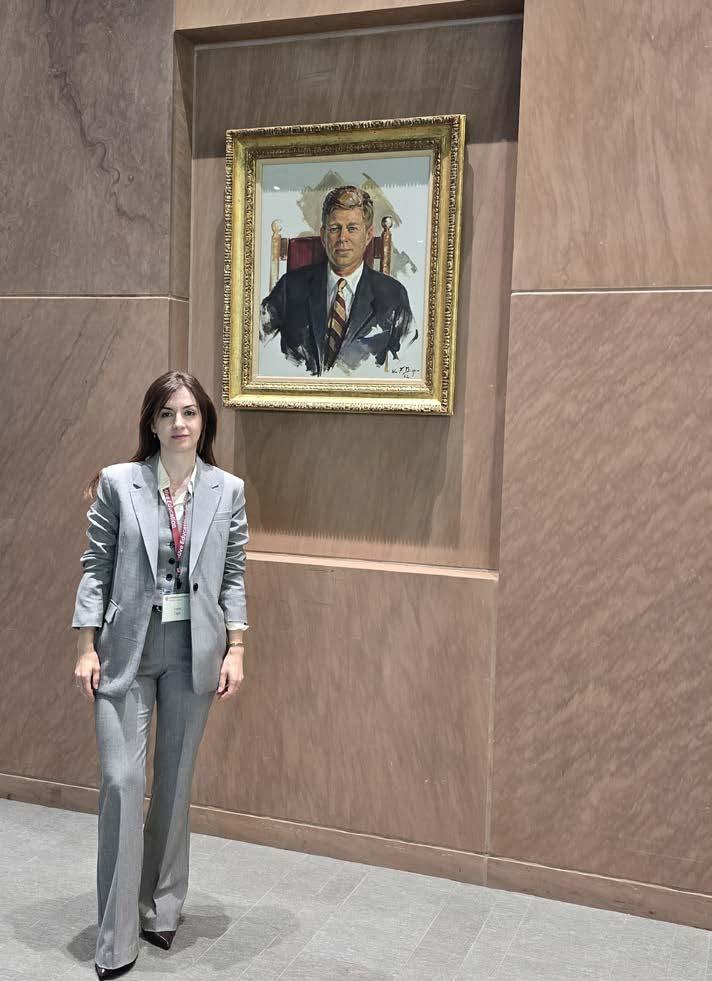
I grew up in a traditional and historic neighborhood—Kala in Elbasan—surrounded by Ottoman houses, cobbled streets, church bells, and mosque minarets. That environment inspired me to dream of designing neighborhoods that could transmit that same feeling of home and rootedness.
After a short period in the private sector, I transitioned to the only public planning institution at a time (the National Territorial Planning Agency (AKPT/NTPA) when Albania was undergoing pivotal legal reforms in the fields of architecture and urbanism. I was fortunate to be part of several working groups that contributed to these important institutional advancements. The exposure to legal and regulatory frameworks sparked my interest in urban law and led me to
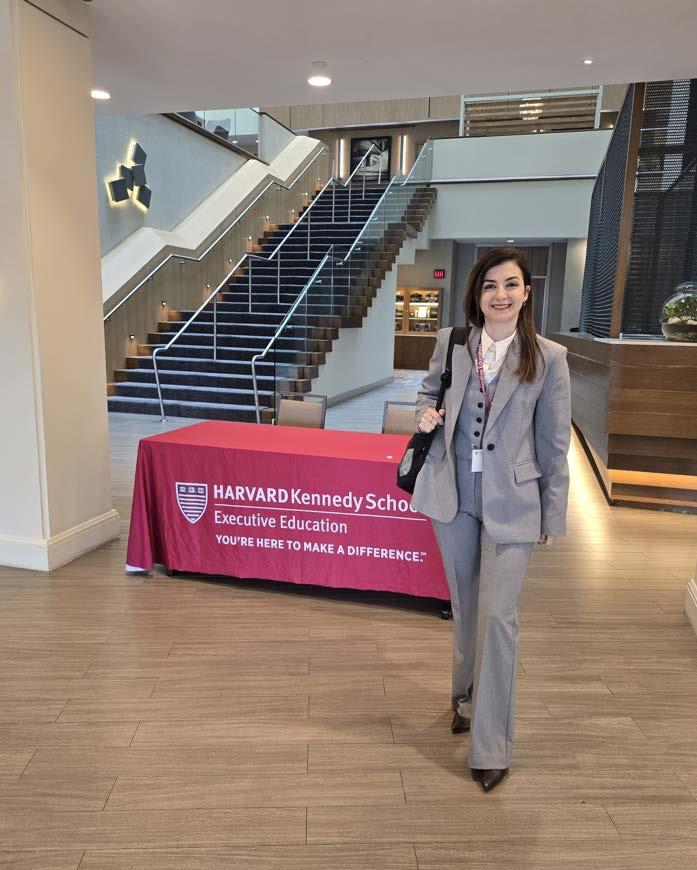
begin teaching Urban and Architectural Legislation as a part-time lecturer at the Faculty of Architecture and Urban Planning, where I had once studied.
The period between 2013 and 2016 marked a major turning point in my career. Following structural reforms and the growing national focus on integrated planning, I became actively involved in several strategic research initiatives—most notably The Metabolism of Albania, a groundbreaking study led by the National Territorial Planning Agency, the Ministry of Urban Development, and the International Architecture Biennale of Rotterdam.
This process culminated in the drafting of Shqipëria 2030 the first National Territorial Plan of the country. I was proud to serve as a core member of the drafting team— working closely with a multidisciplinary group of experts to envision and articulate a sustainable and coherent spatial development strategy for Albania. It remains one of the most meaningful and formative experiences in my professional path.
Following this, and after several other significant engagements within the NTPA, I joined the technical team responsible for preparing the new Regional Development Plans for all of Albania’s regions. This ambitious program, initially funded by the Swiss Cooperation and later supported by the Fondi Shqiptar i Zhvillimt (FSHZH), allowed me to deepen my focus on regional economic development and to expand upon the work I had been doing at the national level.
Working on regional planning was an opportunity to translate national strategies into locally tailored visions, and it gave me a broader understanding of development
dynamics across Albania. This experience also shaped my professional discipline, strengthening my ability to work within multidisciplinary teams and to deliver high-quality outcomes in a collaborative, performance-driven environment.
More recently, the new opportunity arose through the LEAD Albania Program, supported by the Albanian-American Development Foundation (AADF). LEAD is one of the most prestigious and highlevel professional programs in the country, offering mid-career and early-career professionals the chance to serve the public with their expertise in key areas of national development.
For me, it provided a platform to bring the ideas and experiences I had accumulated over the years into higher levels of institutional decision-making. It’s a space

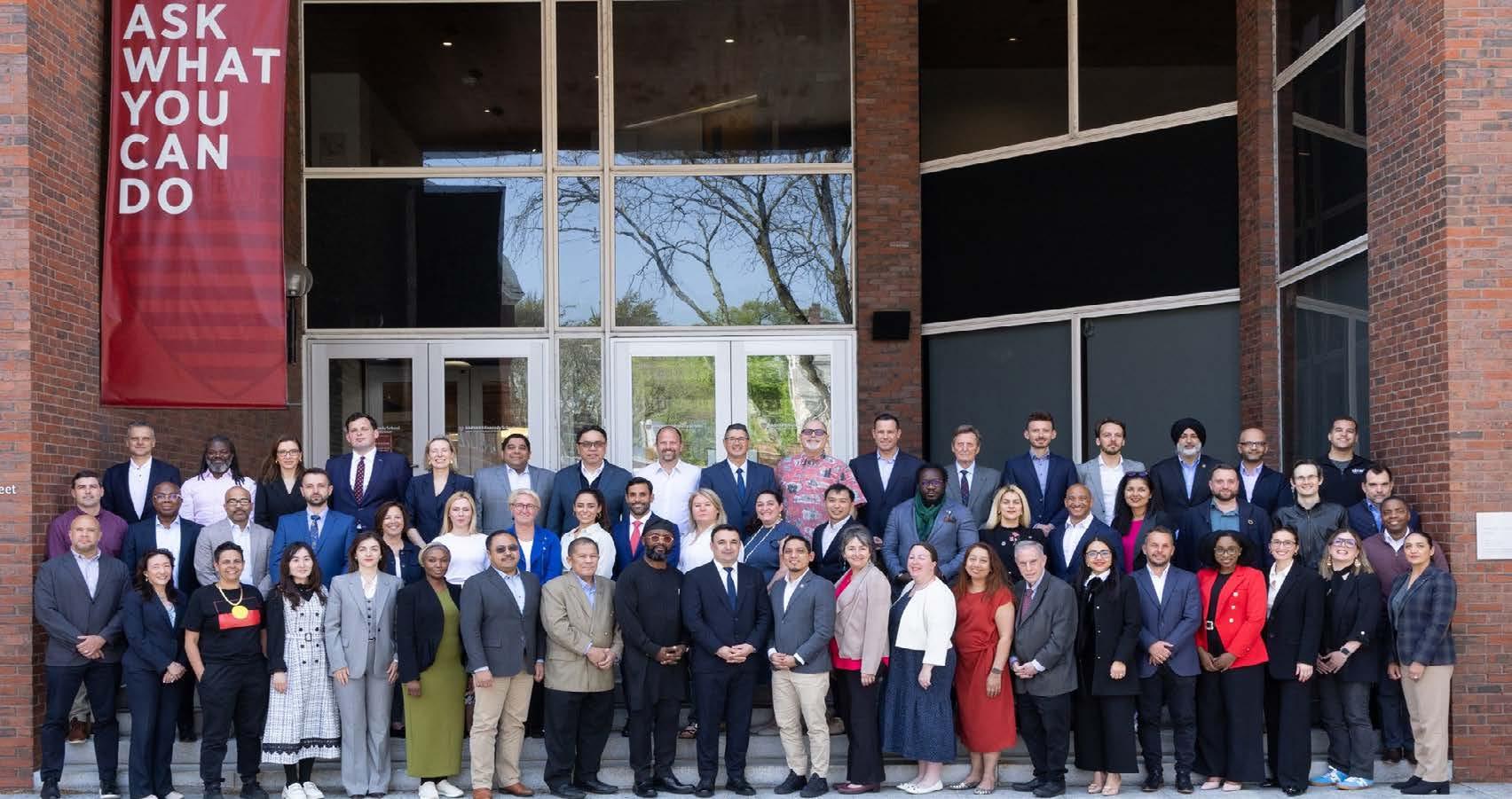
where professionals can contribute directly to state structures, connect policy to practice, and advocate for long-term, sustainable solutions across sectors.
Through this program, I’ve had the opportunity to be part of strategic discussions and contribute to initiatives that reflect the values of integrated planning, inclusive governance, and knowledgebased development.
What inspired you to pursue the LEAD Albania Program in the first place? How are you involved in the LEAD Program and what your role encompasses?
I saw the LEAD Albania Program as a unique opportunity to step out of my professional comfort zone and grow as a public leader. The program brings together talented individuals from diverse backgrounds and provides access to decision-making
processes, mentorship, and policy impact at the highest levels of government.
As a Fellow, I’ve been placed in the Cabinet of the Minister of State for Local Government, where I contribute to territorial governance reforms, investment initiatives, and cross-sectoral projects. It’s a highly dynamic environment, and the experience has been transformative in terms of policy knowledge, strategic communication, and institutional collaboration.
As a professional in the field of urban and territorial planning, how do you think LEAD will boost your career progression for the future?
LEAD has provided me with a front-row seat to how government operates—and, more importantly, how ideas are translated into concrete policies. It has deepened my understanding of governance, public policy
cycles, and institutional coordination, all of which are essential for leading complex urban and territorial projects.
What makes the program even more valuable is the unique opportunity to build a strong and inspiring network of experts and professionals—both local and international. This network not only expands my horizons and helps me grow as a wellrounded professional, but also equips me with the support and perspective needed to navigate future challenges.
In a field as multidisciplinary and evolving as urban and regional planning, being part of such a network is essential. It allows for meaningful collaboration, exchange of best practices, and mutual learning that can amplify the impact of any initiative I’m involved in—now and in the years to come.
As a graduate of Architecture, you have been part of many important projects and initiatives, highlighting the direction of the technical working group for the drafting of the first National Territorial Plan ‘Albania 2030’ and the contribution to the project “Metabolism of Albania”. What are you most excited about when it comes to the aspects that LEAD might help you to further contribute to the successful completion of these projects?
What excites me most is the opportunity that LEAD offers to build bridges between technical expertise and high-level policymaking. Through the program, I’ve been able to bring forward not only the vision but also the methods and discipline of longterm territorial and urban planning into the institutional and political decision-making space.
In addition to the experience of working closely with government structures, this
June we completed an intensive and highly valuable training at the College of Europe in Bruges. The program provided us with professional preparation on EU integration issues, delivered by senior experts and practitioners. One of the most meaningful aspects was the opportunity to hold individual meetings with senior officials from various DG Committees within the European Commission. These discussions offered a grounded, experience-based perspective on what concrete steps would truly support Albania’s progress in the EU negotiation process.
This exchange of ideas and knowledge— between the national and European levels—has further strengthened my belief that well-informed, cross-disciplinary professionals can and should play a key role in shaping Albania’s transformation, especially in fields such as territorial development, infrastructure, sustainability, and institutional reform. LEAD enables this type of contribution, and I’m enthusiastic about continuing to use my background in architecture and planning to support

projects that align national priorities with European values and standards.
Which aspect of the LEAD Albania Programme do you find most helpful in leveraging your leadership skills?
For me, the most valuable aspect has been exposure to high-level decision-making combined with structured mentoring. Working directly within a Minister’s Cabinet allows you to observe leadership in real time—how priorities are set, how political and technical dimensions are balanced, and how consensus is built across institutions.
It has also taught me to communicate more effectively, think more strategically, and manage complexity with greater confidence—all essential for leadership in today’s fast-changing world.
In light of the current challenges around your disciplines, how do you think the LEAD Program will prepare you to be a part of a meaningful change in the field?
Urban and territorial planning are facing massive challenges: climate change, demographic shifts, uneven development, and digital transitions. Addressing these requires leaders who understand systems, can work across sectors, and are capable of mobilizing resources and people.
LEAD strengthens all of these capacities. The program is carefully design to offer unique trainings throughout one year, from Harvard Kennedy School executive programs, to College of Europe, leadership CCL trainings, to meetings and interviews with high profile international politicians and not only. It is a very intensive and competitive program
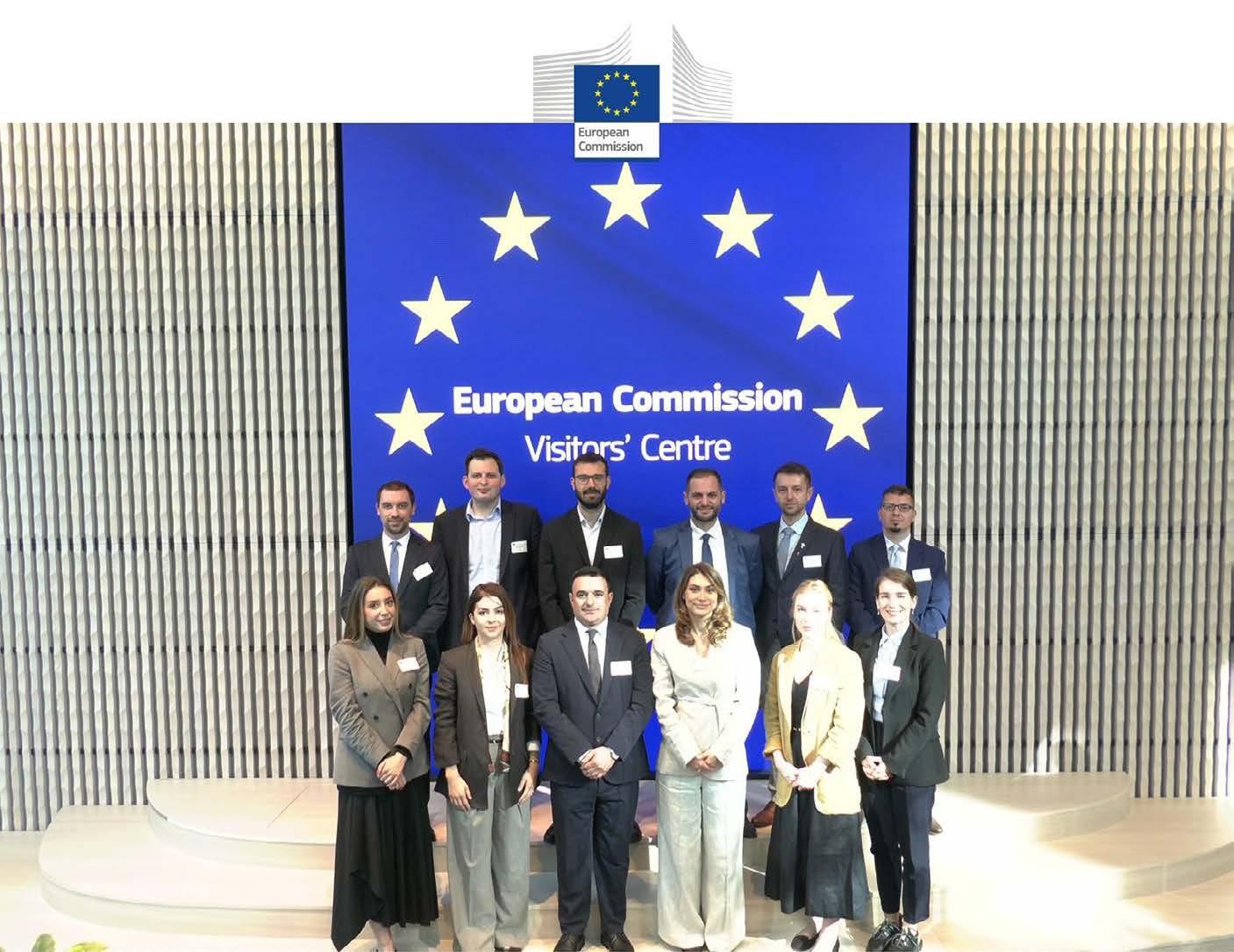

that aims to rise your professionalism into higher level by offering a diversified and multi-sectoral trainings.
It prepares you to navigate institutional systems, craft inclusive policies, and respond to local needs while thinking at a national or regional scale. I feel better equipped to advocate for integrated, resilient development models that can serve as catalysts for meaningful change.
Would you recommend this training programme to other junior professionals and why?
Absolutely. LEAD is more than a training program—it’s a personal and professional accelerator. It offers a rare opportunity to step into public service, contribute to national priorities, and develop a new mindset about leadership and responsibility.
For young professionals who want to be part of change, who are curious, driven, and ready to challenge themselves—this is a unique platform to grow and lead with purpose.
What do you do to keep yourself updated in the exciting field of architecture? Other passions?
I try to stay actively engaged with architectural research and urban debates—through conferences, reading, and international networks. I’m also exploring new tools like AI-assisted design, to integrate more innovation into spatial strategies.
Outside of work, I find balance in spending time with my young daughter, exploring historical cities, and writing—especially on topics that link space, memory, and collective identity.
“A
By Rudina Hoxha
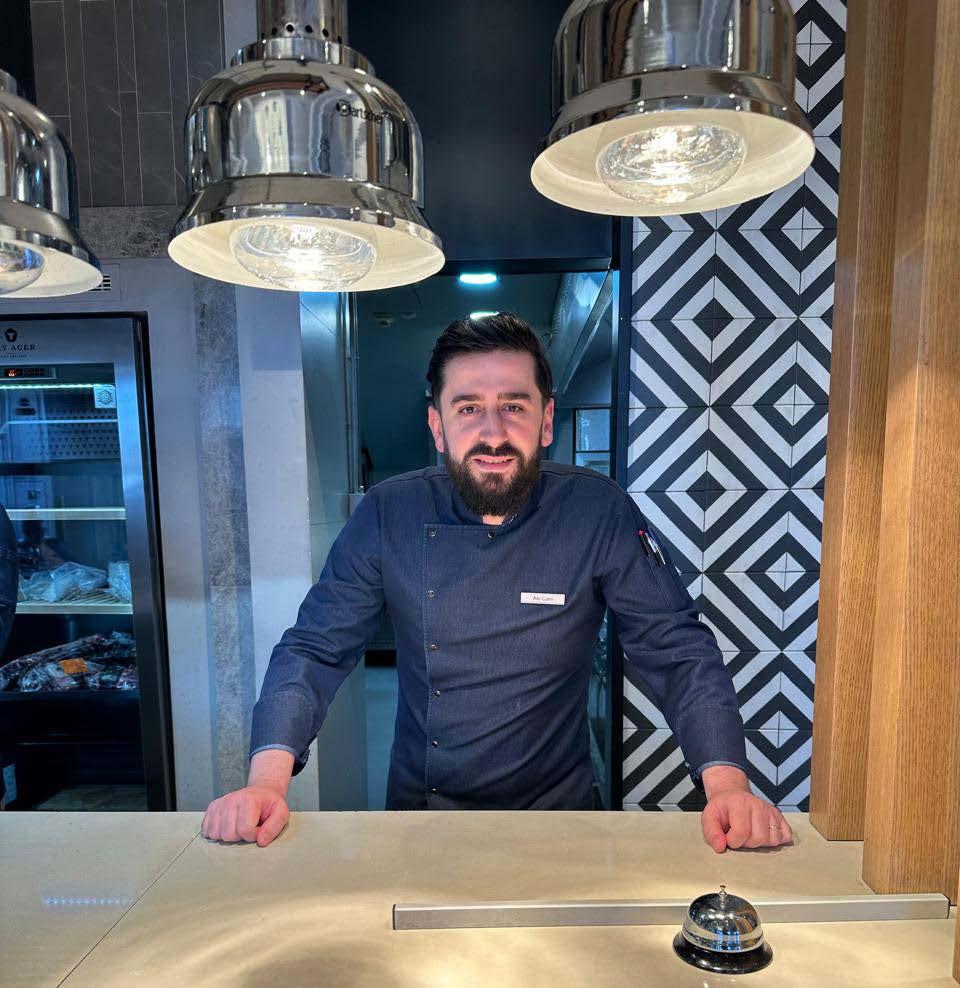

In our June edition of TRAILBLAZING MAGAZINE, Abdurrahim Cani, Head Chef at Tirana Marriott Hotel, shares his inspiring journey to become a chef and much more.
Ushering in the culinary world since young, he is so fond of creating new tastes and amazing dishes. “By the age of 24, I had already made a name for myself in the vibrant culinary scene of Albania’s capital. My dedication and hard work paid off when I was promoted from Sous Chef to Head Chef at Tirana Marriott Hotel,” Abdurrahim says.
Regarding Albanian gastronomy “a rich tapestry of Mediterranean flavors, seasonal ingredients, and heartfelt traditions,” Abdurrahim Cani shares some of the most epitomizing recipes from Albania.
Full interview below:
How did you end up as Executive Chef at Tirana Marriott Hotel? Can you share your culinary experiences with us?
My journey to becoming the Head Chef at Tirana Marriott Hotel is deeply rooted in my passion for cooking, which is a significant part of Albanian culture. From a young age, I was fascinated by the art of cooking and pursued every opportunity to grow in the culinary world. I started working in various restaurants in Tirana, where I quickly gained recognition for my skills and creativity. By the age of 24, I had already made a name for myself in the vibrant culinary scene of Albania’s capital. My dedication and hard work paid off when I was promoted from Sous Chef to Head Chef at Tirana Marriott Hotel. This transition was made smoother thanks to the invaluable insights and mentorship provided by our previous Executive Chef, Ashley Coleman, who decided to pursue new challenges. His guidance and the experiences I gathered along the way have been instrumental in shaping my culinary journey.
What makes you a great fit for this position?
What makes me a great fit for the position of Head Chef at Tirana Marriott Hotel is a combination of my extensive experience, unwavering patience, and a deep desire to continuously evolve in the culinary arts. Over the years, I have honed my skills in various kitchens, learning from some of the

best chefs in the industry. My ambition to succeed at the highest level drives me to lead with excellence and inspire my team to deliver unforgettable dining experiences. I believe in the power of teamwork and strive to create a collaborative and supportive environment in the kitchen. My ability to adapt to new trends and incorporate innovative techniques while respecting traditional culinary practices sets me apart and ensures that our guests always have a memorable dining experience.
What do you make out of the Albanian gastronomy and how would you use it as an attraction for the international clientele at Tirana Marriott Hotel?
Albanian gastronomy is a rich tapestry of Mediterranean flavors, seasonal ingredients, and heartfelt traditions. It is something I deeply value and am incredibly proud to showcase. At Tirana Marriott Hotel, I aim to elevate these authentic dishes with a modern twist, offering international guests a unique and memorable culinary journey rooted in our culture. By highlighting traditional Albanian recipes and incorporating locally sourced ingredients, we can provide our guests with an authentic taste of Albania. This approach not only celebrates our culinary heritage but also creates a connection between our guests and the local culture. I believe that by offering a blend of traditional and contemporary dishes, we can attract a diverse clientele and enhance their overall experience at our hotel.

Can you share some of the most distinguished dishes you have for your clients? Are they designed for the tourists and the residents as well?
Some of our standout dishes include “Sharing Albanian Taste,” a combination of traditional recipes with dishes to share
such as tavë kosi (baked lamb with yogurt), chicken stew, white beans with sujuk (spicy sausage), and pispili (cornbread with spinach). These dishes are presented on a wooden board to create an authentic Albanian household hospitality experience. Additionally, we feature fresh handmade pasta, vibrant salads, and antipasti to make meals more appealing for everyone. These dishes are crafted to attract both tourists and residents by blending unique local flavors with European specialties. Our focus on seasonal menus and locally sourced ingredients ensures that our offerings are fresh, flavorful, and reflective of the rich culinary traditions of Albania.
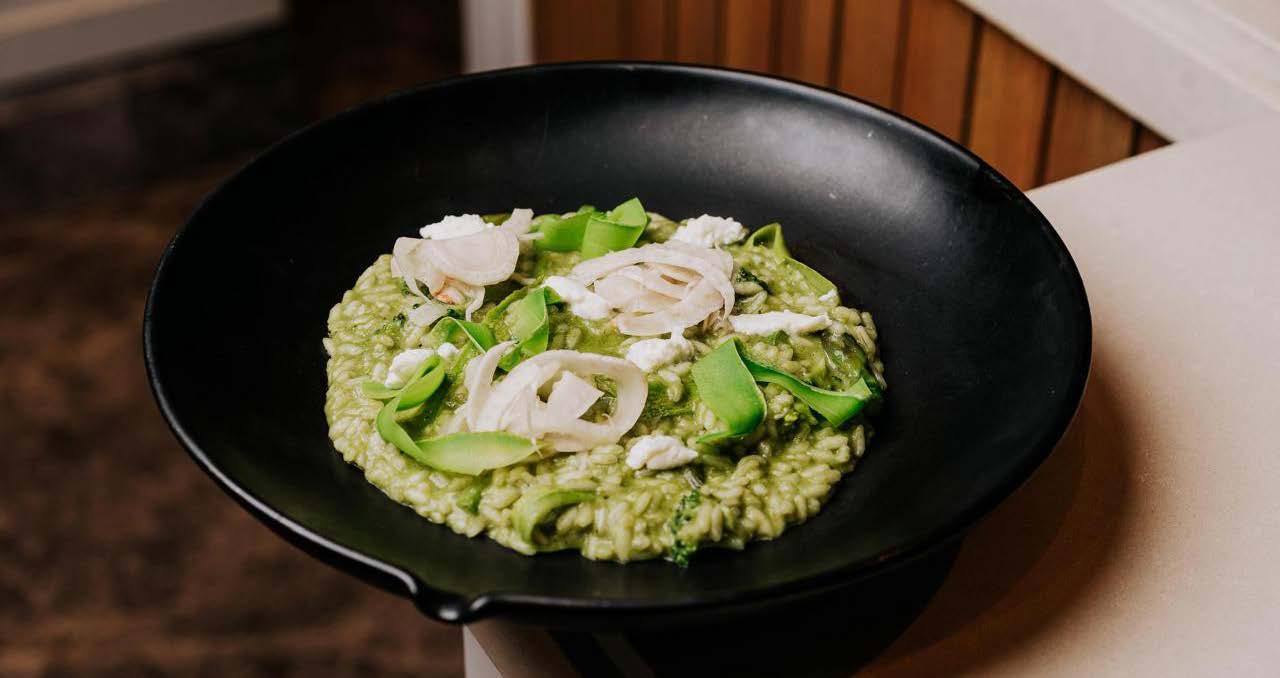
Albania is distinguished for its fresh local produce free from agro-toxic chemicals. Are your recipes transformed by them?
Absolutely! The availability of fresh, organic produce in Albania is a tremendous asset, and our recipes are deeply influenced by the quality and variety of local ingredients. We prioritize seasonal products and work closely with local bio produce shops to ensure our dishes are not only delicious but also sustainable and healthy. This commitment to using fresh, chemical-free ingredients allows us to capture the vibrant
essence of Albanian cuisine and offer our guests dishes that are both nutritious and flavorful. By incorporating these highquality ingredients into our recipes, we can create culinary experiences that are truly exceptional and reflective of the natural bounty of Albania.
What is your formula to get success in your profession?
My formula for success is built on a foundation of discipline, creativity, and constant learning. I believe that a successful
We prioritize seasonal products and work closely with local bio produce shops to ensure our dishes are not only delicious but also sustainable and healthy
chef must have a deep respect for both tradition and innovation. Leading by example, nurturing talent in the kitchen, and always striving to exceed guest expectations are key components of my approach. I am committed to continuous improvement and staying updated with the latest culinary trends and techniques. Building strong relationships with suppliers and staying connected to the local community also play a crucial role in achieving success. Ultimately, my goal is to create memorable dining experiences that leave a lasting impression on our guests, and this drives me to maintain high standards of quality and excellence in everything I do.
How are you coping with the dynamic and fast-paced dining scene that is developing all over the world? Are you using your experience in the actual position? If yes, how?
In today’s fast-paced global dining scene, staying innovative and adaptable is essential. I rely on my extensive experience to navigate this dynamic environment while drawing inspiration from Albania’s rich culinary heritage and abundance of fresh, local ingredients. By blending global trends with authentic Albanian flavors, I create menus that are both contemporary and rooted in tradition. This approach allows us to offer guests a unique and memorable dining experience that stands out in the competitive culinary landscape. Collaboration with my team and ongoing professional development are key to thriving in this ever-evolving industry. By staying informed about the latest trends and continuously experimenting with new techniques, I ensure that our offerings remain fresh, exciting, and relevant to our guests.

By Rudina Hoxha & Livia Hoxha
Live from Montreux, Switzerland
The Glion Institute of Higher Education is situated in Glion, a village above Montreux, Switzerland. Specifically, it’s located in the municipality of Montreux, overlooking Lake Geneva.
Here among many, we were impressed on the spot by the professionalism of Yoann Lazareth, a seasoned mixologist from France with a long experience in London. Full of modern imagination and inspired by the local tradition and ingredients, Yoann is teaching the ins and outs of mixology to the students of The Glion Institute of Higher Education.
Seduced by the elegant ambiance and stunning views, we conducted the following interview with Yoann.
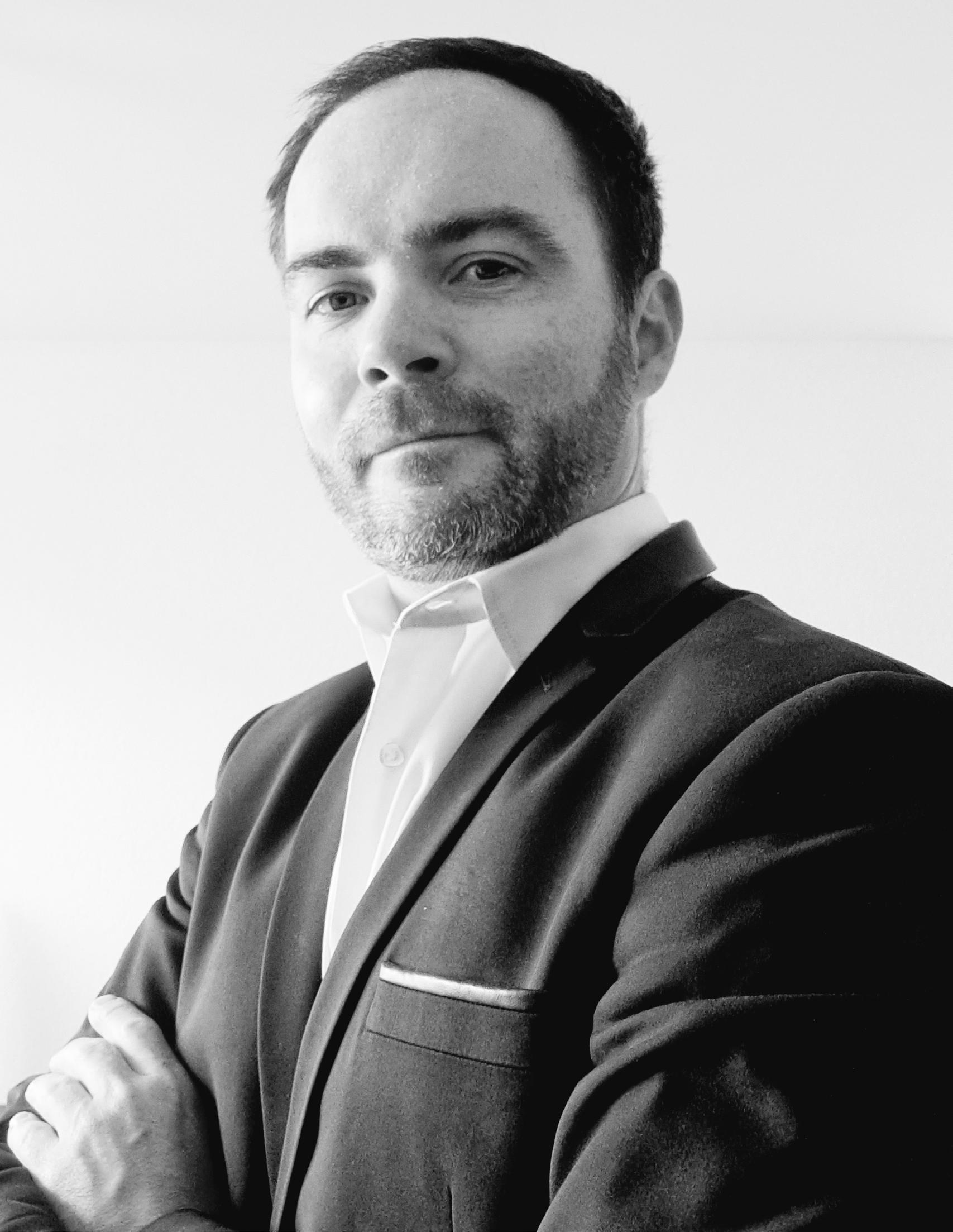
Do you remember your early days as a mixologist? What inspired you to become a bartender? Can you share a memorable experience from your career as a mixologist?
My debut as a mixologist began at Forum, an American bar in the heart of Paris in 2005. An elegant bar where serving cigars and Dry Martinis was the norm. Over a hundred classic cocktails were referenced. A team of enthusiasts took me under their wing, but what I liked best was the pressure of service and the quest for perfection of knowledge. The atmosphere was armylike, disciplined and customer-focused, the customers very knowledgeable about cocktails and spirits and continually challenging me. It was here that I realized that the Bartender was at the center of the show, like an orchestra conductor.
Serving Bruce Willis, Naomi Campbell or Kate Mose remain moments I’ll tell my children about. But my best memory is winning the Spirit Business Cocktail Challenge twice in a row in 2009 and 2010 in London. English wasn’t my first language and the participants looked down on me. I realized that day that hard work and perseverance pay off.
Where do you find inspiration for your drinks/cocktail menu? How would you describe your mixology style?
I open cookery books, mainly by our chef Décotterd, Anne Sophie Pic and Alain Ducasse, for the subtle combinations of flavours in my creations. Whenever I need to surprise, I turn to botanical manuals, the Aviary Cocktail Book and the Cocktail Codex. For the technical approach, I refer to Yoann Demeersseman and its cocktail book. At the Bulgari Hotel, I worked with a perfumer for the signature cocktail combinations. It’s also important to meet people with a

different vision and a different palate. I love meeting winemakers because they have a special relationship with local ingredients. I recently visited a citrus grower, and came away with a whole menu of cocktail ideas because he was so passionate. You might have already a garden full of herbs and spices ready to be use in cocktails….
Can you share with us the journey of your arrival to The Glion and how does it feel to train or mentor junior bartenders?
The need to share my experience came over the years. Seeing the new generations impacted by the internet, which remains a powerful working tool, I realized that my experience acquired over the years could be put to good use. I began by taking charge of a class in the Bachelor’s program, and was fortunate to be supported by Glion in my vision of mixology and its constant evolution. We quickly developed a number of mixology concepts and competitions with major brands. Success was our watchword, and we launched online courses during the
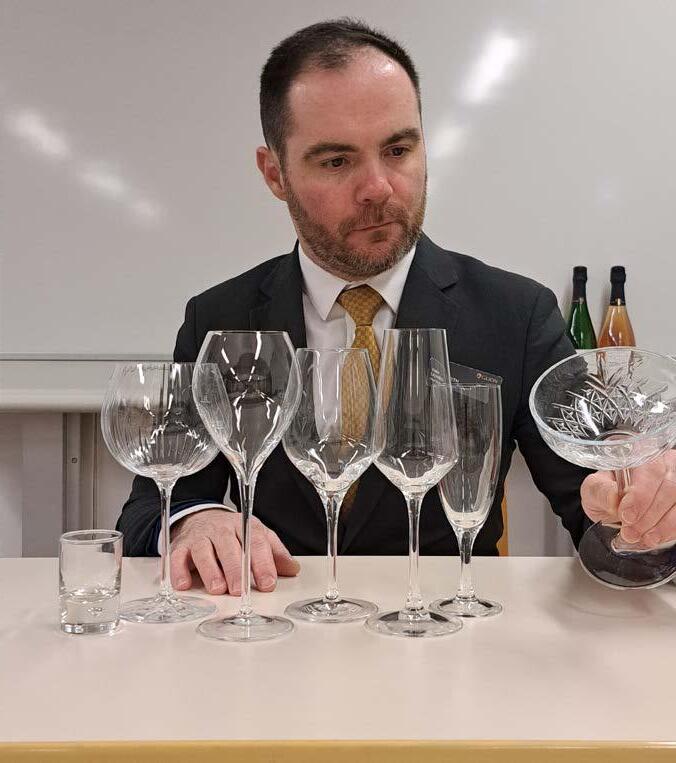
sad Covid period. During these workshops, students quickly understand the economic stakes of the spirits industry and the benefits these luxury brands can bring to their careers.
It’s very challenging to adapt one’s courses to the junior generations, as consumption patterns are changing and impacting on the vision of mixology. It’s my job to keep up to date with the latest information channels.
I have to offer courses based on Instagram, Thread or X. However, as soon as you get behind the BAR with a Junior bartender and I help him to discover the ingredients, the magic happens. GLION’s strength lies in its hands-on approach and proximity to our students.
What skills do you try to pick in the young bartenders? How do you make them acquire or further develop these skills? When working with young bartenders, I look for a combination of technical skills and interpersonal qualities. The key skills I identify and develop include communication, attention to detail, multitasking, product knowledge, and hospitality. A great bartender prepares drinks with precision
and knows how to engage guests, read the room, and create a welcoming atmosphere. I also value curiosity, humility, and a willingness to learn, as these qualities often predict long-term success in the industry.
To help them grow, I use a hands-on, stepby-step training approach. New bartenders start by observing more experienced colleagues, learning the service flow, and gradually taking on more responsibilities. I organize regular training sessions focused on cocktail techniques, spirit knowledge, and service standards. Tastings and supplier presentations are important tools for building their palates and confidence when speaking with guests.
I provide regular, clear constructive feedback and take time to explain what went well and how they can improve. I encourage them to ask questions, experiment within limits, and reflect on their experiences. Teamwork plays a significant role in the learning process, so I ensure that they feel supported by their colleagues and are part of a professional and respectful environment.
My ultimate goal is to help young bartenders develop technical skills as well as the emotional intelligence, professionalism, and pride in their craft that will carry them far in their careers. The Mixology world gather all this skills, you are on stage everyday improving your speech in front of audience, dealing with guest and making ultimate recipes.
How much does the amazing panorama around you impact your creativity? Is there a local ingredient that You and the foreign guests love the most?
In GLION the panorama is astonishing, the view of Lake of Geneva and the Alps, offer
a peaceful environment during creativity brainstorming. The must have in term of ingredient are Fresh marjoram, which I paired with lemon, white Peppermint liqueur, sugar and Champagne. Then Absinthe stay for my the long forgotten spirits that deserve a fair come back. The culture of absinthe and its consumption via a fountain and a lost but convivial myth in Switzerland. The spectrum of aromas that absinthe offers the mixologist is complex are combinations are endless.
Swiss absinthes are fantastic, and producers make a point of using only local Swiss products. An icon of our Swiss gastronomic culture, it’s even used by mixologists worldwide. A beautiful Absinthe doesn’t need much ingredients to shine. Years ago I launched the Swiss Mule, a combination of citrus, Absinthe and Ginger Beer in Beau Rivage Palace during a guest shift. The classic drinks still remains famous around Switzerland.
Where would you tell people to start if they want to start exploring with different drinks?
The best way to explore is to first open old school cocktail book such as Savoy Cocktail book, and Jerry Thomas cocktail guide. Through the pages you will discover how the taste of guest change through the decade, from strong bitter drink to more subtle version. No juices only good quality Spirits.
In my opinion London is still the World Cocktail plateform, a well balanced mixture of classism staged by a multicultural population. Go and enjoy a Dry Martini in Connaught made to perfection on a martini trolley. London still knows how propose modern high quality drinks served with high hospitality standards. The bartenders
are knowledgeable and the Mixology in a constant evolution.
What makes you get creative in your work? How do you manage to balance creativity with customer preferences and expectations?
The creative process is inspired by a combination of passion, curiosity, and the aspiration to provide memorable experiences. The perpetual inspiration for this work is derived from novel local sourced ingredients, international trends, seasonal products, and the Swiss historical and cultural contexts underpinning spirits and cocktails. The challenges posed by the creation of a unique menu, the reinvention of a classic, or the design of a drink around a guest’s personality are what motivate me to think outside the box. Inspiration can be found in a variety of sources, including conversation, culinary experiences, and musical compositions.
The balancing act of creativity and customer preferences is a fundamental aspect of the craft. While experimentation is indeed a key component of my professional approach, it is always with a view to meeting the needs of the client. It is imperative to comprehend the characteristics of one’s audience. Some guests may be adventurous and willing to experiment with novel experiences, while others may gravitate towards the familiar and reassuring aspects of a familiar environment. The first stage of the process is to observe the client, ask questions, and read body language in order to ascertain what kind of experience they are looking for.
In the process of menu creation, it is imperative to incorporate a blend of innovative and approachable options. The implementation of new concepts is initiated
through a trial-and-error process. The feedback I obtained from regular guests is then utilised to facilitate the necessary adjustments. The objective is to astonish and charm, rather than perplex.
The demonstration of my creativity in the field of bartending is not merely a matter of transgressing established limits; rather, it is an endeavour to enhance the guest experience. My objective is always to identify the optimal equilibrium where my imagination aligns with guests expectation, where a beverage becomes a catalyst for dialogue, and where the Mixology go beyond its role to become a platform for both artistic expression and Luxury hospitality.
In your view, what makes a great cocktail? Is there a cocktail on the menu that holds special meaning for you? If yes, what is the story behind it?
A great cocktail is a perfect balance of flavor, technique, and presentation. It starts with quality ingredients—fresh juices as much as possible, well-crafted spirits, and thoughtfully chosen garnishes. Precision in measuring and mixing ensures the right balance between sweetness, acidity, bitterness, and strength. But beyond the recipe, a great cocktail also tells a story. It reflects the bartender’s skill, creativity, and respect for tradition, while also responding to the guest’s taste and the mood of the moment.
Temperature, dilution, and texture also play key roles. A well-shaken or stirred cocktail should be chilled just right, with a clean, smooth mouthfeel. Presentation matters too: elegant glassware, clear ice, and a meaningful garnish can elevate the entire experience.
Take the Negroni, for example—a timeless classic made with equal parts gin,
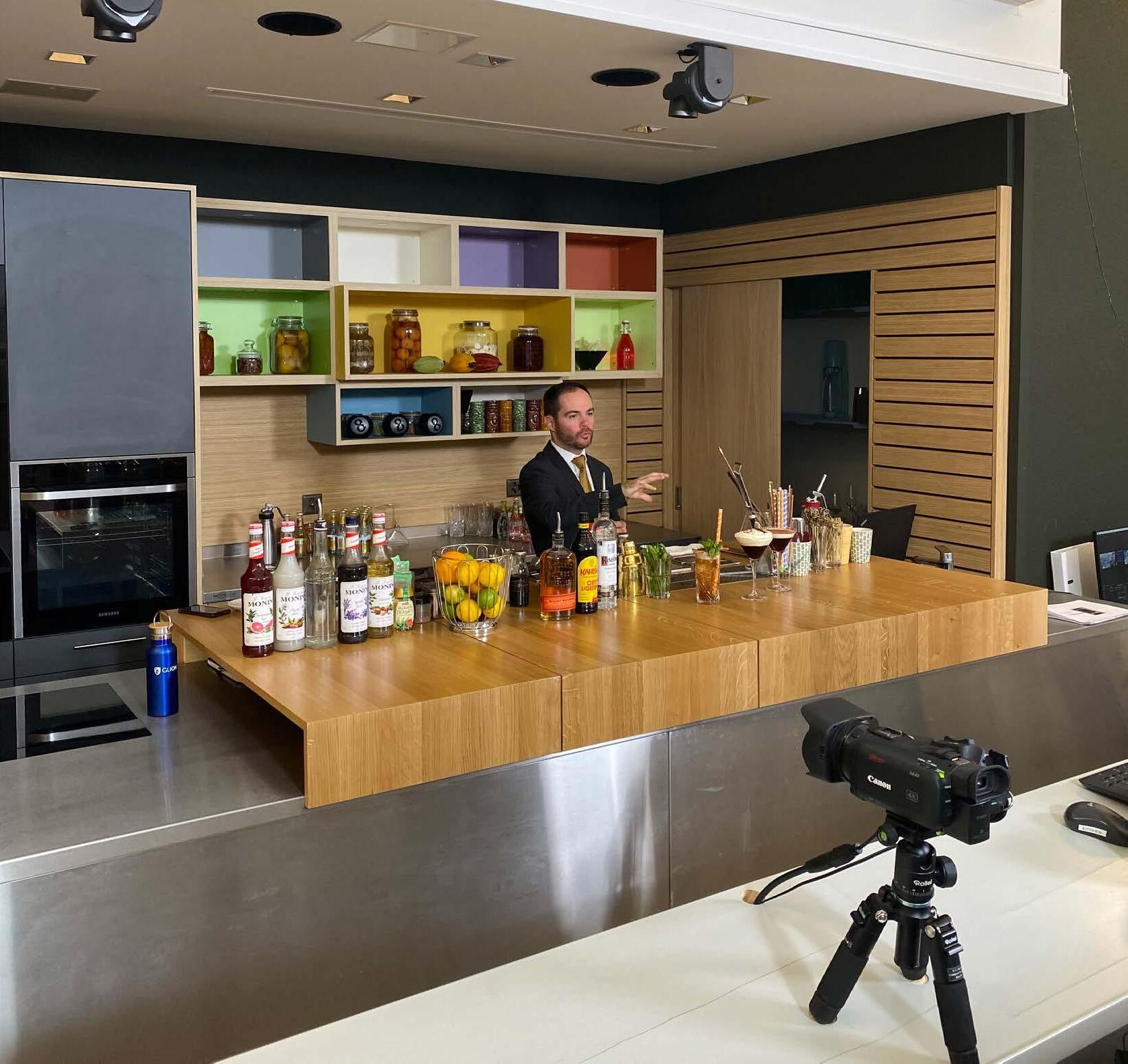
Campari, and sweet vermouth. It’s a simple recipe, but when executed well, it delivers complexity, balance, and character. My version of Negroni include Vermouth infused Bergamot and local bitter. A rich London dry gin is a must for the recipe.
In the end, a great cocktail is more than a drink—it’s a moment of pleasure, a reflection of craft, and often, a lasting memory for my guest.
Balancing creativity with customer preferences means listening carefully and adapting ideas to suit their tastes. For example, if a guest enjoys fruity cocktails but wants something new, I might create a twist on the classic using maximum 1 surprising ingredient, my rule is that 80% of the ingredients must be known by the guest. This keeps the drink familiar yet exciting. I always test new ideas in small batches and adjust based on feedback, ensuring innovation never comes at the cost of guest satisfaction.
The special cocktail I think represent well the Perfection is Dry Martini, with olives and gin. So many stories and recipe exist about this potion. If a guest ask you to make this drink you can be sure that asense of trust is developing from your customer.
What trends in the drinks industry excite you right now?
Do It Yourself ingredients. Mixologists always placed significant emphasis on the mixers they select for their cocktails. This trend signifies a transition towards the increased presence of house-made syrups, shrubs and kombucha in their menus. Through the creation of their own products, bartenders are able to exercise control over the taste profile of their cocktails. These creative trend, and can be replicated at home with daily seasonal ingredients and contribute to the depth and complexity of your beverages.
Contact: E: yoann.lazareth@glion.edu

Whether you’re looking for breathtaking landscapes, historical landmarks, or cultural experiences, the country that is bounded by the Caspian Sea and Caucasus Mountains, which span Asia and Europe, from 15 June 2024 is also easier accessible to Albanians, after lifting the visa requirement. Below, you can find some of the reasons why you should visit Azerbaijan
Azerbaijan, an amazing tourist destination Azerbaijan, known as the “Land of Fire,” is a country rich in history, culture, and natural beauty. From ancient cities to modern marvels, Azerbaijan offers a unique blend of oldworld charm and contemporary luxury. Whether you’re looking for breathtaking landscapes, historical landmarks, or cultural experiences, the country that is bounded by the Caspian Sea and Caucasus Mountains, which span Asia and Europe, from 15 June 2024 is also easier accessible to Albanians, after lifting the visa requirement. Below, you can find some of the reasons why you should visit Azerbaijan.
Azerbaijan is often called the Land of Fire and there are several reasons why. The word ‘Azerbaijan’ literally means ‘protector of fire’; the country is abundant in oil and natural gas; it was a centre of fire worshipping; and fire has always been one of the symbols of the capital, Baku, which today is reflected in the amazing Flame Towers. “Yanar Dag”, also known as the Burning Mountain, is a natural wonder situated in Azerbaijan, near the capital city of Baku. This mesmerizing site is characterized by its eternal flame, which is believed to have been burning for thousands of years. Flames jet 3 metres into the air from a thin, porous sandstone layer. Unlike mud volcanoes, the “Yanar Dagh” flame burns fairly steadily, as it is fed by a constant seep of gas from the subsurface.
Once situated along the Great Silk Road, many peoples have passed through these lands, helping to shape the nation’s unique traditions of tolerance and
hospitality. Today, Azerbaijan is a secular country where Sunni and Shia Muslims, Christians, Jews and many other small nations have been living in peace for centuries. Azerbaijan, being a space where different civilizations intersect, has also been known for centuries as a land where an environment of national and cultural diversity has been formed, where representatives of different nationalities and faiths live in conditions of peace, prosperity, mutual understanding and dialogue. The local atmosphere of tolerance and hospitality resembles with that of Albania. And liberality in relation to the characteristics of various peoples, nationalities, and religions is inherent in the mentality of the Azerbaijani people. At all historical stages on the
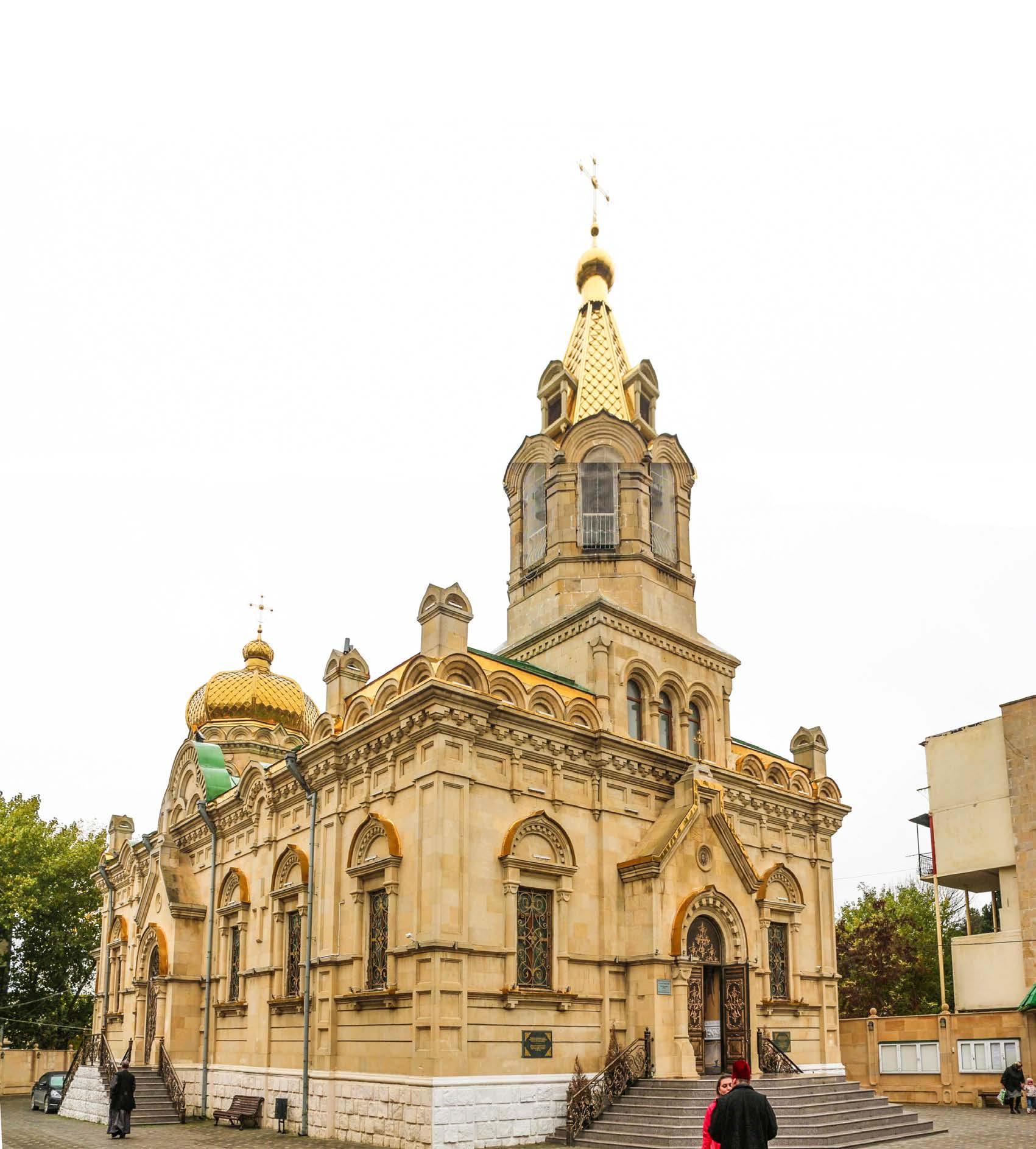


territory of Azerbaijan, close relationships were formed between ethnic and religious communities; no facts of discrimination on national, religious and racial grounds were noted. Multiculturalism for Azerbaijan is not only a national policy, but also a way of life.
Azerbaijan is home to an amazing collection of about 350 mud volcanoes, many of which are found in a relatively small area around Baku and nearby areas of the Caspian Sea. It’s not surprising then that Azerbaijan is sometimes called ‘the mud volcano capital of the world’ –the ground here can indeed be messy, bubbling and explosive!

The world’s first private Museum of Miniature Books is located in Baku’s Old City, a historical and architectural reserve and a World Heritage Site. This extraordinary museum is also home to the world’s largest collection of miniature books, according to the Guinness Book of Records. On display here are over 5,500 of them.
Azerbaijan has a truly historic oil industry. In 1901 Baku’s oilfields were supplying over half the world’s oil, and during the Second World War accounted for approximately 75 per cent of oil produced in the Soviet Union. Baku oil therefore supplied the eastern front with the vast majority of the fuel that powered Soviet tanks and aircraft to victory. Since Azerbaijan’s independence, oil has become the main political and economic factor for solving several national problems such as strengthening the country’s independence, defending its territorial integrity and especially providing economic development by attracting huge amounts of foreign investment. Besides benefiting from numerous sites and museums relating to oil industry, you can also enjoy from beautiful city views – old and new – which to certain extend became reality due to oil incomes.
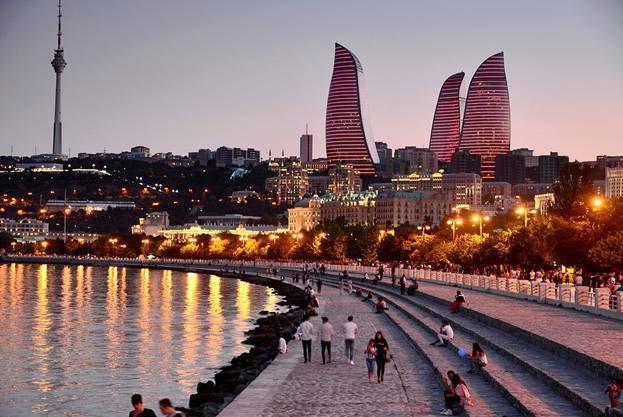
Azerbaijan has some 713 km of coastline along the Caspian Sea, the world’s largest inland body of water and a remnant of the vast Parathethys Sea that stretched from the Alps to the Aral Sea. The capital, Baku, is the largest city on the Caspian and boasts beaches, boulevards and bars replete with calming sea views and breezes.
The Heydar Aliyev Centre, an architectural masterpiece designed by the late Zaha Hadid won the London Design Museum’s Design of the Year award in 2014. Its visionary, undulating form has become a symbol of modern Baku. Not a single straight line was used in its design. Inside you’ll also find world-class museums and exhibitions.
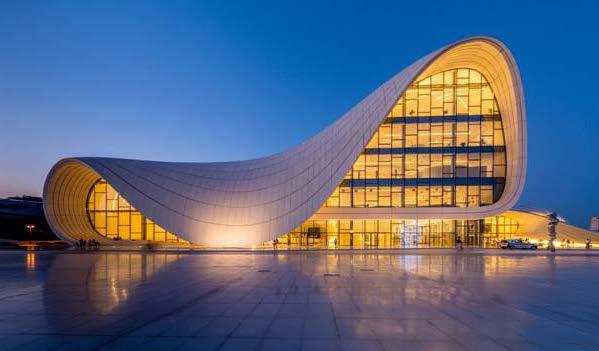

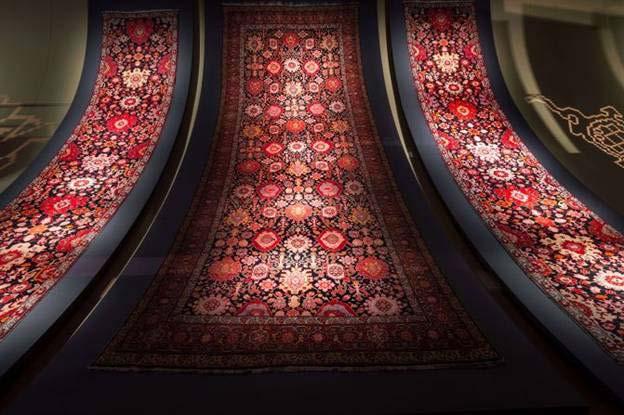
weaving Azerbaijan is an ancient centre of carpet weaving home to seven regional schools, each distinguished by their own unique combination of patterns, colours and motifs. What’s more Baku boasts the state-of-the-art Carpet Museum, which is shaped like a rolled-up rug and houses the world’s largest collection of Azerbaijani carpets.



Khinalig
Perched high in the foothills of the Greater Caucasus, the village of Khinalig is Azerbaijan’s top ethno-tourism spot and one of the highest settlements in Europe. This timeless mountain village was included on the Tentative List of UNESCO’s World Heritage Committee in 2020. Its rare character can be seen clearly in the houses’ style of construction and their proximity to one another, which provides protection from the cold during frosts and blizzards. The people of Khinalig, considered one of the ancient Caucasian Albanian tribes, speak their own language that local residents call ‘Ketsh’.
Caucasian Albania is a modern exonym for a former state located in ancient times in the Caucasus, mostly in what is now Azerbaijan. The prefix “Caucasian” is used to avoid confusion with Albania in the Balkans. Although there is no geographical proximity or proven historical connections to Caucasian Albania people of Azerbaijan and Albania are close in many terms. In “Caucasian Albania” part of Azerbaijan next to Sheki city there is an old temple called Kish temple. In 2023 the delegation of Albania headed by President Bajram Begaj paid a visit to this part of Azerbaijan.
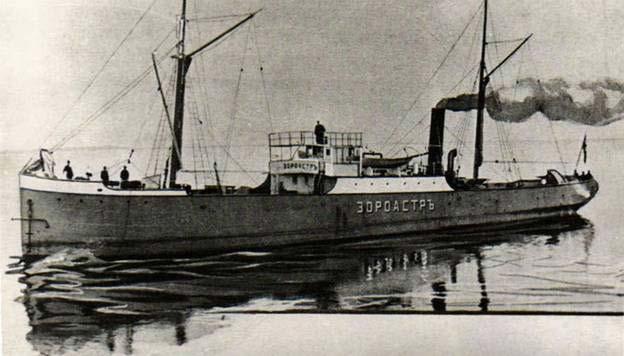
The world’s first oil tanker and Nobel’s price brothers
Did you know that the world’s first oil tanker went into operation in Baku in 1879? That year, the vessel named Zoroaster, ordered by the Nobel brothers for transporting crude oil extracted from the oil mines in Baku, was considered the world’s first commissioned oil tanker. Few people know about the deep connection that the Nobel brothers - Alfred, Ludvig and Robert - once had with Baku. In fact, when the Nobel Prizes were established more than a century ago (1901), roughly 12 percent of the prize money was drawn from Alfred’s shares in
the Nobel Brothers’ Petroleum Company in Baku. Azerbaijan first caught the eye of the Nobel brothers in 1873, when the Russian government offered free competition for plots of land there. Robert Nobel, a chemist with experience selling American petroleum products in Finland, saw an opportunity. In 1879, he and his brothers, Ludvig and Alfred created a shareholding company and became the main owners. In 1882, Ludvig invited more technical staff to Baku from Finland, Sweden, Norway and Germany, and founded a colony that he called “Villa Petrolea”, located in what was then called the “Black City” district of Baku.
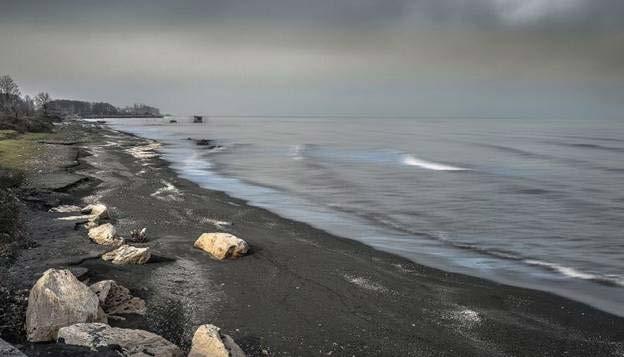
Approximately one hour’s drive from Ganja is Naftalan – a resort town named after a rare type of oil which for centuries has been extracted and used here to cure all sorts of ailments. According to popular legend, the oil’s healing properties were first spotted by a Silk Road merchant who left one of his sickly camels for dead by a pool of naftalan oil and later returned to find it fully recovered. Later, the town’s sanatoriums were a big hit with Soviet health seekers suffering from skin, muscle, joint and bone conditions. Following a decline in the 1990s, the town has recently re-emerged as one of Azerbaijan’s leading health tourism destinations. Treatment typically involves taking daily baths of crude oil for at least a week at one of the town’s many wellness centres.
There are beaches both to the north and south of Lankaran. The beaches’ black volcanic sands are known for their therapeutic qualities and the water here is the clearest of all the Caspian Sea shores. Specifically, the black volcanic sands of this region are considered to have beneficial therapeutic effects on rheumatism, joint pains and spinal problems.



The Old City (Icherisheher), considered the historical centre of Baku, is famous for its medieval stone buildings, traditional hammams, markets and tall defensive walls. Famous landmarks, such as the Maiden Tower and the Shirvanshahs’ Palace Complex, are also located here. The Old City, surrounded by walls built in the 12th century, is part of a UNESCO World Heritage Site.



Azerbaijani cuisine
Azerbaijani cuisine is one of the oldest, richest, and most delicious in the region and beyond. “Azerbaijani cuisine” is not only the dishes, the methods of their preparation, but also a key component of material culture. Of course, the most important factor influencing the creation and development of Azerbaijan food is the climate. In this regard, this is a luck of the country that 9 climatic zones pass through the territory of Azerbaijan, which in turn determines the diversity and richness of flora and fauna of this region, creates favorable conditions for the life and development of all animals and plants. Together with the skills of local chefs these are the main conditions for forming a rich cuisine. They have 50 different types of plov, dolma, yarpaq and kebab.


Recent research has suggested that the super-rich are more mobile than ever before. Open economies, the ease of working digitally while abroad, and special citizenship or ‘golden visa’ schemes are all encouraging record numbers of high-net-worth individuals (HNWIs), who typically have financial assets worth $1 million or more, to leave their home nations.
Residency firm Henley & Partners has produced The Henley Private Wealth Migration Report 2024, which reveals the countries predicted to have gained and lost the most HNWIs over the course of 2024. And the results might just surprise you...
Read on to discover the 10 favored destinations of the world’s elite today – and the 10 countries they’re leaving behind.
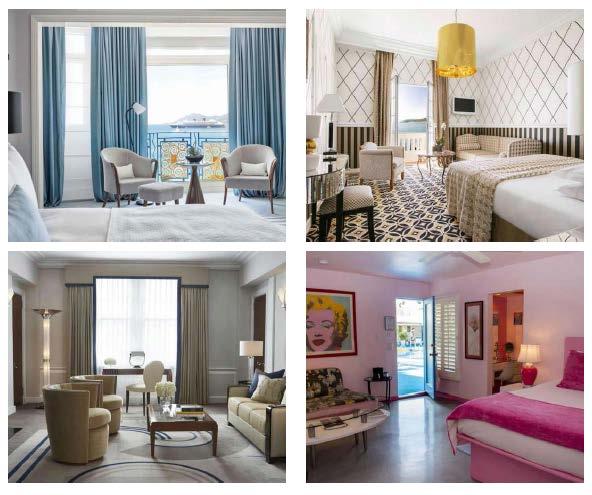
Sleek and modern have their place but cozy and old-fashioned can be so much more charming. While the trend for vintage looks has influenced the design of many newer hotel rooms, we’re paying homage to the originals – the places that have barely changed (aside from necessary maintenance and refurbs) since they were first built decades ago. From gloriously kitsch 1950s motels to Art Deco classics, these are the rooms to check out if you want to do the time warp (again).
Click through this gallery to see amazing hotel rooms frozen in time...
What is the difference between pastéis de nata and pastéis de Belém, Portugal’s most famous deserts?
Golden, crispy and with a creamy filling, these little Portuguese tarts are a sweet treat beloved the world over. But despite their apparent similarity, there is a very real difference between pastéis de nata and pastéis de Belém. Is it all down to recipe, tradition... or perhaps something less obvious?
Read the rest of the article at the link below:
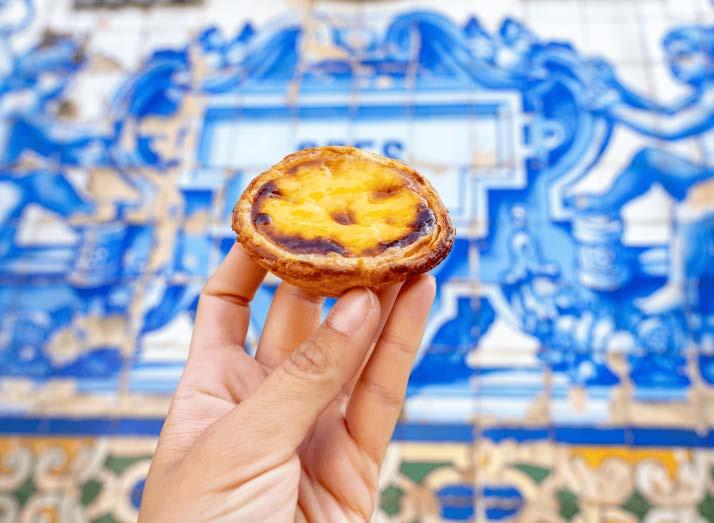

la capitale d’Albanie, nouveau chantier pour les architectes du monde entier
La capitale albanaise est devenue une terre d’accueil pour de grands noms, encouragés par le premier ministre, Edi Rama, qui cherche à solder les vestiges du communisme et à donner une nouvelle image au pays.
Read the full article:
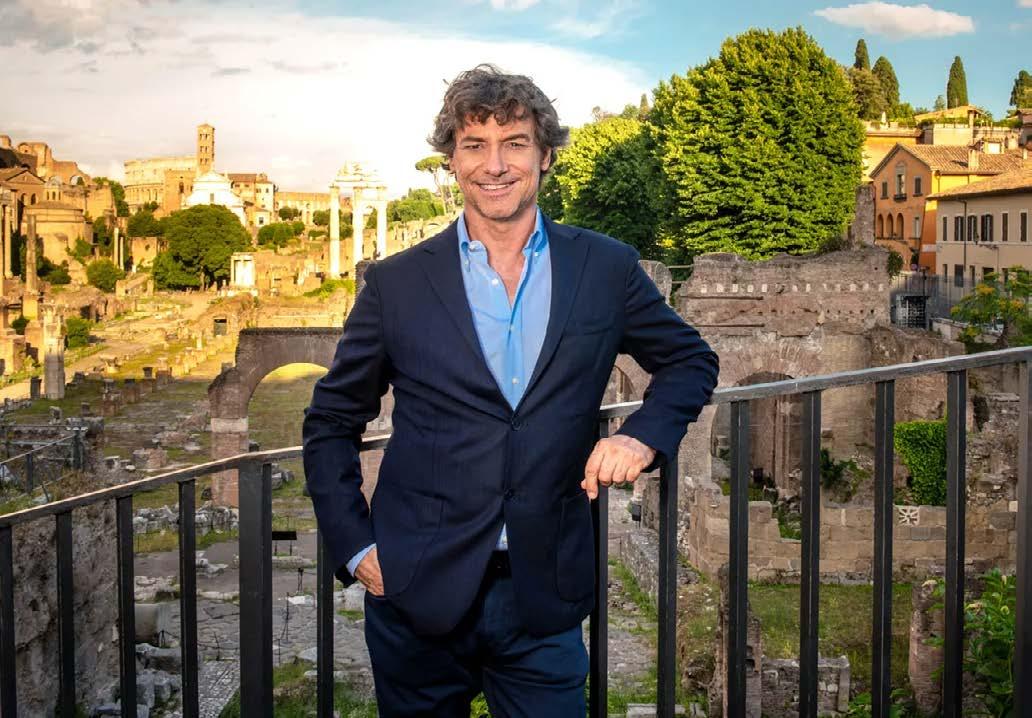

Alberto Angela, a TV presenter, global ambassador for Italian heritage, art, history and culture, and a familiar face in Italian living rooms for nearly four decades knows a thing or two about his hometown’s 2,000 years of history – and he’s ready to help visitors discover it, especially as this year’s Jubilee newly puts it into the limelight.
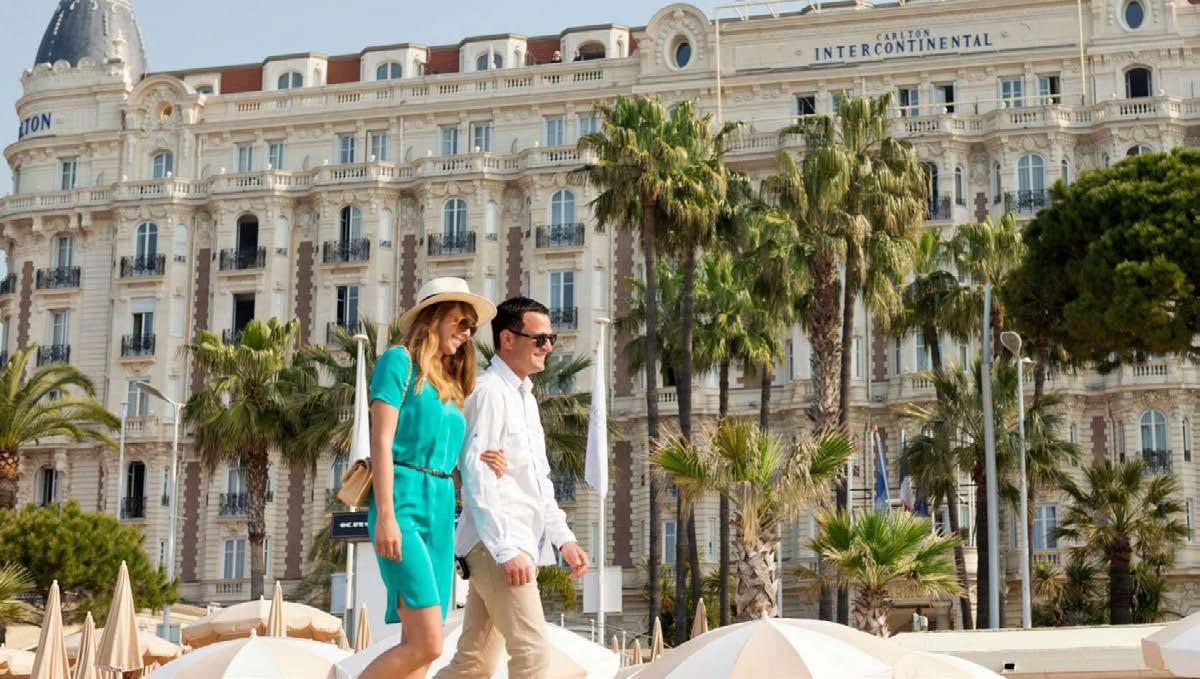

From interior design and technology to amenities and sheer scale, hotels around the world have changed dramatically over the last few decades. We’ve taken a trip down memory lane to see how the world’s biggest chains first started out.
Click or scroll through to see how the most iconic hotels on the globe have changed over the years...

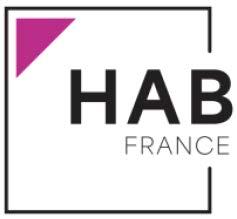

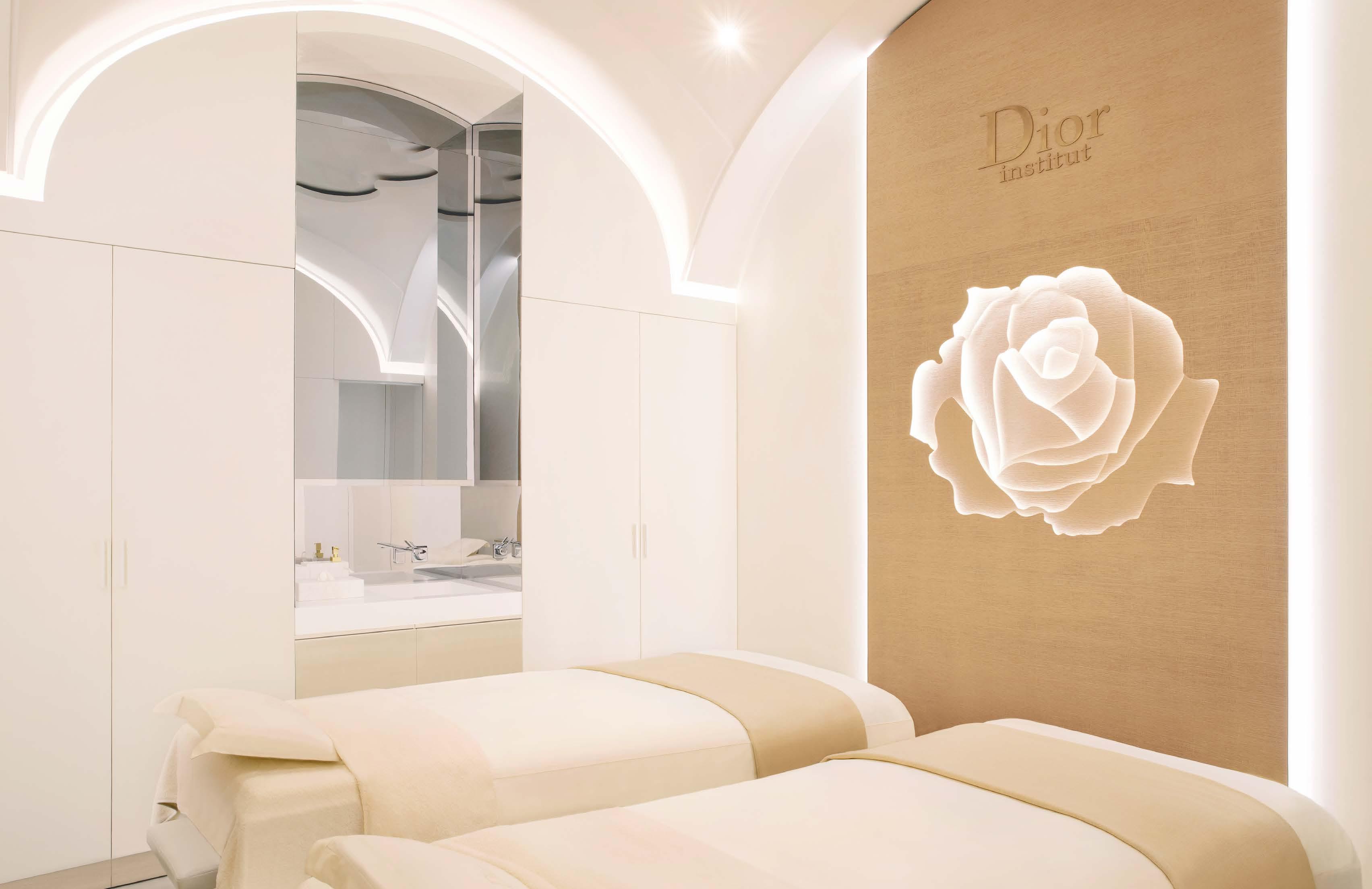

A movement, a market, a mindset
October 13–14, 2025 – Es Saadi Marrakech Resort, Morocco
Paris, May 21st, 2025 – Africa is set to host a groundbreaking event: the Africa Wellness Congress, the first pan-African forum dedicated to investment, innovation, and business opportunities in the wellness industry. Taking place on October 13th and 14th, 2025, at the prestigious Es Saadi Marrakech Resort the congress will bring together key stakeholders — investors, hospitality leaders, wellness experts, and policymakers — to shape the future of wellness in Africa.
As wellness becomes a cornerstone of guest experience, the Africa Wellness Congress will explore how hotel operators can integrate holistic wellness concepts into their operations, from spa and fitness to nutrition, mindfulness, and sustainability. Attendees will gain actionable insights into operational excellence, profitability, wellness design, customer journey mapping, and digital integration.
Designed as a platform for inspiration, collaboration, and transformation, the Congress brings together investors, hoteliers, spa directors, wellness experts, architects, and consultants to explore the evolving intersections between hospitality excellence and holistic wellbeing.
Built around three strategic pillars, the program will explore:
• Integrating wellness into hotel development, with insights on trends, design strategy, and wellness tourism investment opportunities in Africa.
• Enhancing the guest experience through innovation and operational excellence highlighting how wellness offerings can become high-value revenue streams for hospitality.
• Strengthening back-of-house operations and workforce development, focusing on infrastructure, efficiency, and staff training as core enablers of premium wellness services.


Christine Eskandar, International Projects Director, stated: “The Africa Wellness Congress is a pioneering platform designed to stimulate impactful investment, professionalize the sector, and showcase Africa’s unique assets in the wellness economy. We aim to create a fertile ecosystem for sustainable and inclusive wellness growth.”
Vladi Kovanic, Conference Program Director and founder of VK Organisation, added: “This congress offers both strategic insight and operational guidance for integrating wellness into Africa’s economic development. It is a vital space for those ready to innovate, exchange, and co-create a shared vision for wellness across the continent.”
Event Highlights Include:
• Keynotes from global investment, hotel, & wellness leaders
• Panel discussions on ROI in wellness integration
• Workshops on operational matters to collectively present practical solutions
• Sponsors representing brands, manufacturers, and service providers in the hotel, spa, and wellness sectors
• Networking sessions and business discussions
An Iconic Venue: Es Saadi Marrakech Resort
Nestled in the heart of Marrakech’s upscale Hivernage district, Es Saadi Marrakech Resort is a symbol of Moroccan elegance and well-being. Renowned for its luxurious spa, lush gardens, and refined hospitality, the resort provides an ideal setting for the inaugural Africa Wellness Congress — fully aligned with the event’s spirit of excellence and holistic wellness.
Africa Wellness Congress is an initiative of HAB France, an active player for 10 years in the organization of premium events created to excel as unique platforms to put content, and networking in the heart of business for the professional beauty and wellness sector in France and internationally. HAB France is the organizer of Medi Wellness Congress, Forum de l’Esthétique et du Spa, and Beauty Business Days. In addition, it is the publisher of the trade magazine BEAUTY FORUM in the French market.
Vladi Kovanic founder of VK-Organisation and the HOTel&SPA Forum, Vladi Kovanic is a leading figure in the European wellness industry. For over 20 years, she has supported spa professionals through strategic consulting, international forum organization, and spa management education in France and Switzerland.
For media inquiries, interviews, or partnership opportunities, please contact: Christine Eskandar – International Projects Director Christine.eskandar@health-and-beauty.fr +33 6
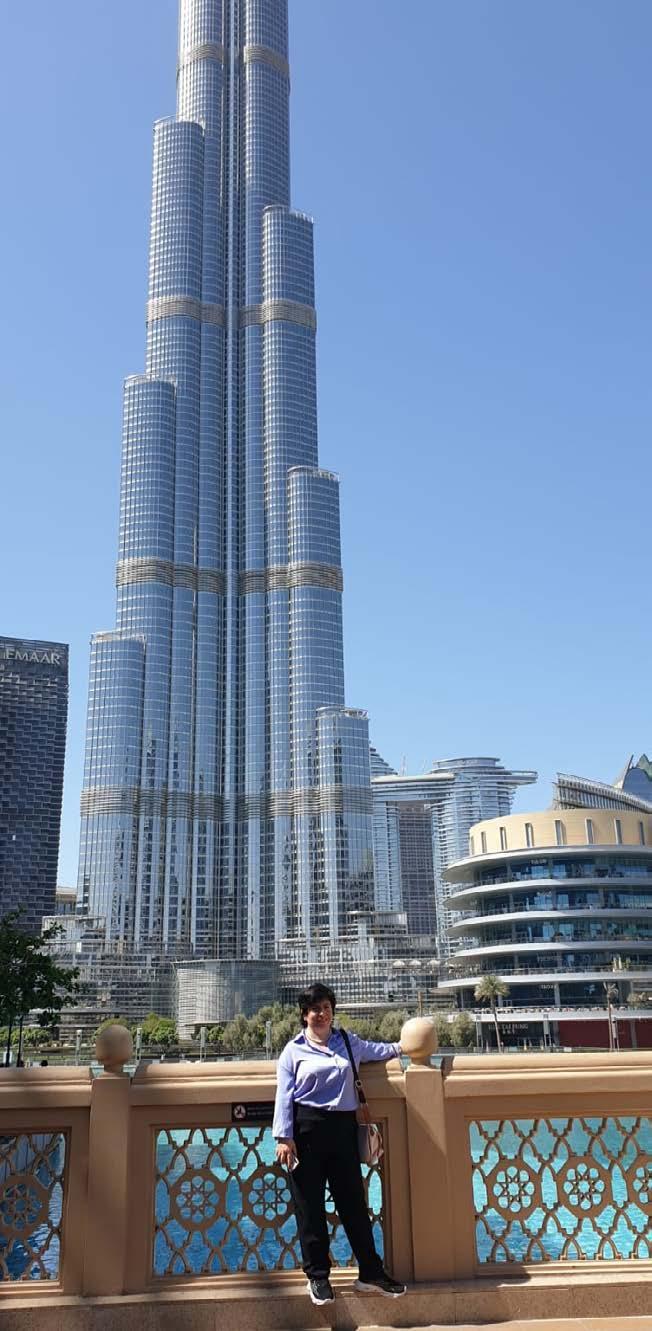





Travelling to Dubai was a captivating and enriching experience for JPHospitality. EU (www.jphospitaity.eu) and Trailblazing Magazine. It expanded our horizons, fostered our professional and personal development and above all, it connected us with wonderful, elite people of diverse cultures and landscapes.
Not by chance, we chose Dubai to visit as this city was the place where the Founder of JPHospitality.EU, Mr. Jose Pinto started his career as a hotelier in 1978 in the Sheraton Creek Hotel. It was meaningful for us to go and revive the memories…
Moreover, his son, Francisco works in Dubai in the field of hospitality, following in the footsteps of his father…
Every destination has something to offer. Dubai learns and inspires people how to be perpetually creative as key to your success. Creativity leads you to a flourishing business life, full of nice and living adventures.
Packed with a lot of enthusiasm, inspiration and creativity, we are continuing the continuation to bring the cream of the cream for our readers.
With love from Dubai!
Rudina & Jose

